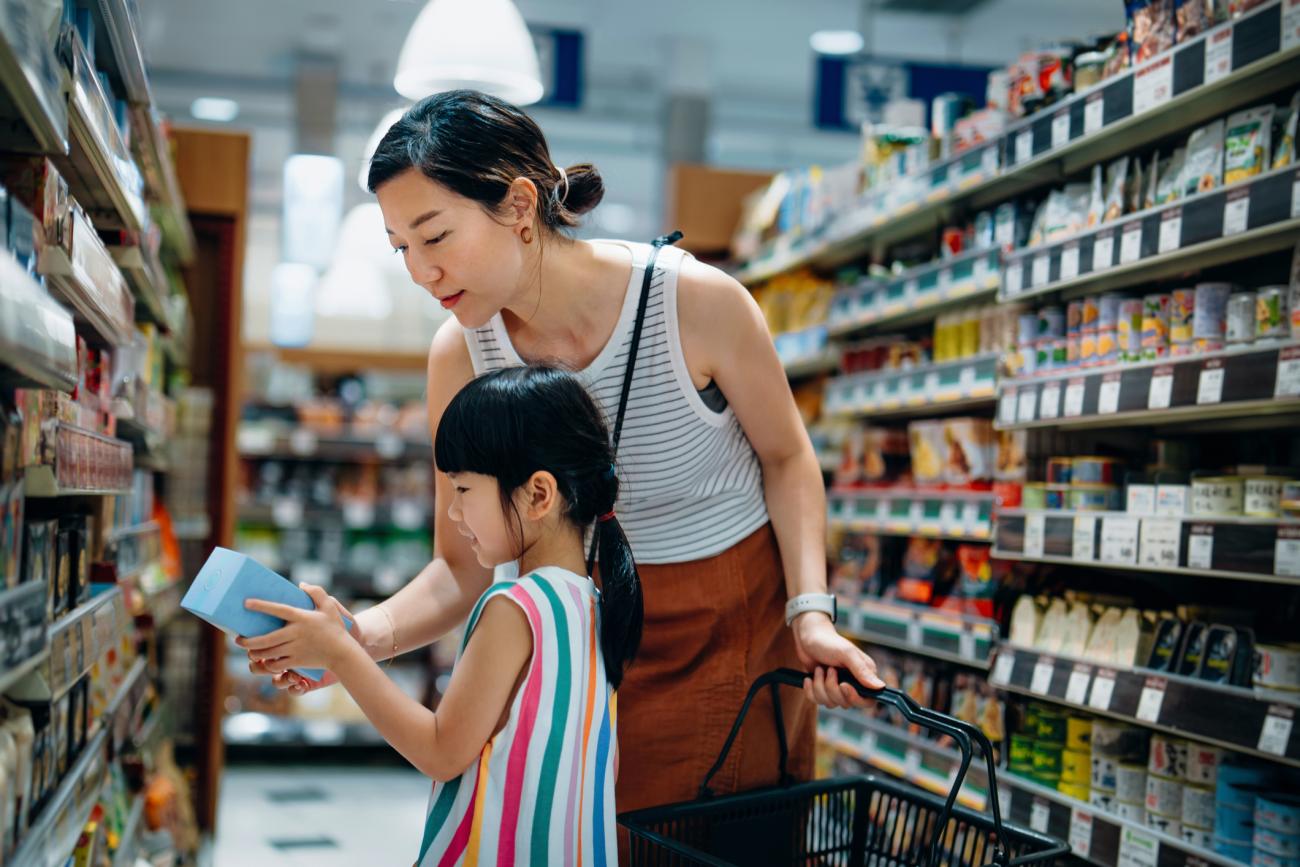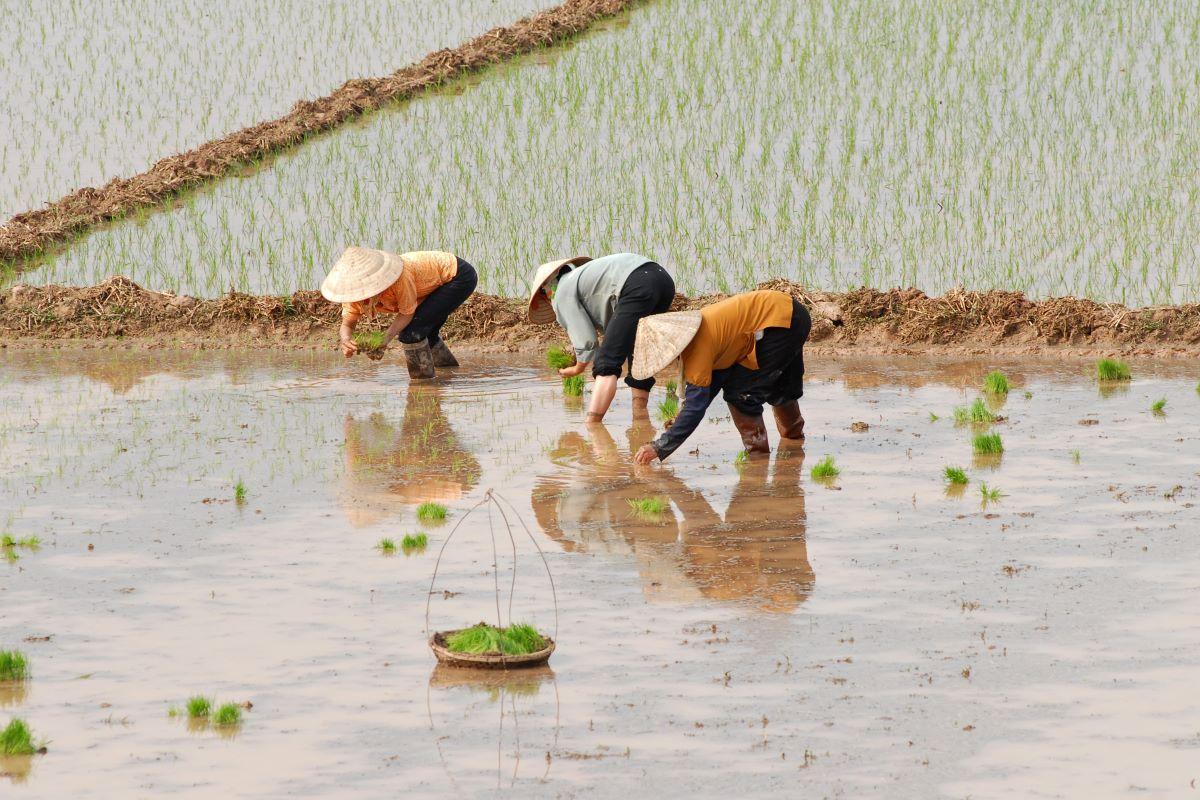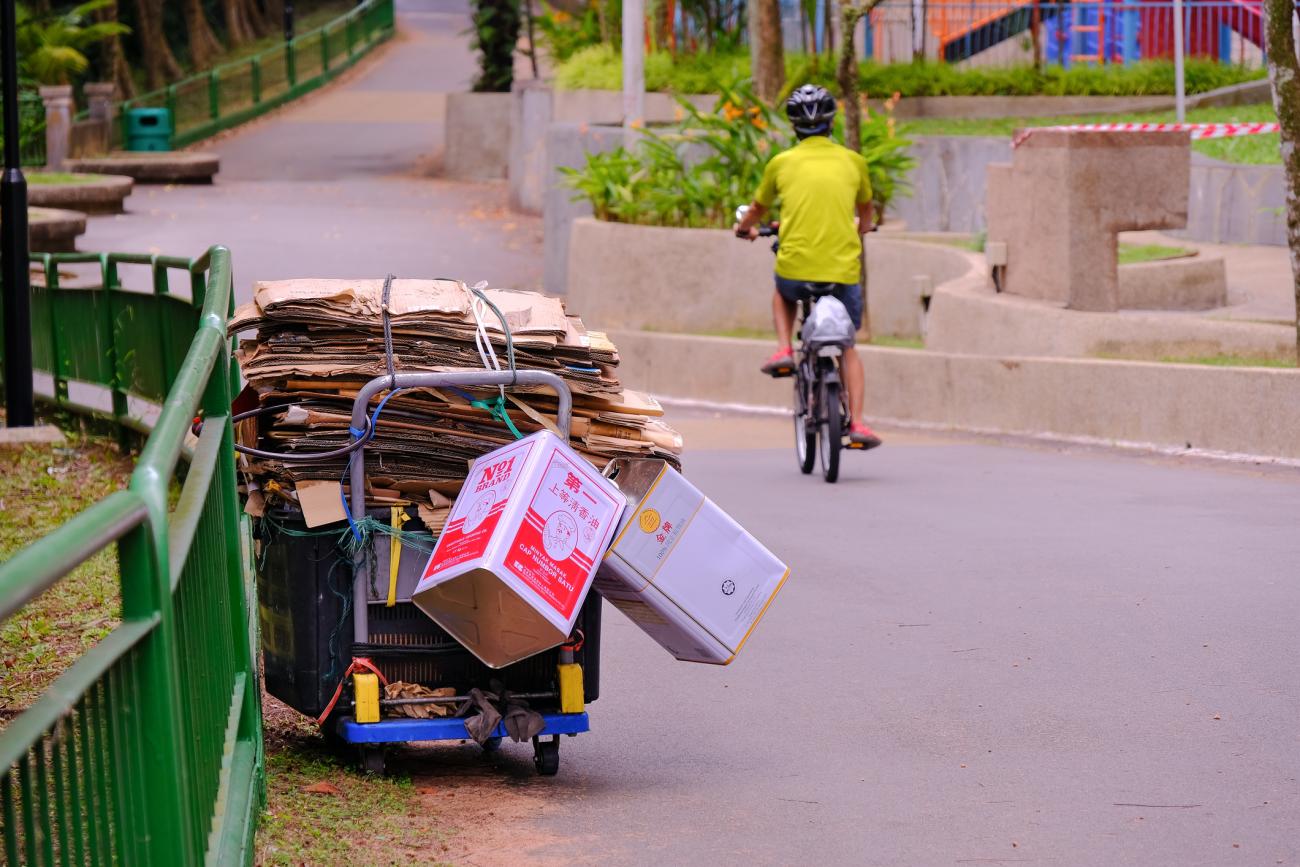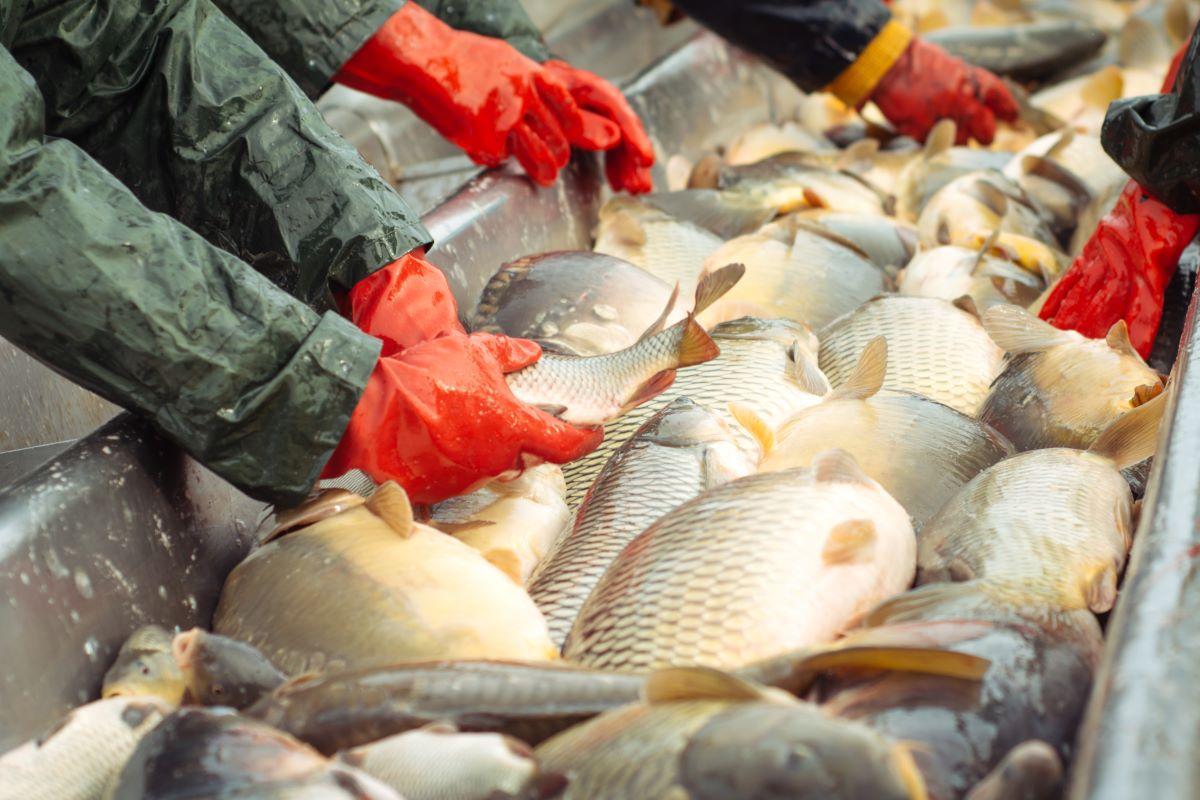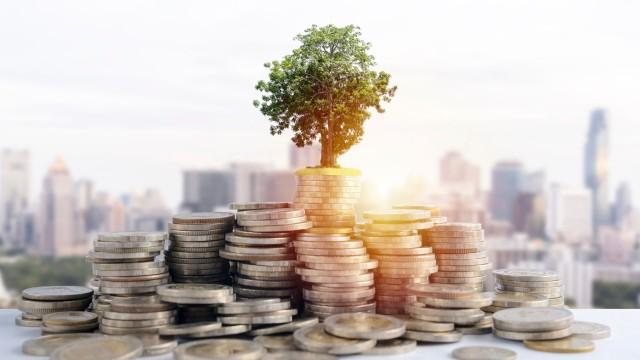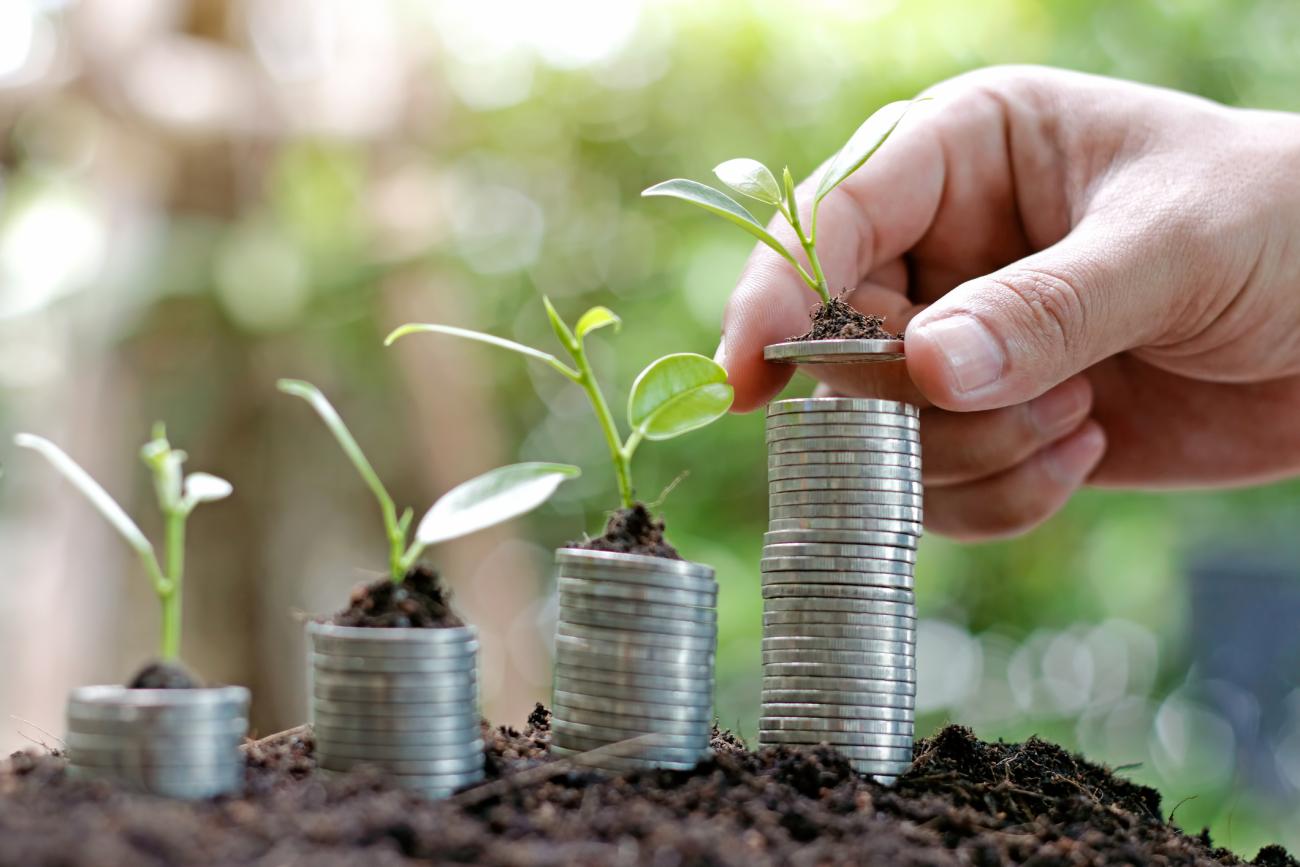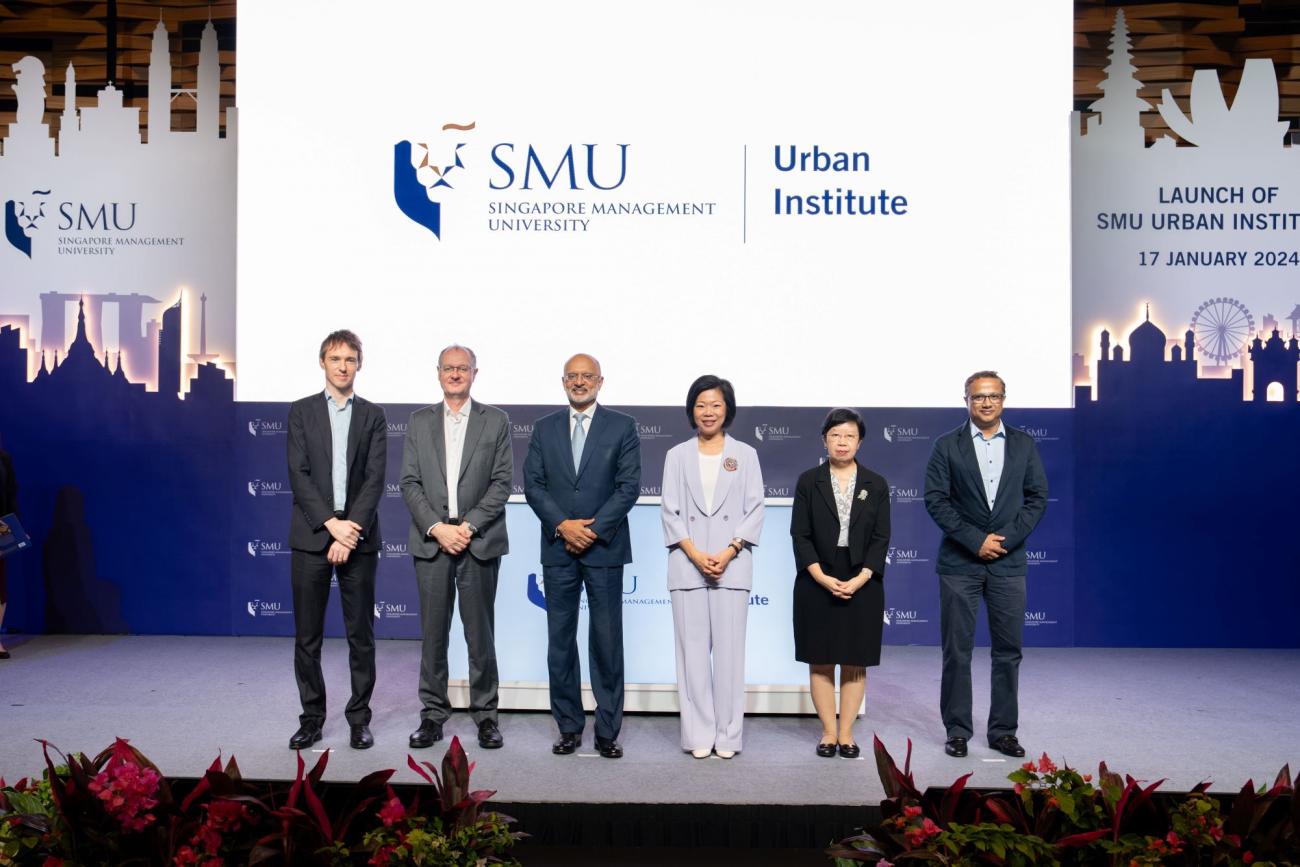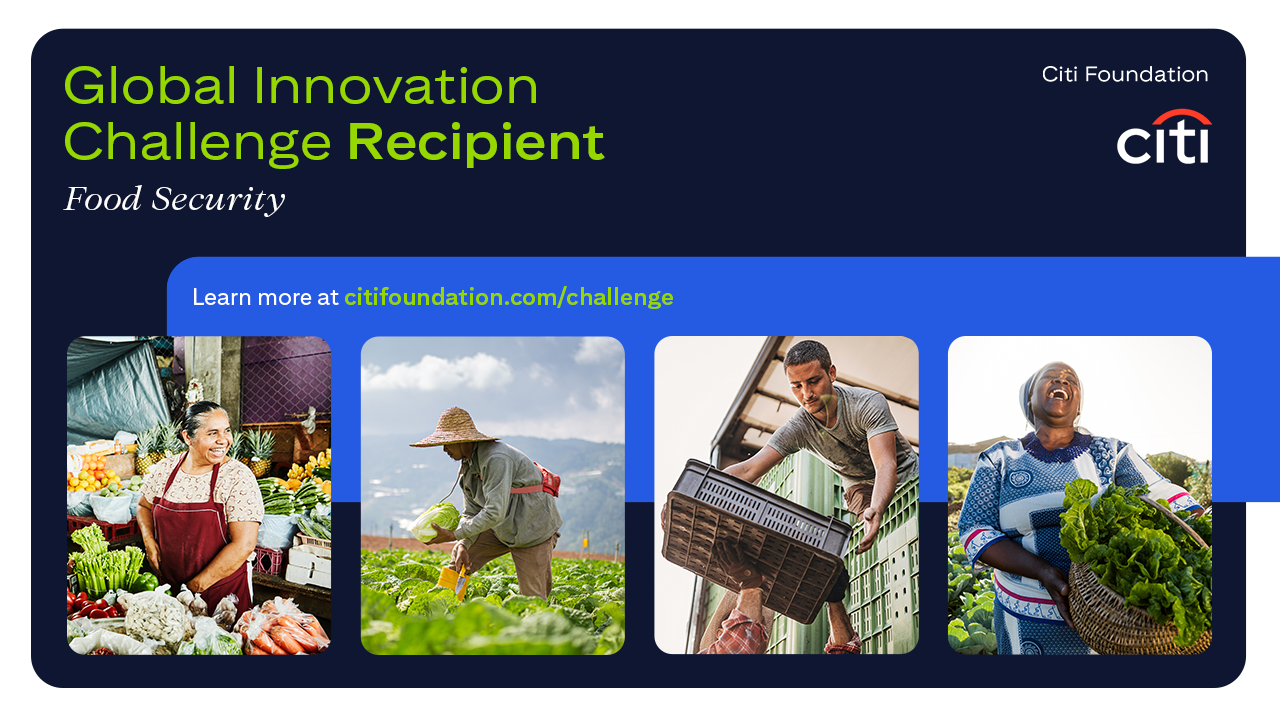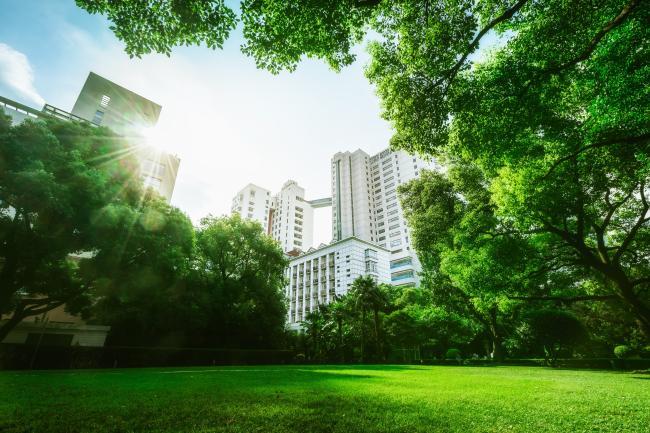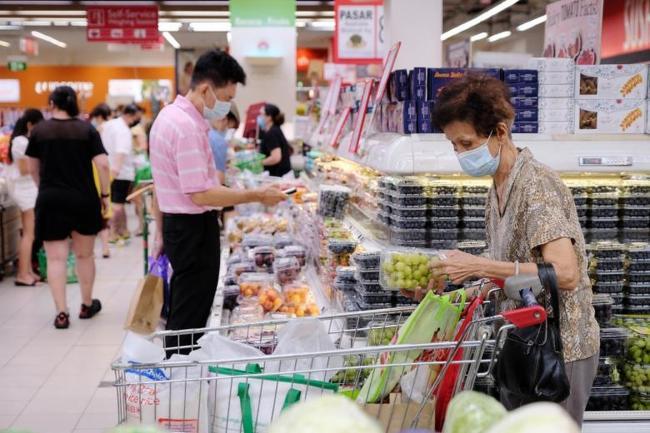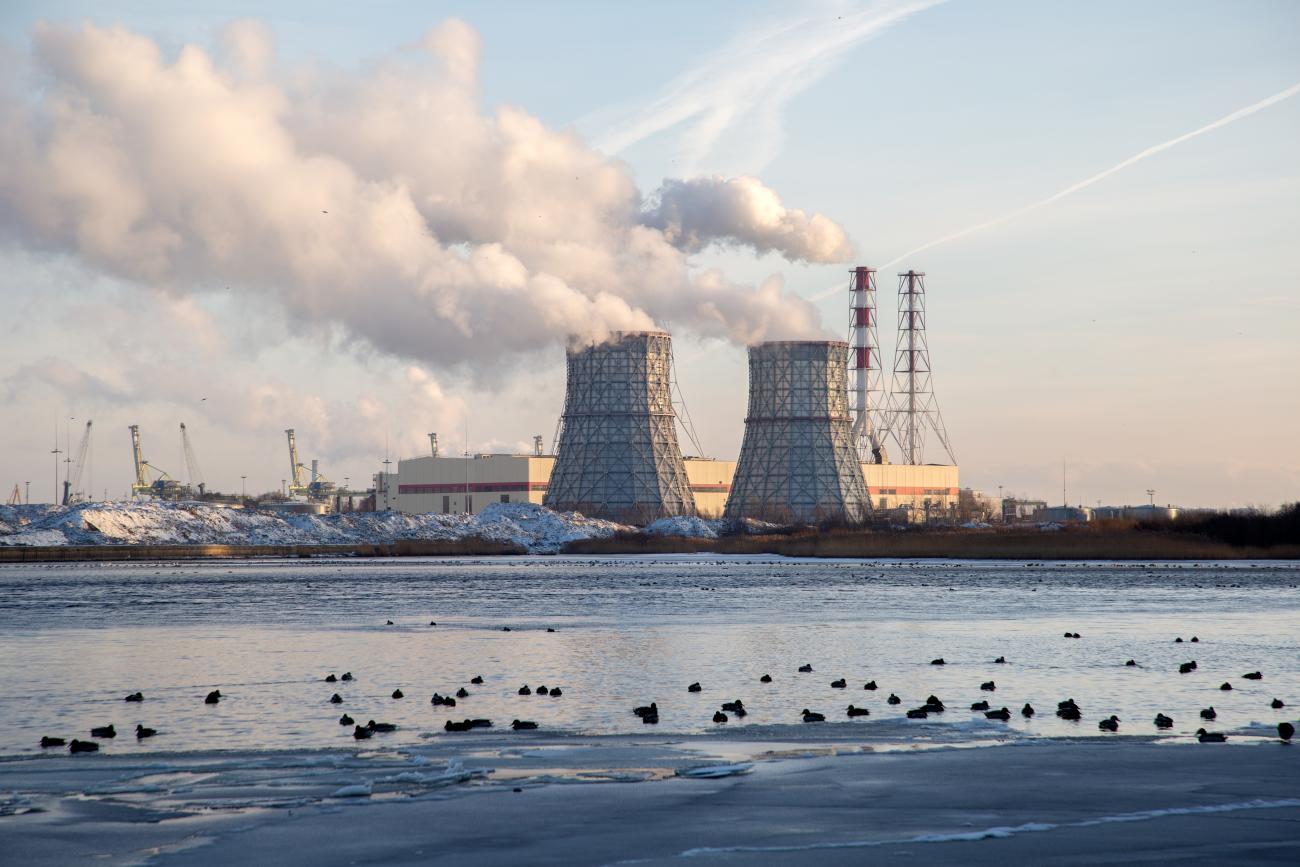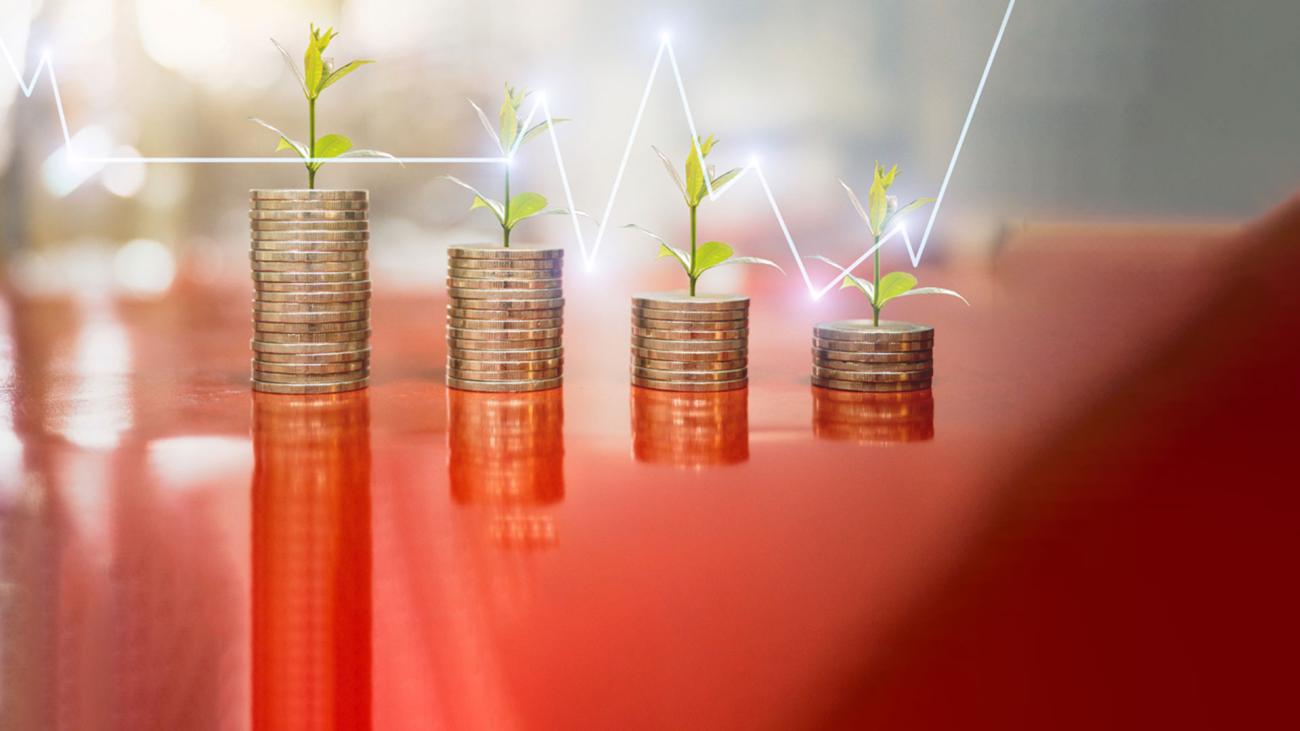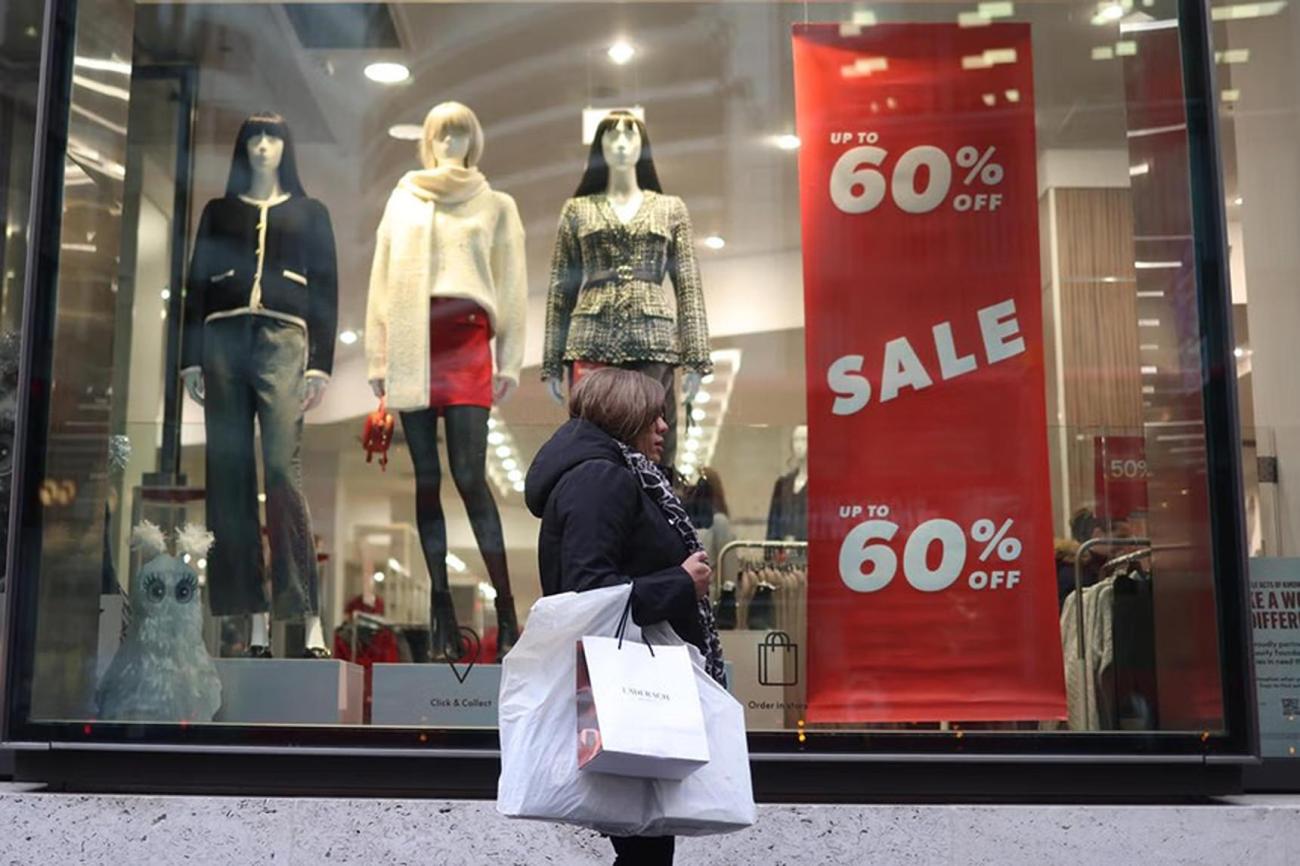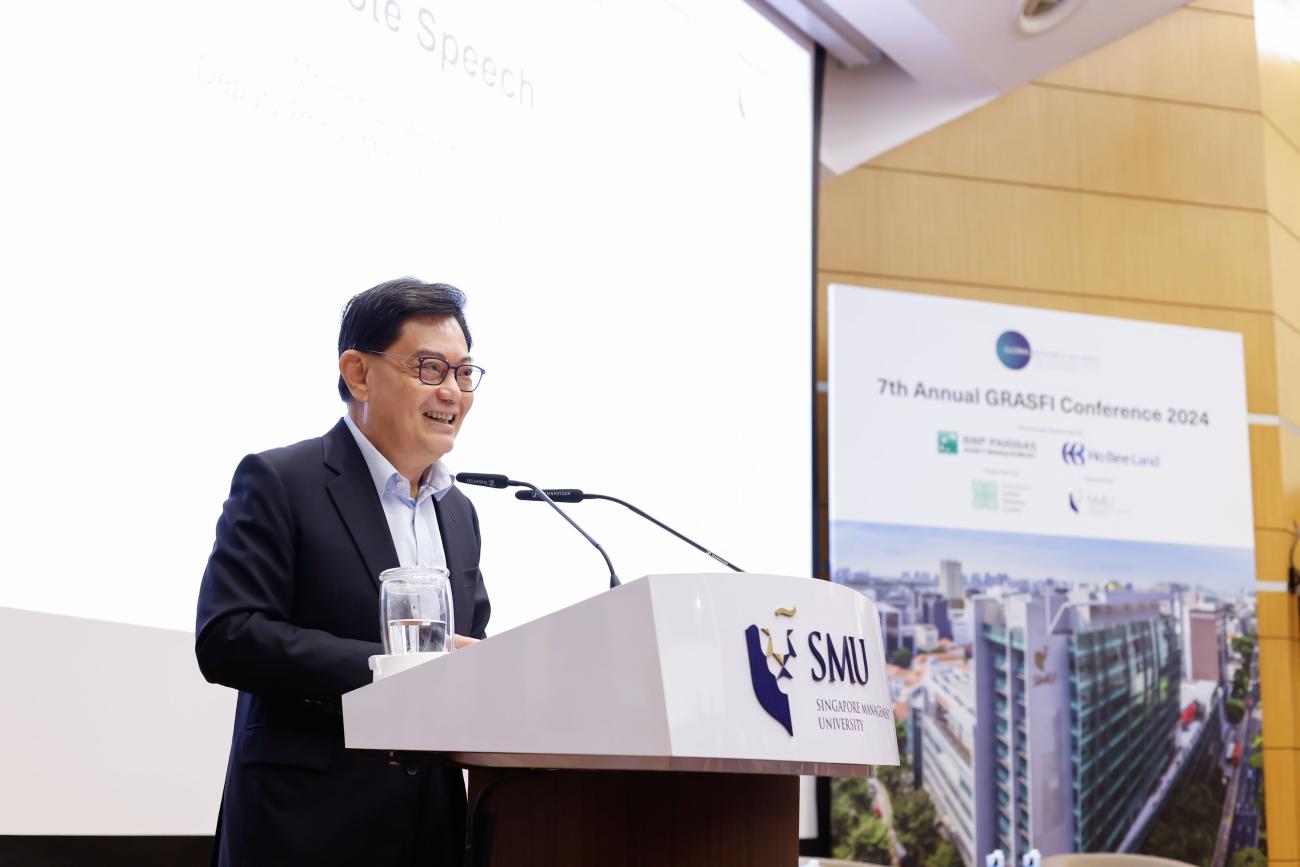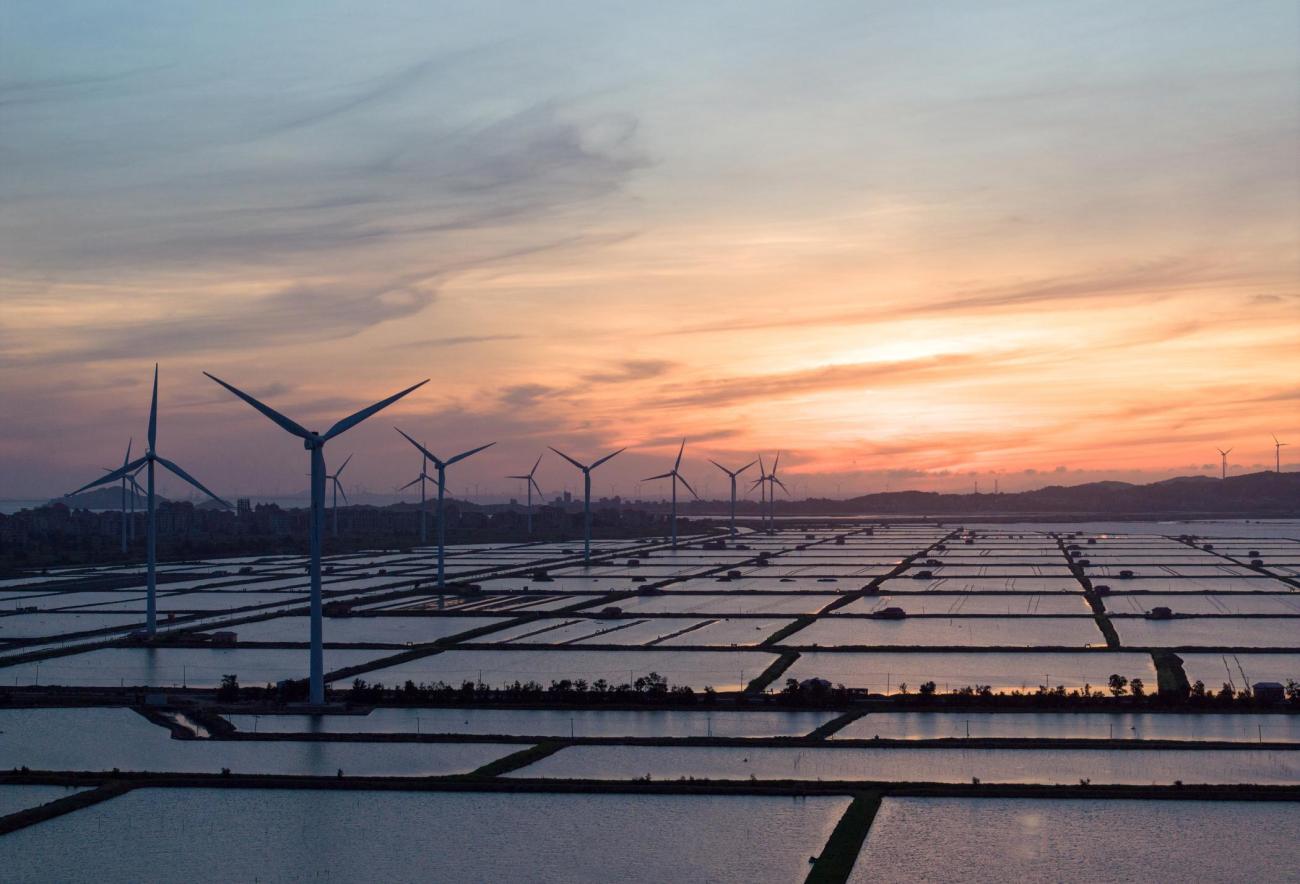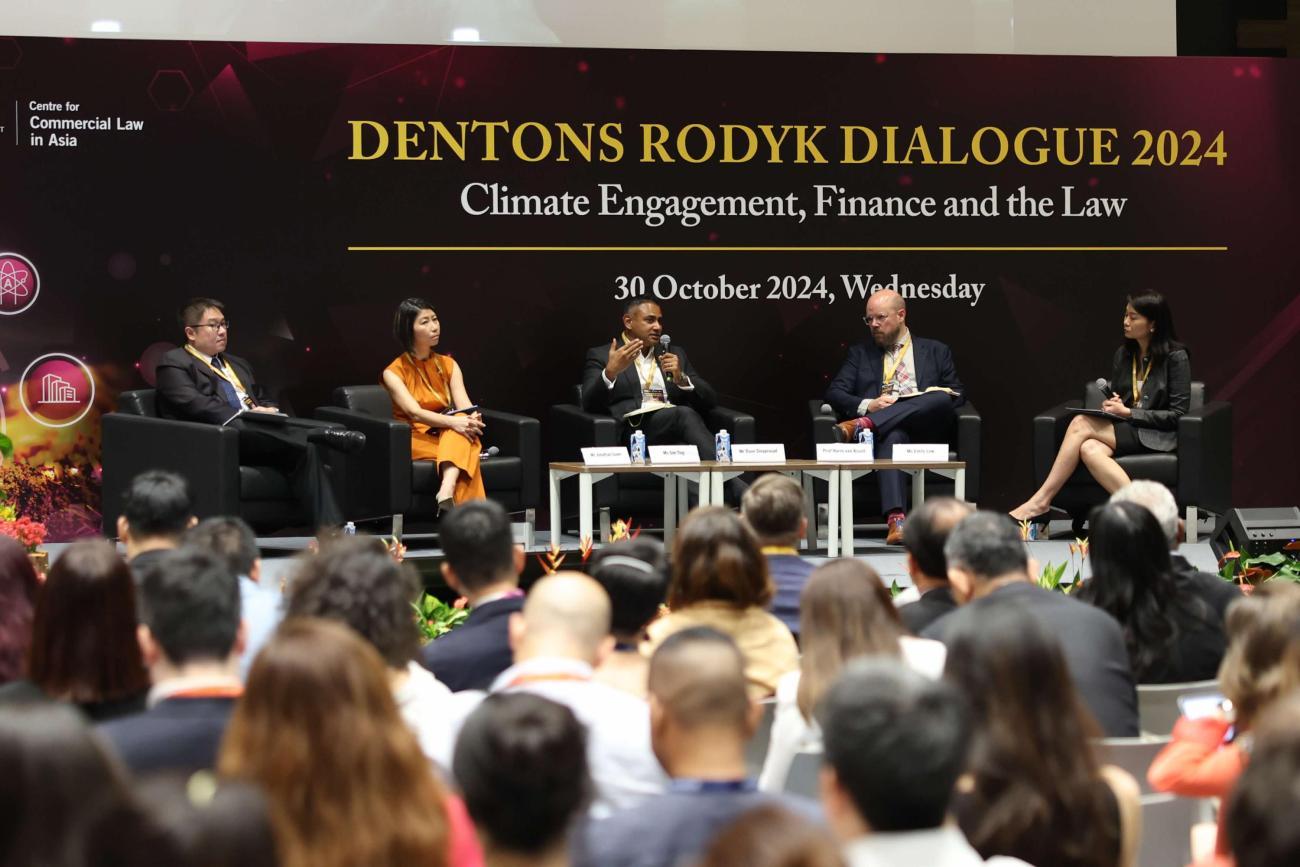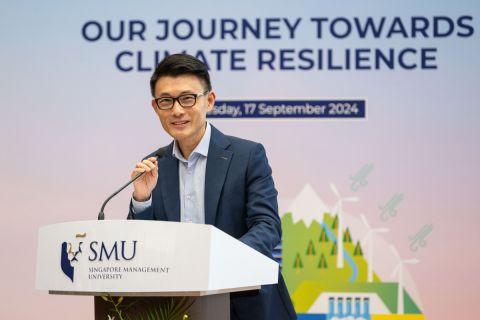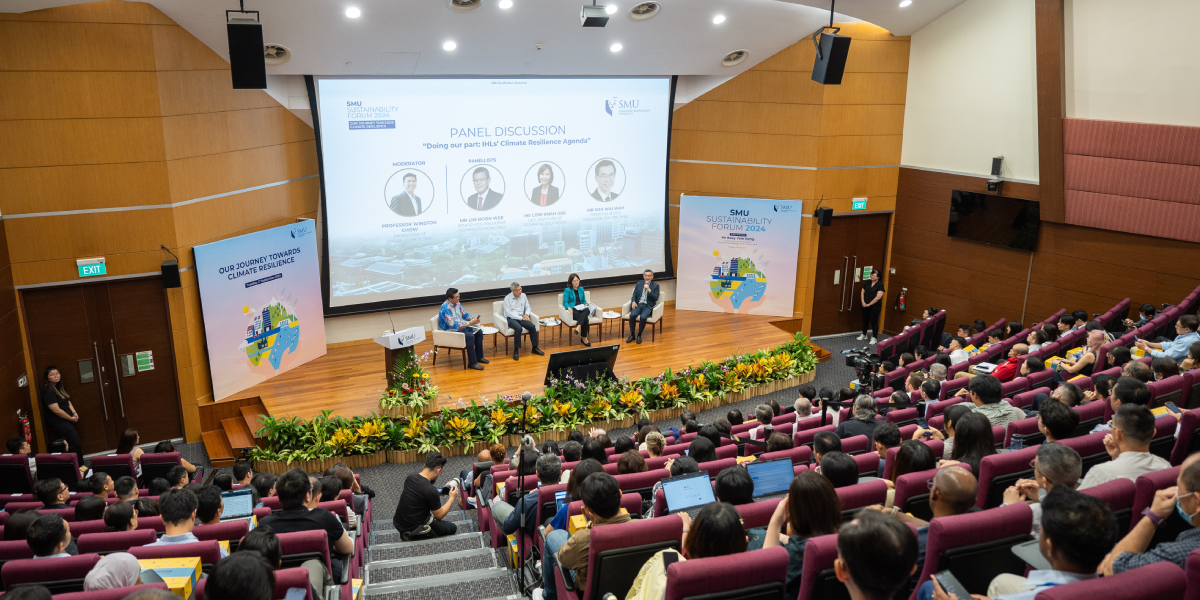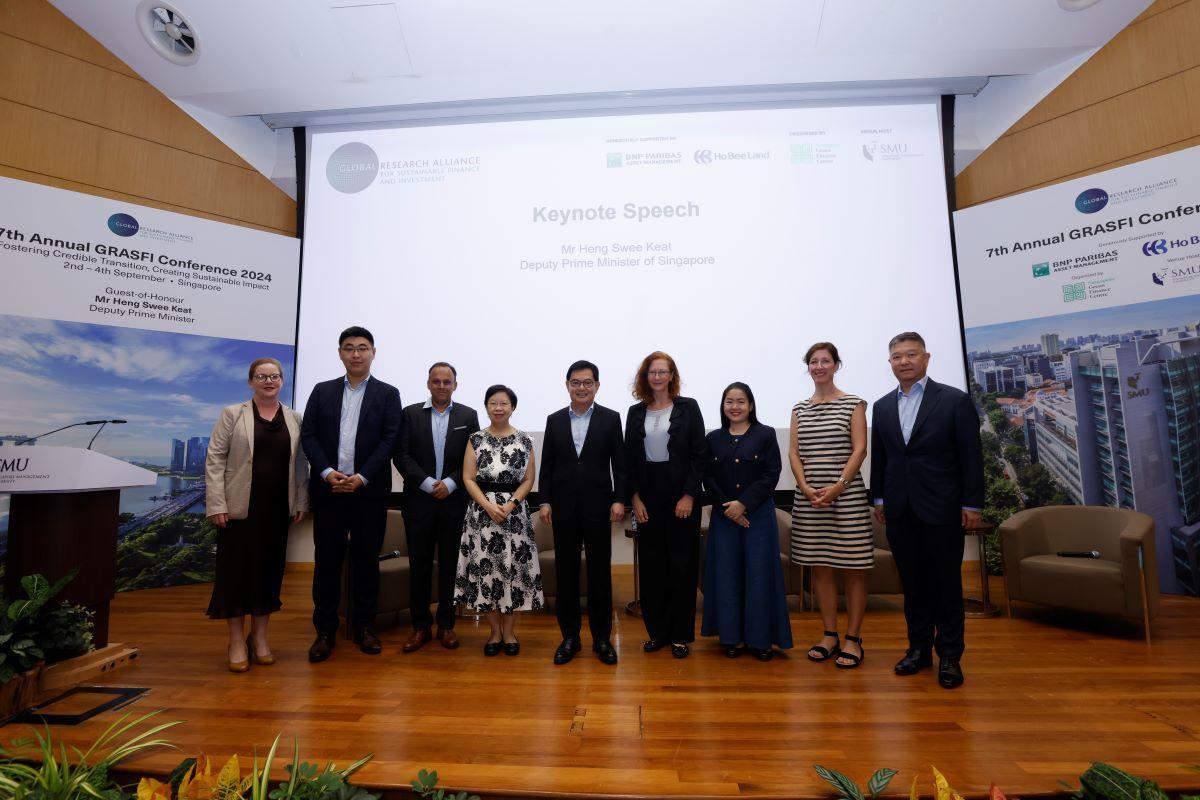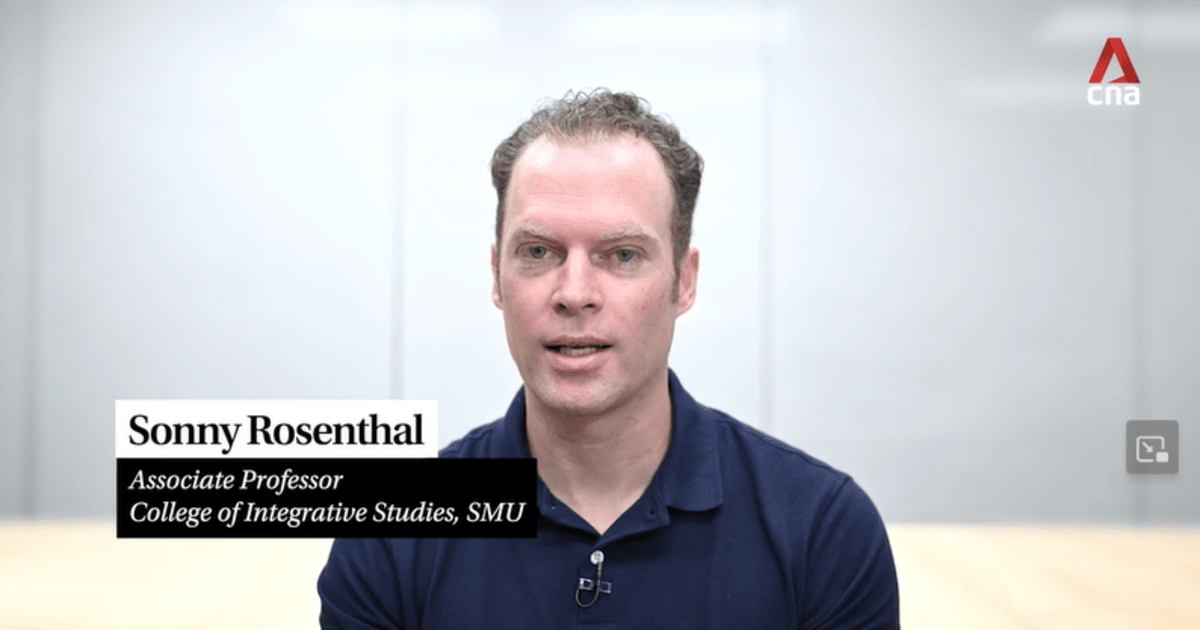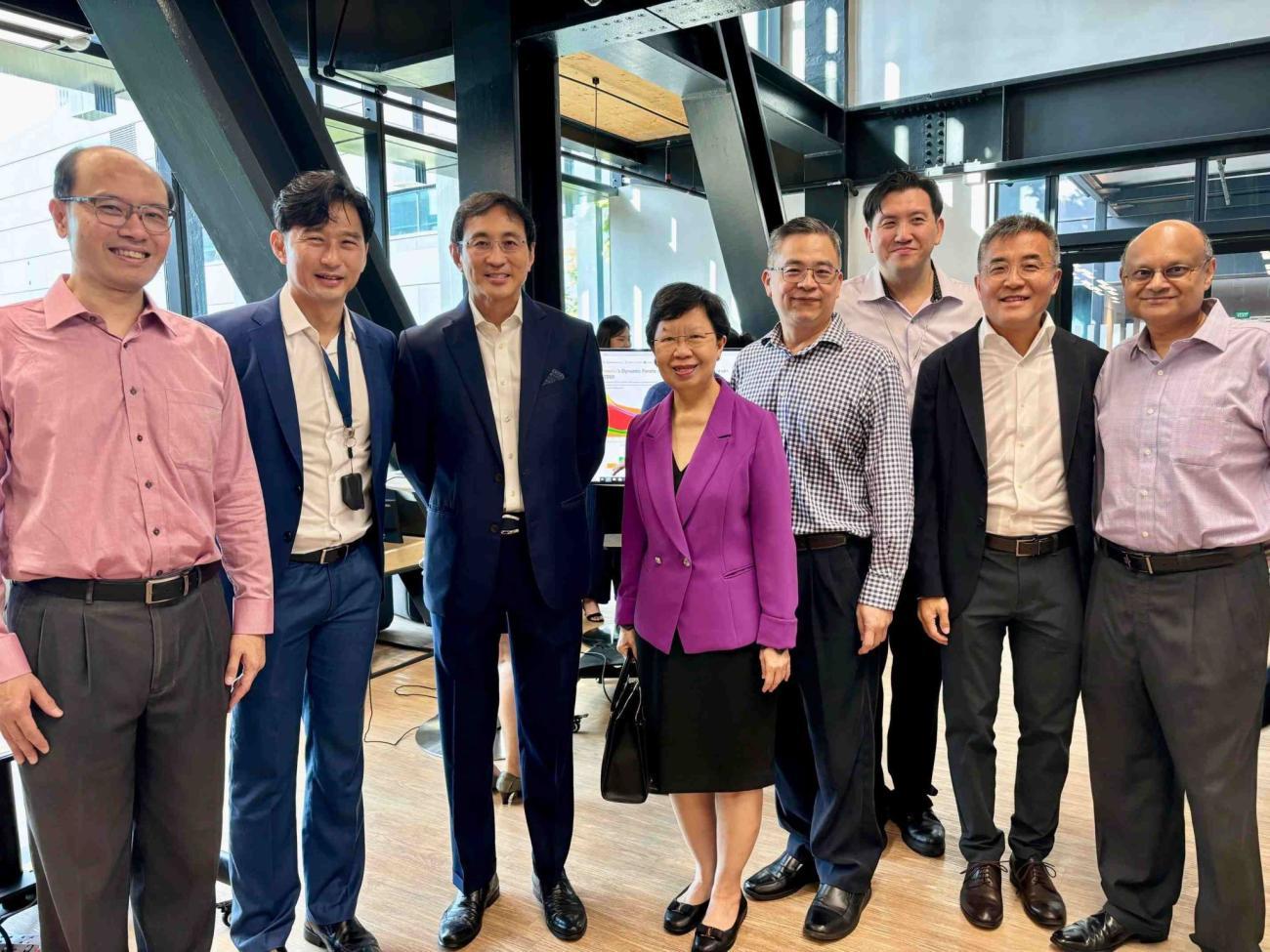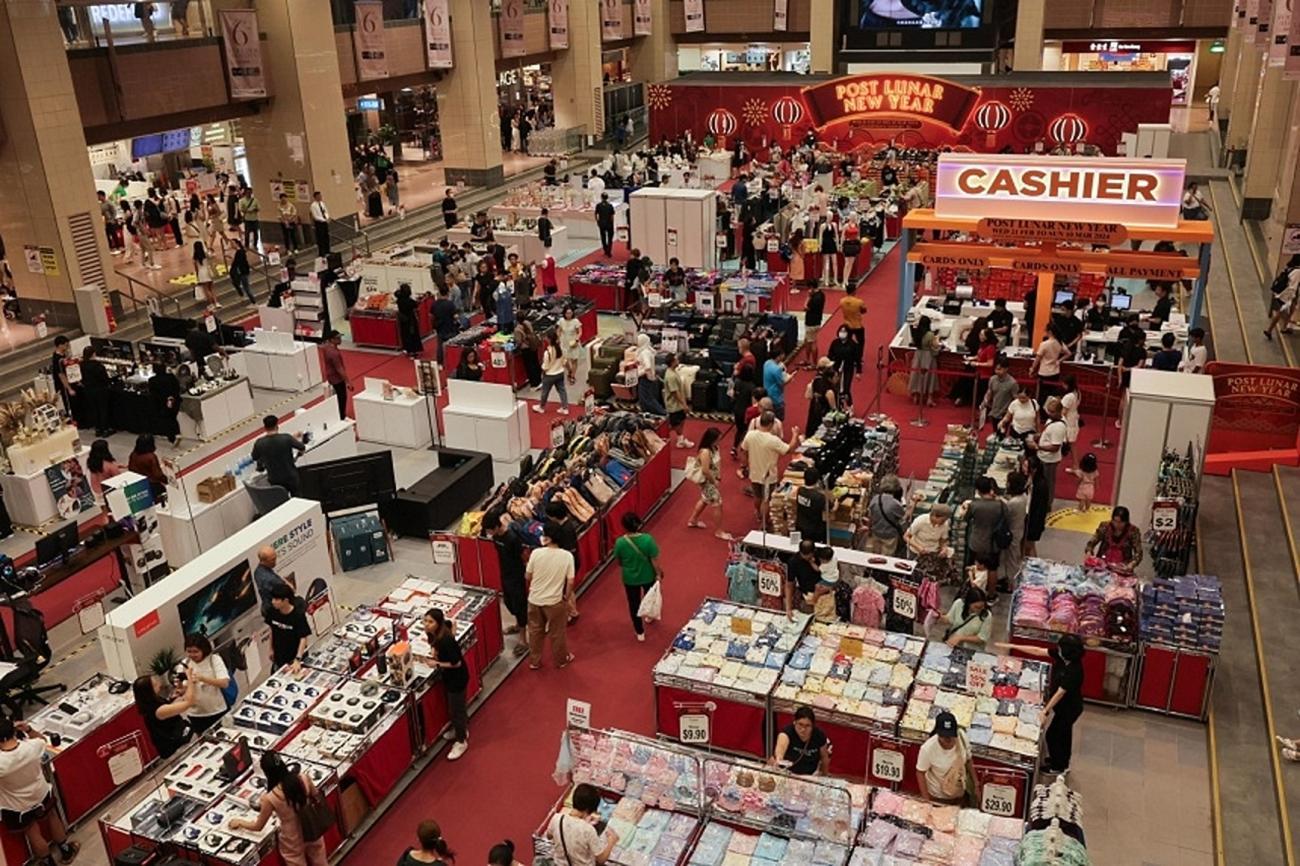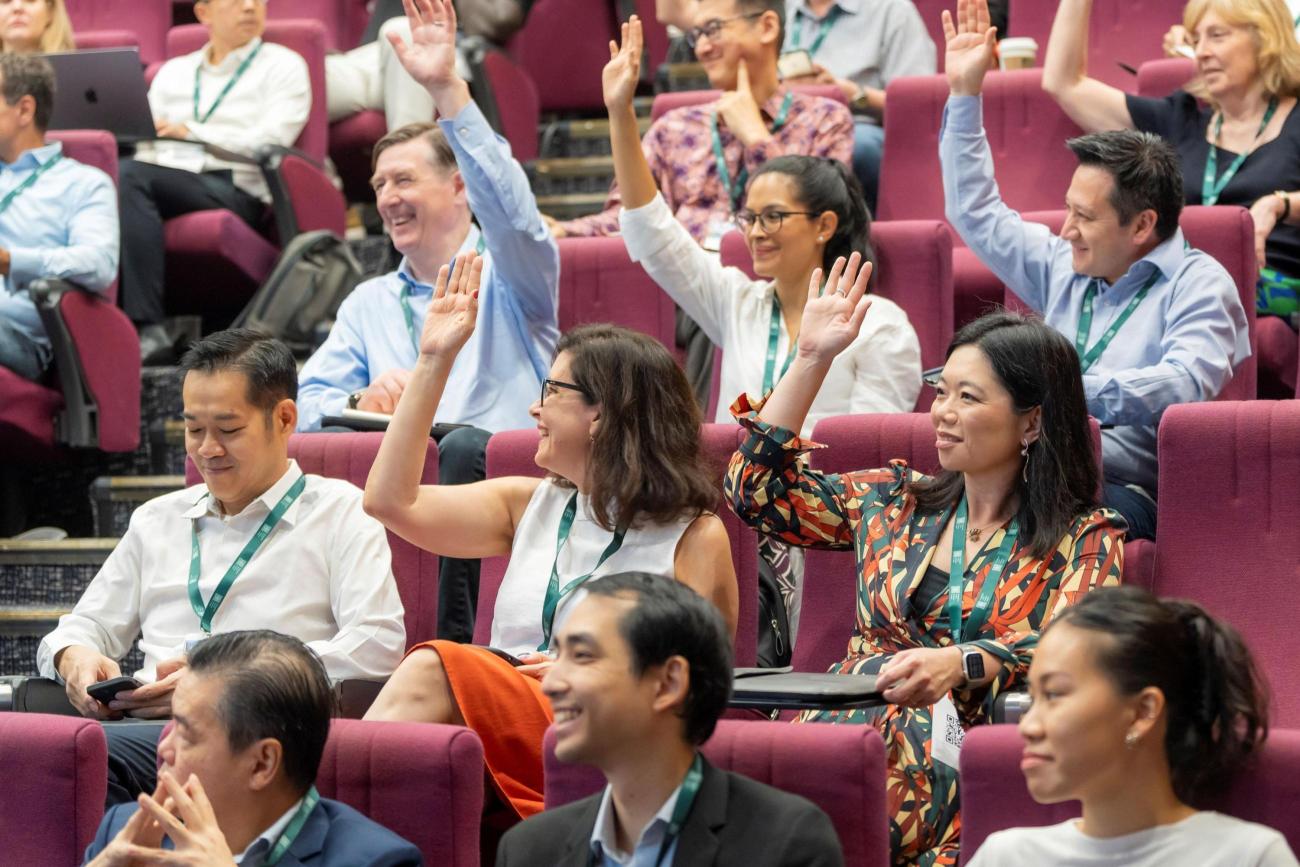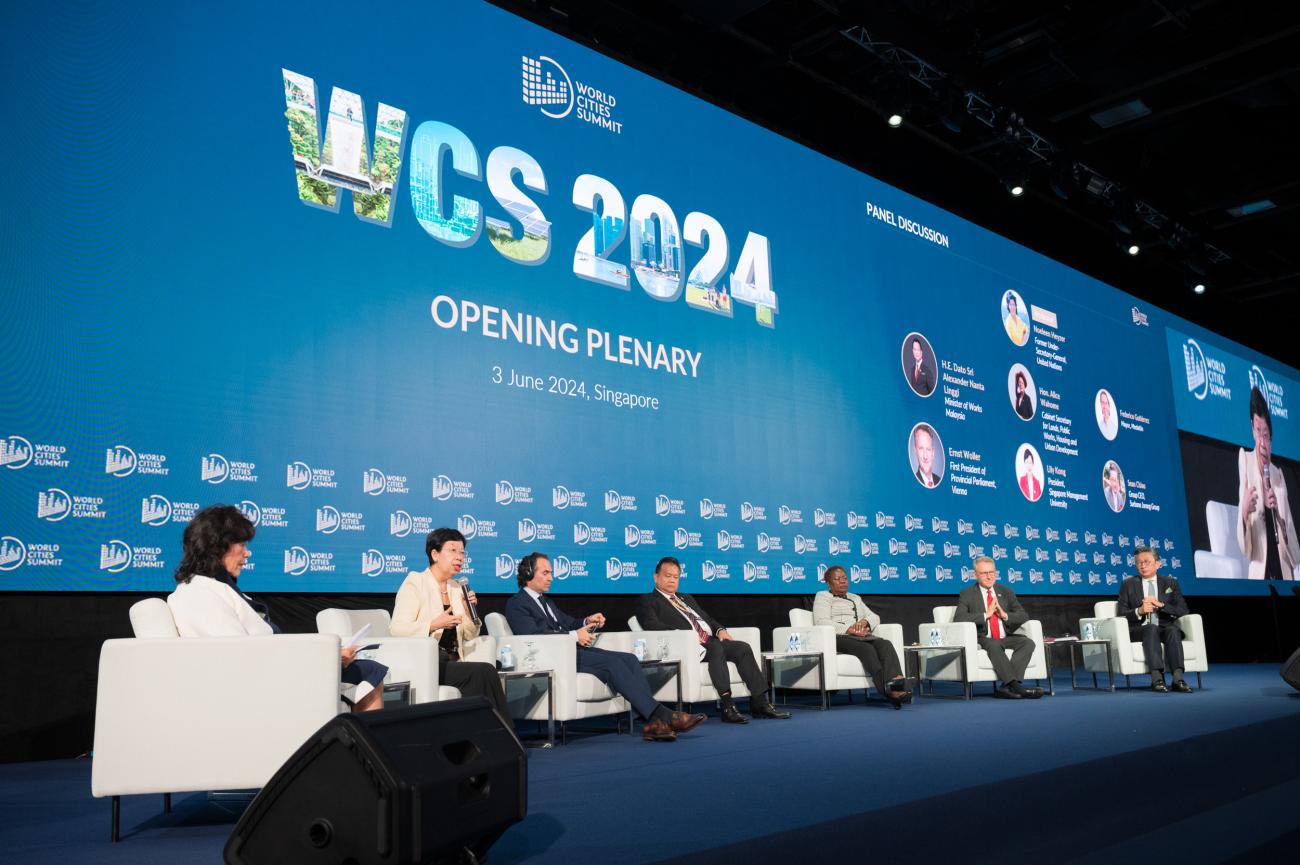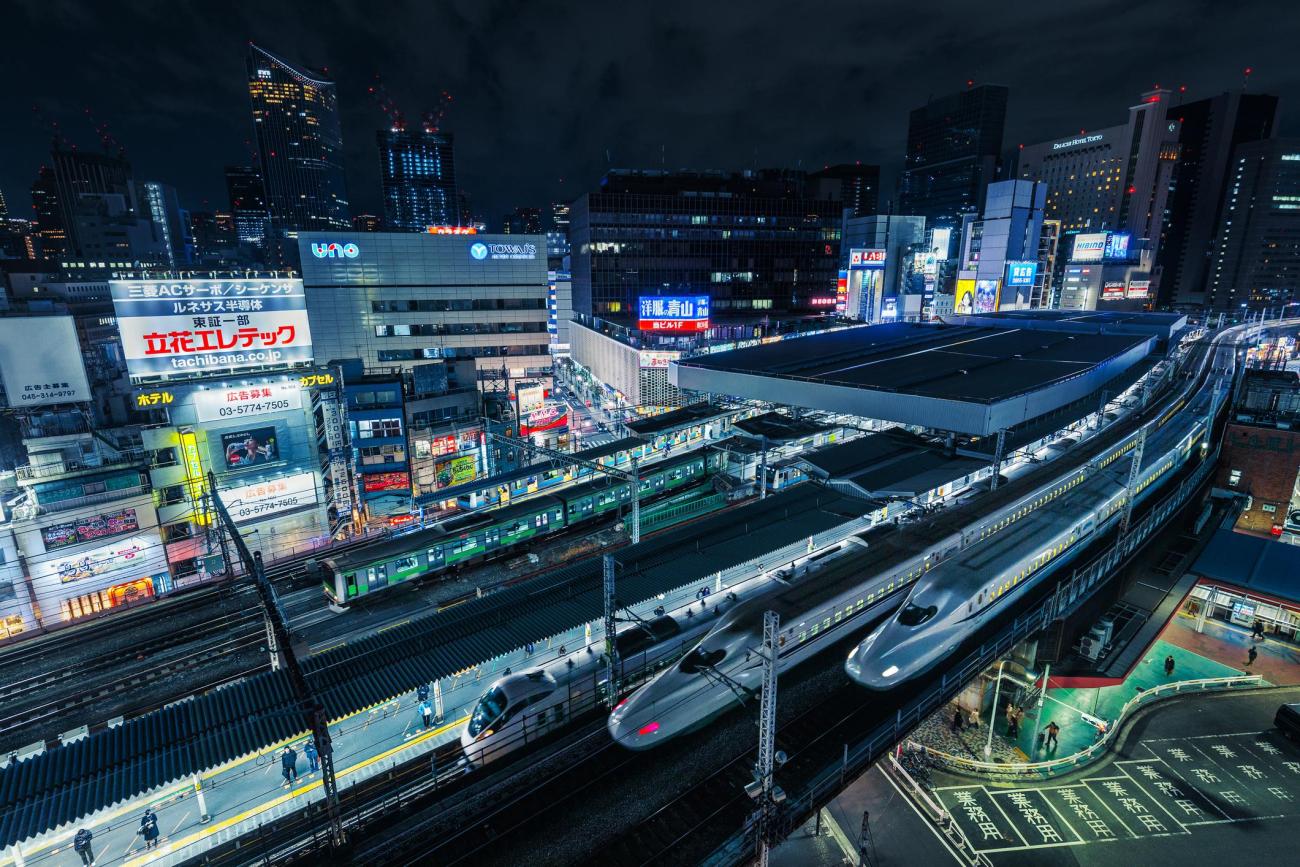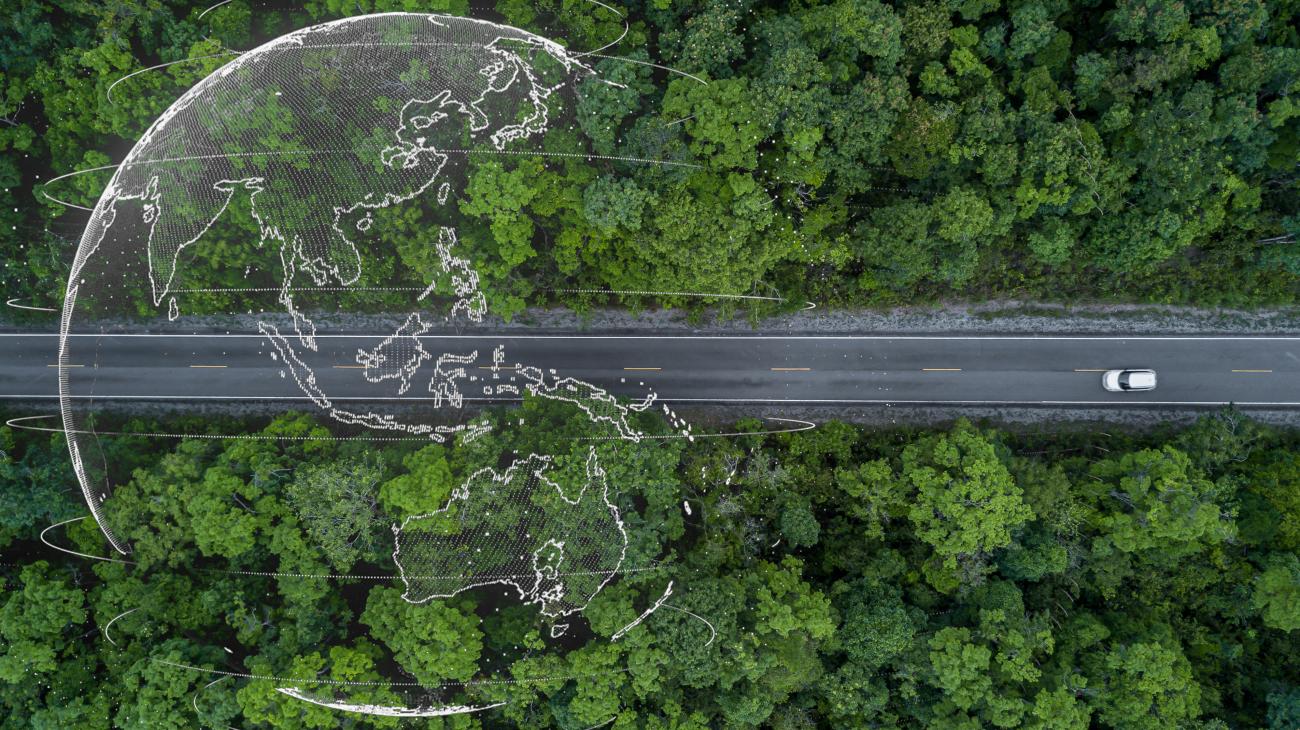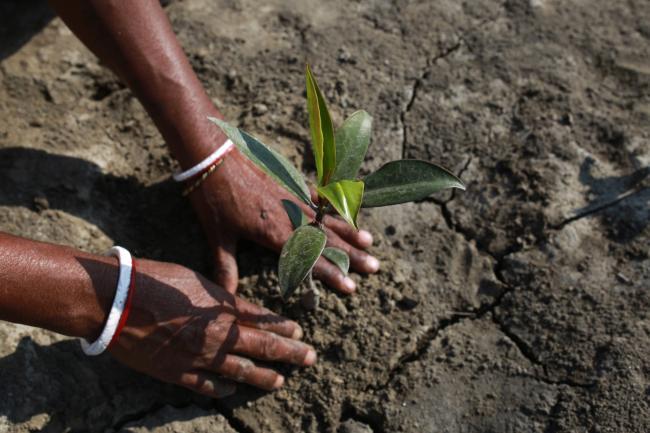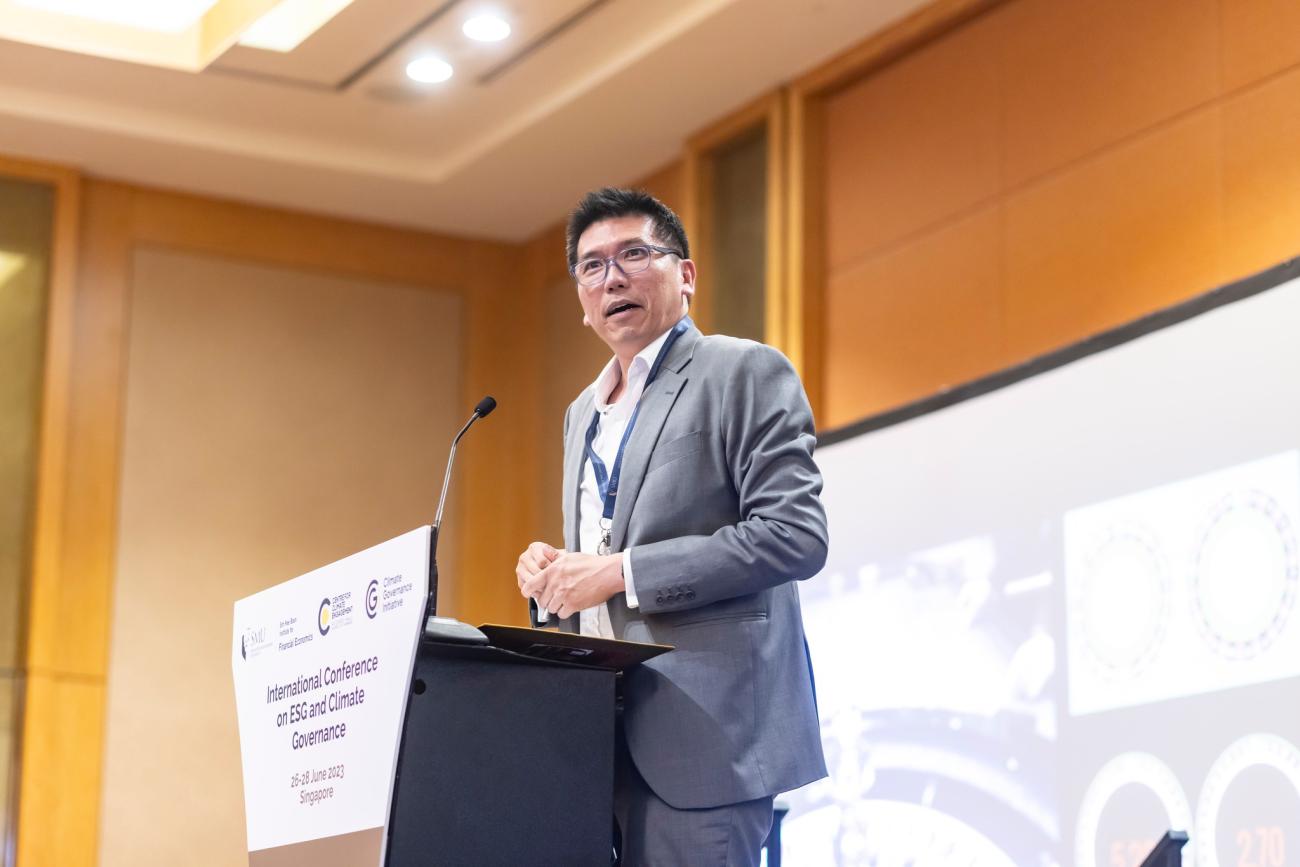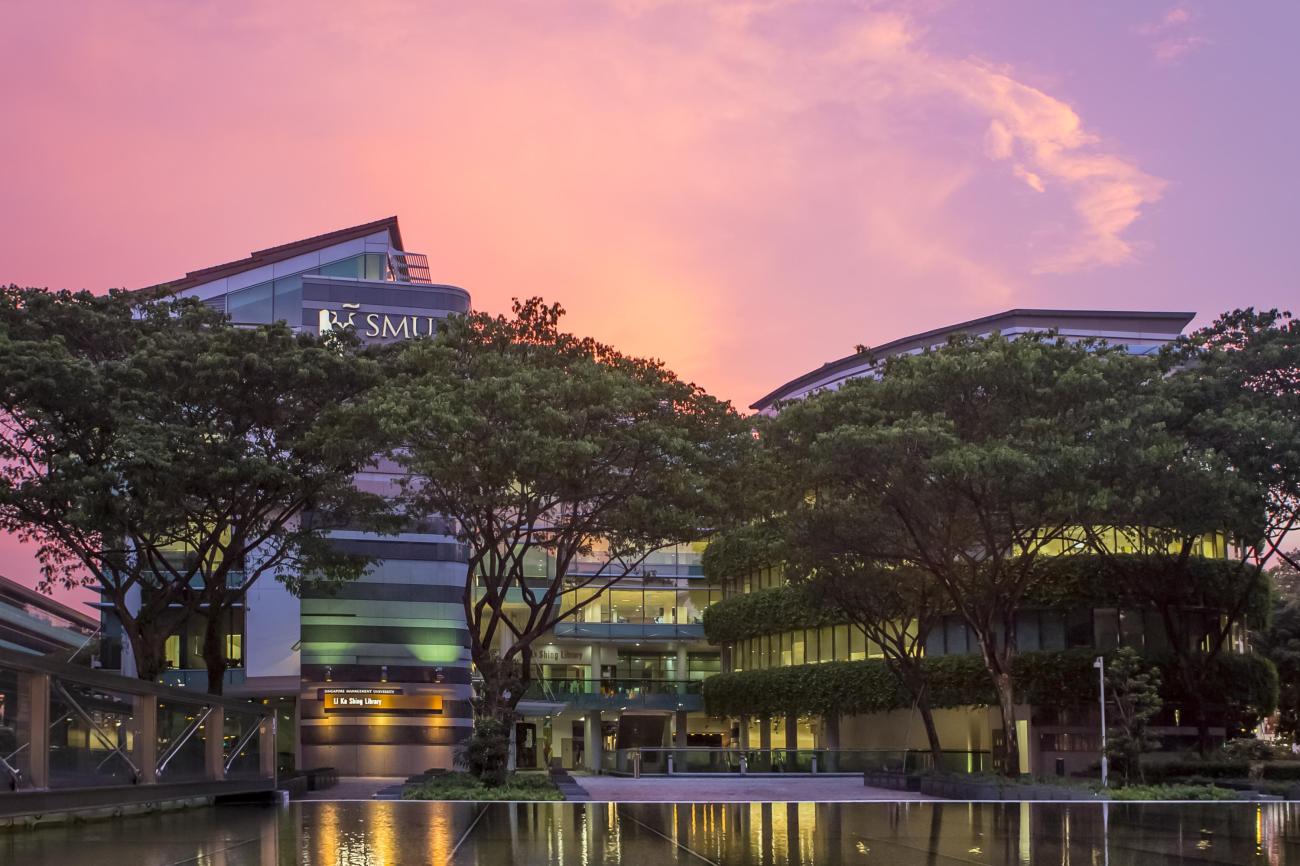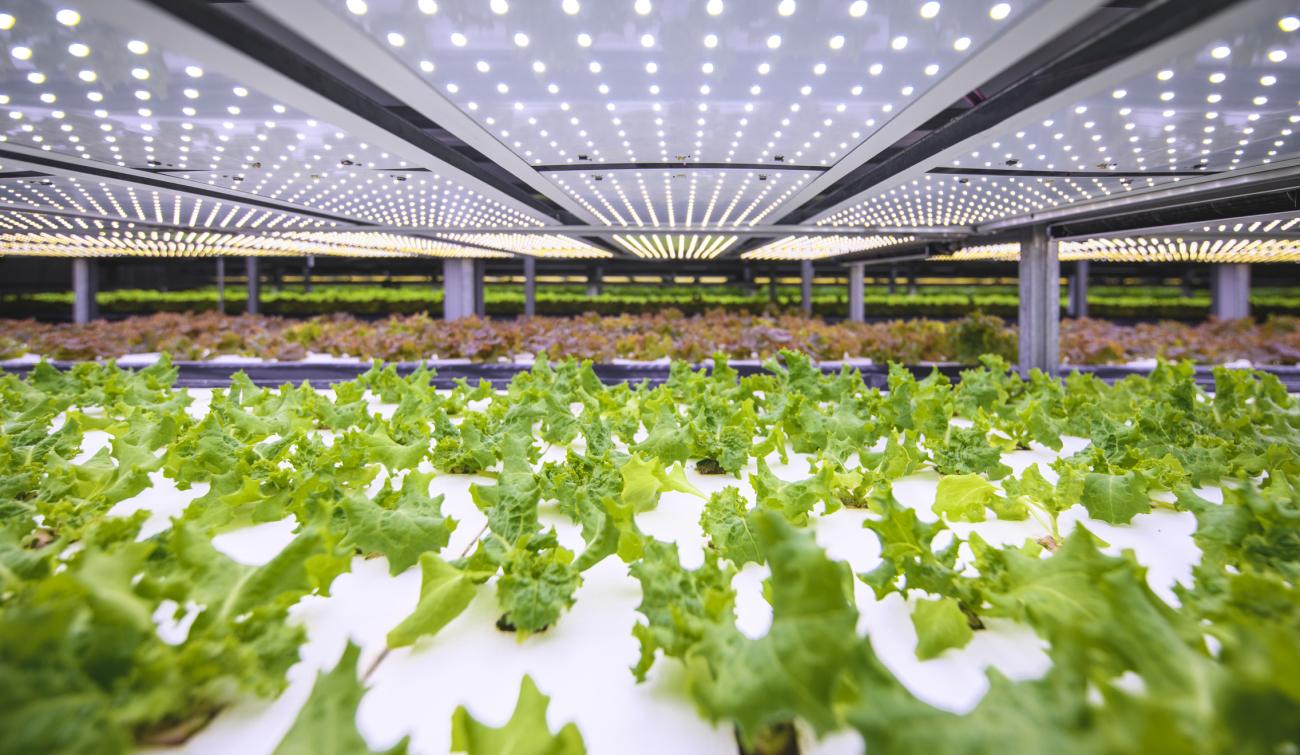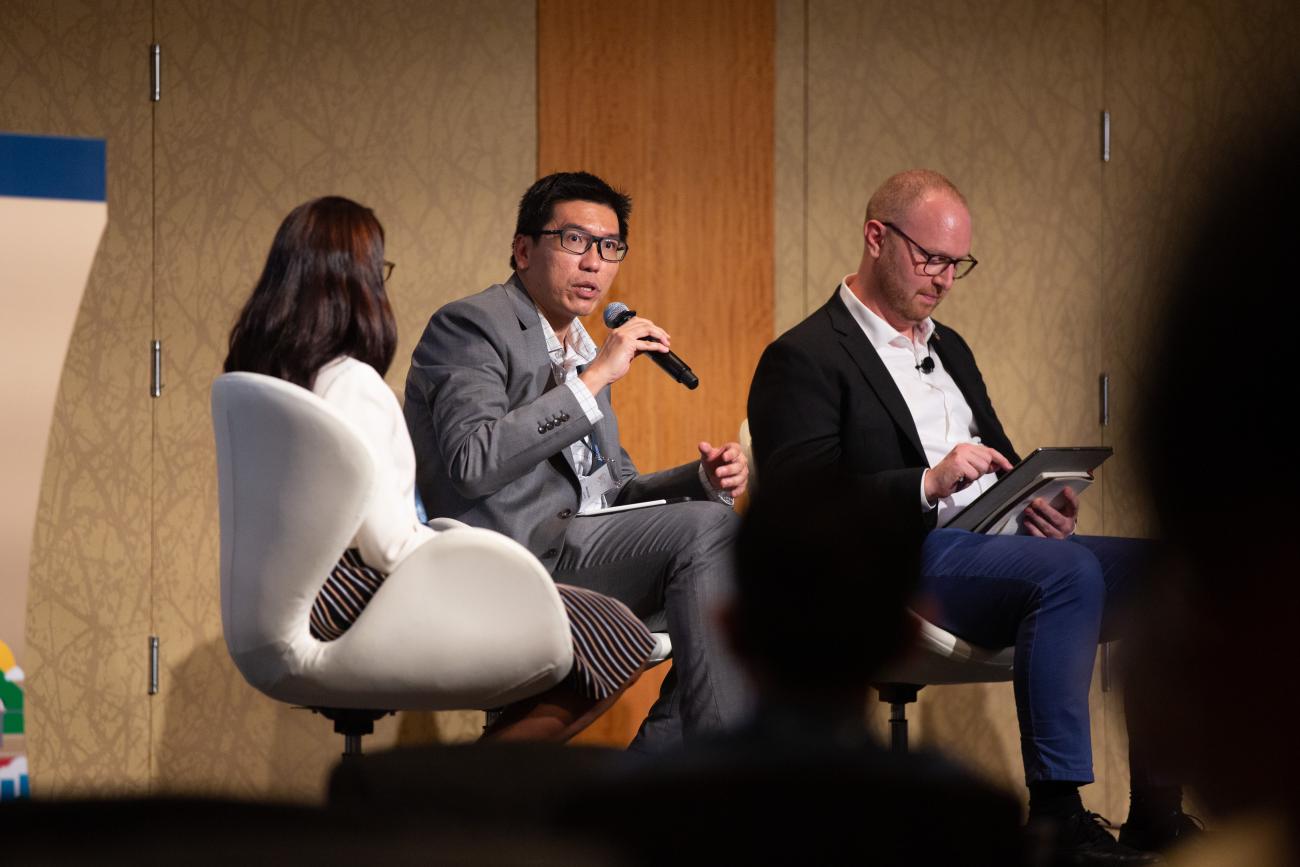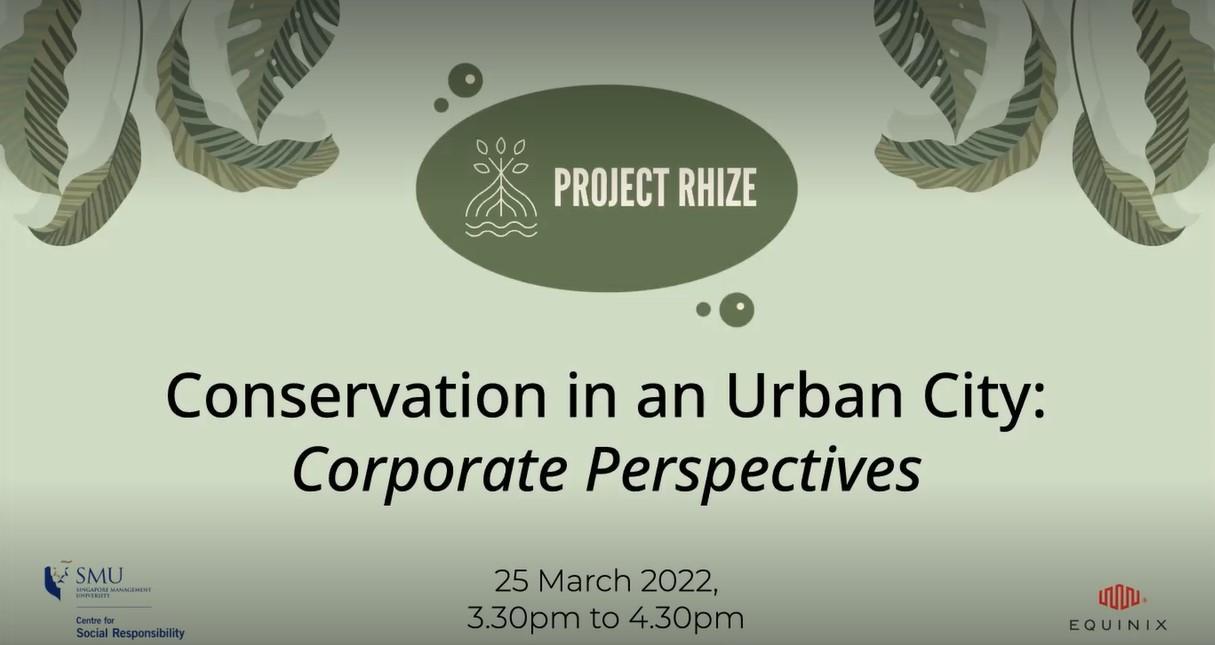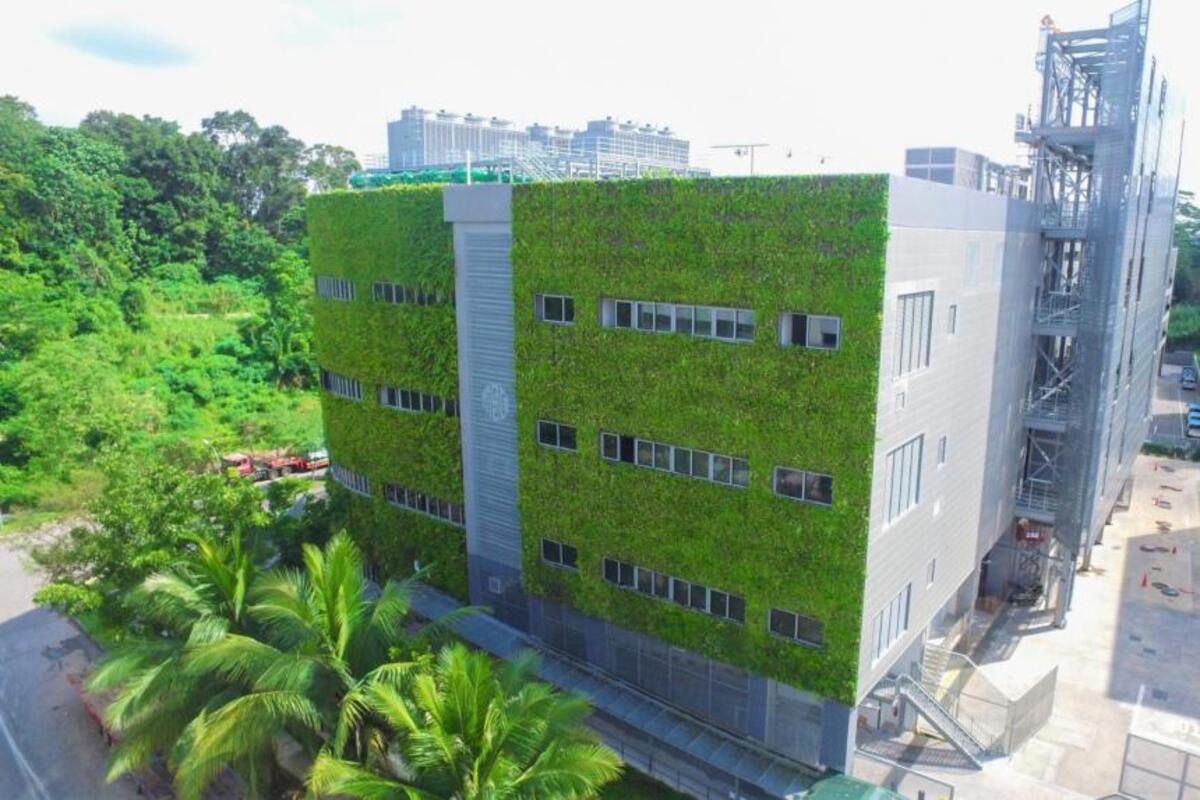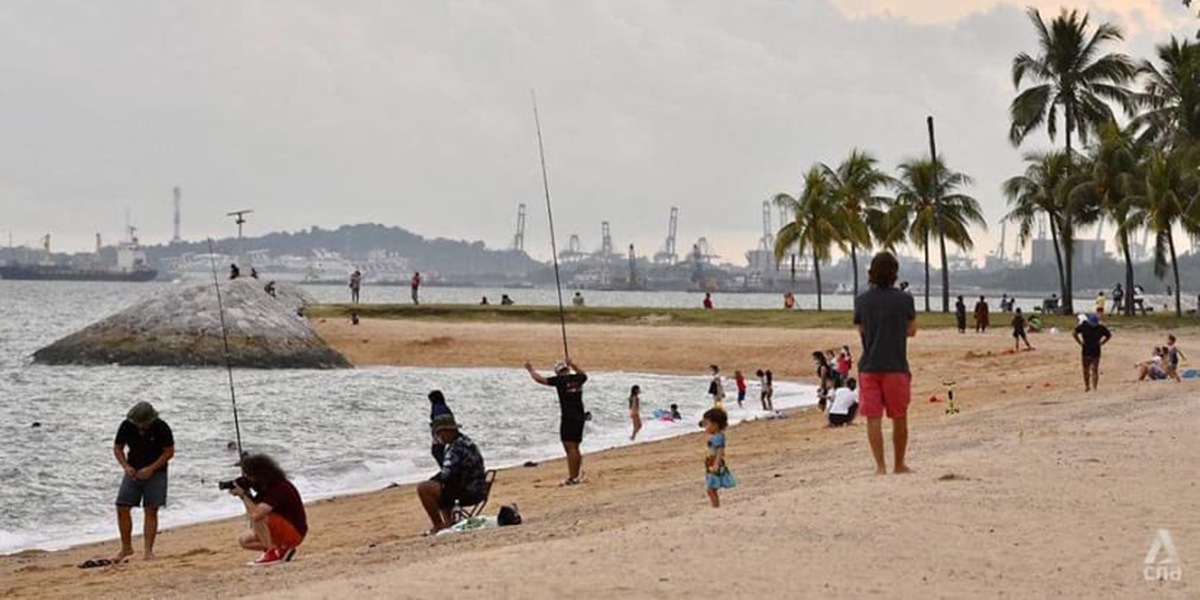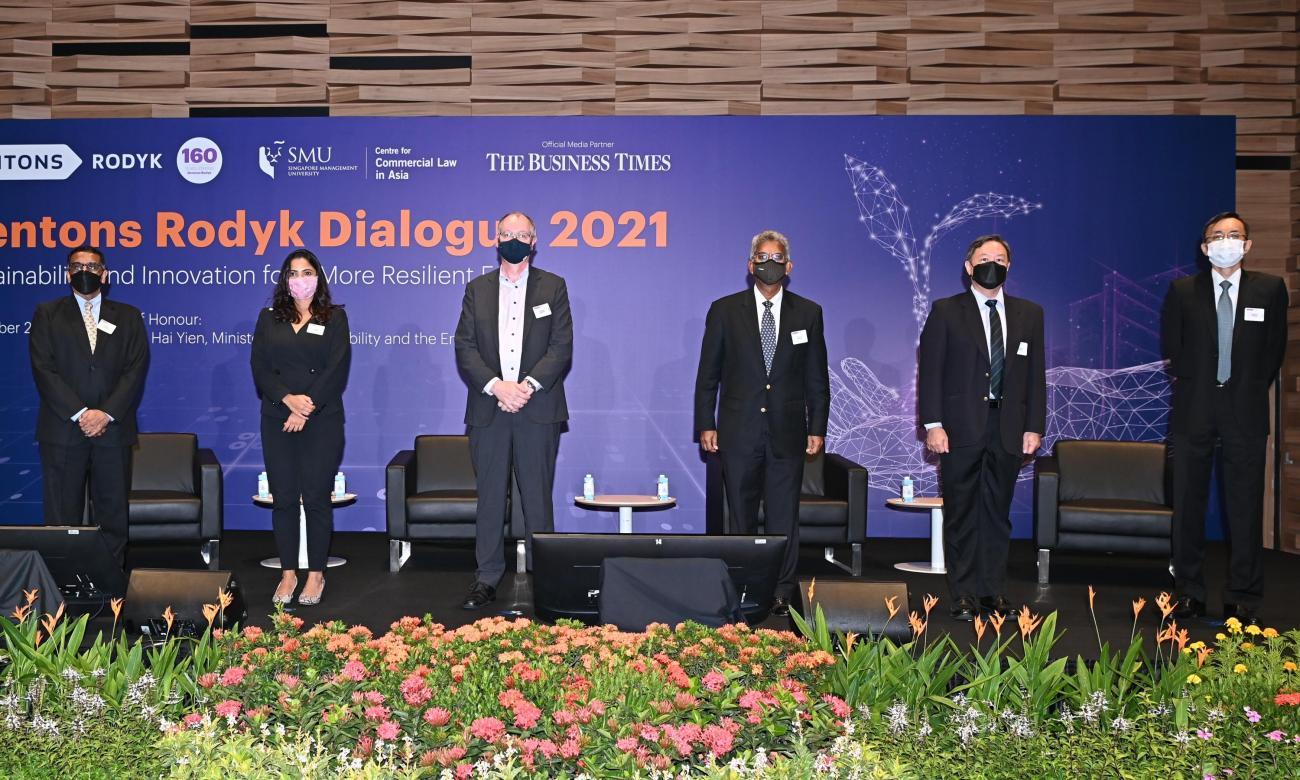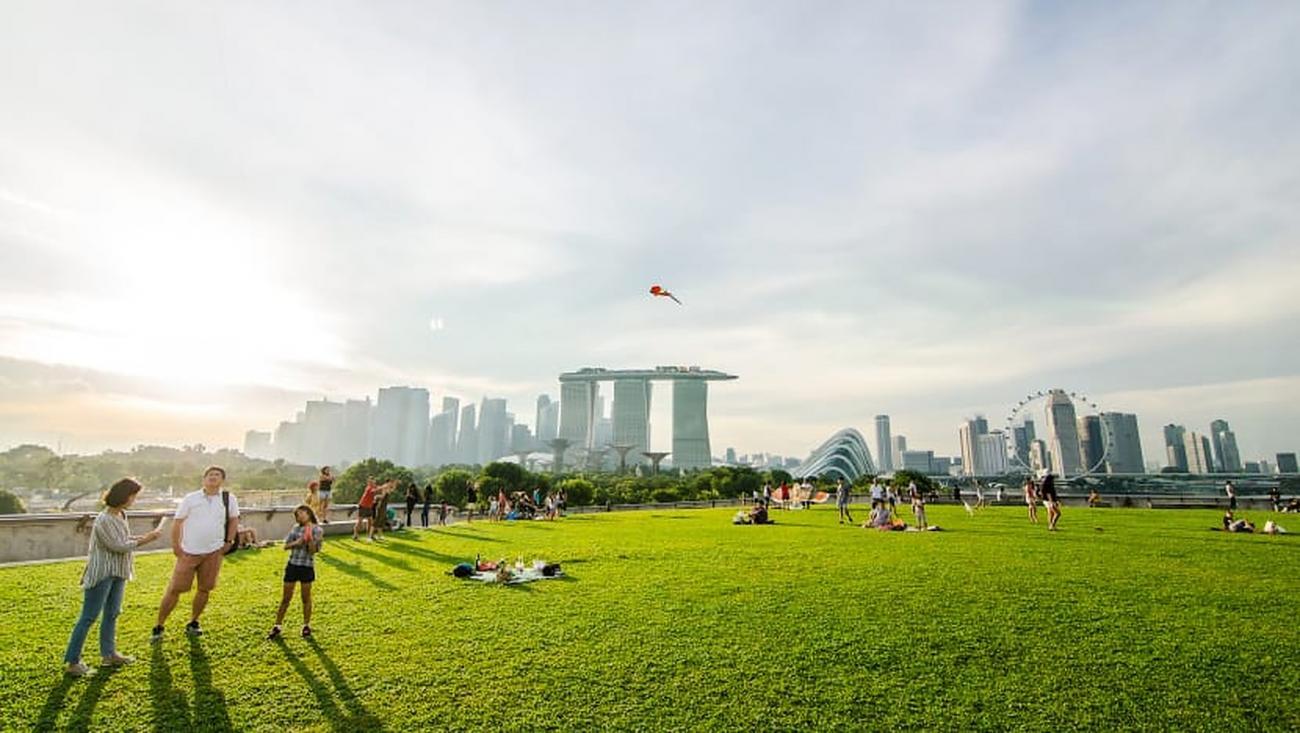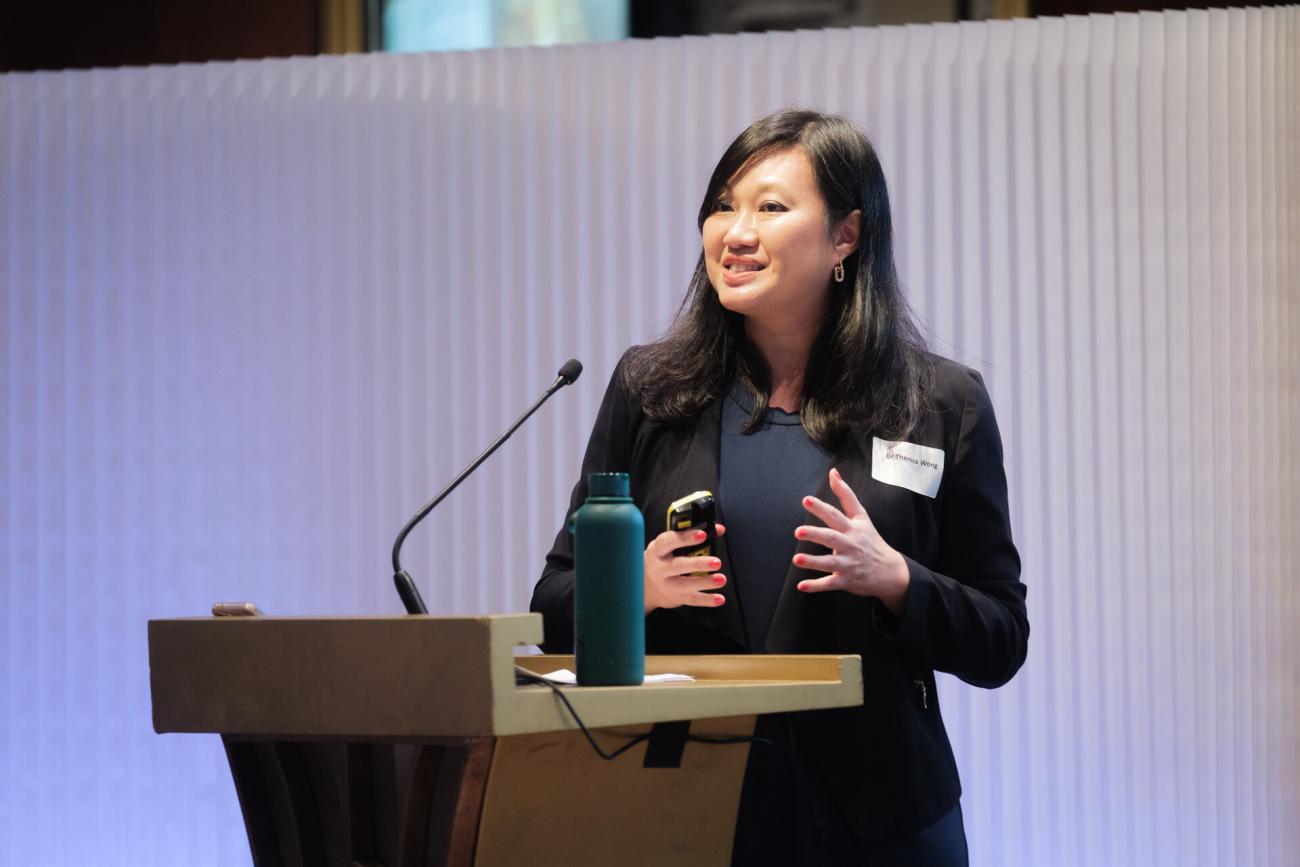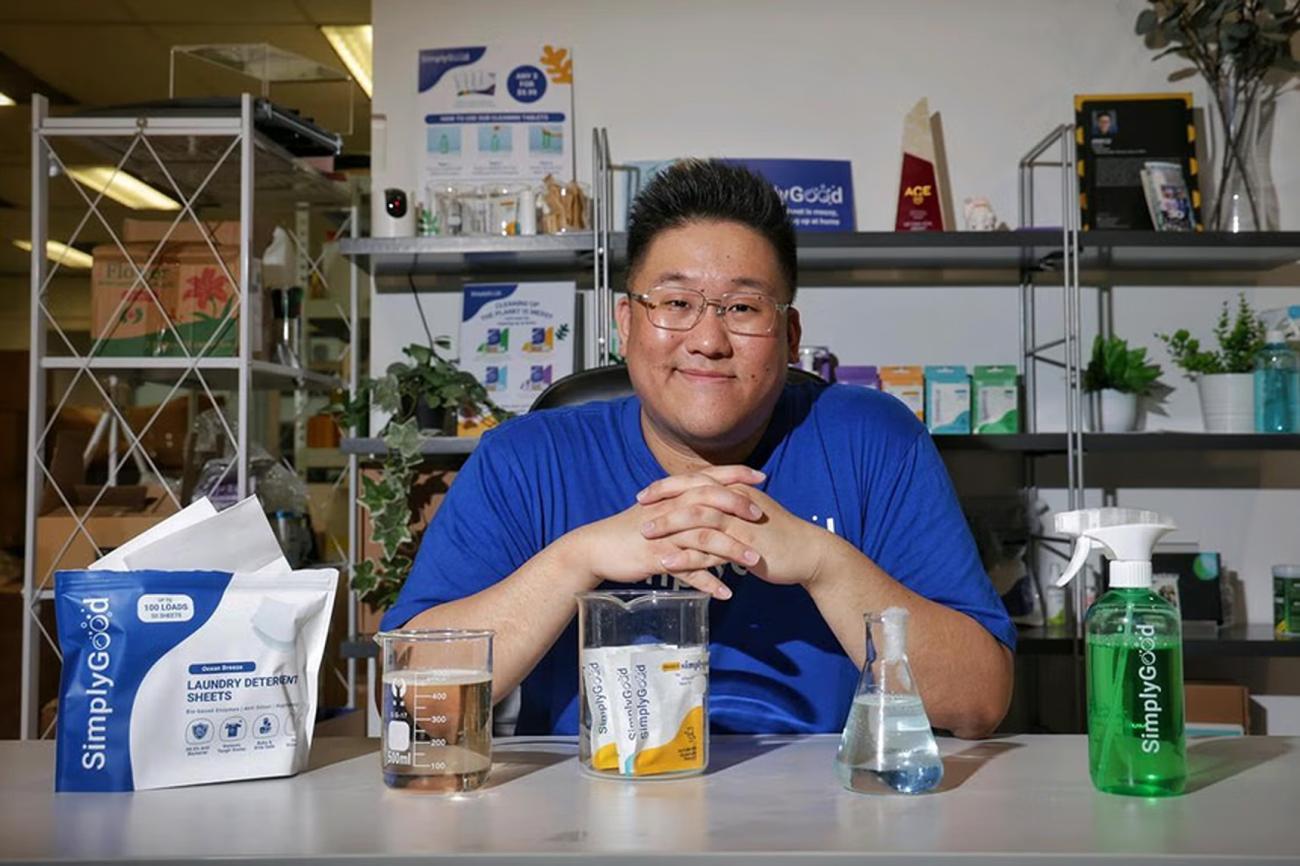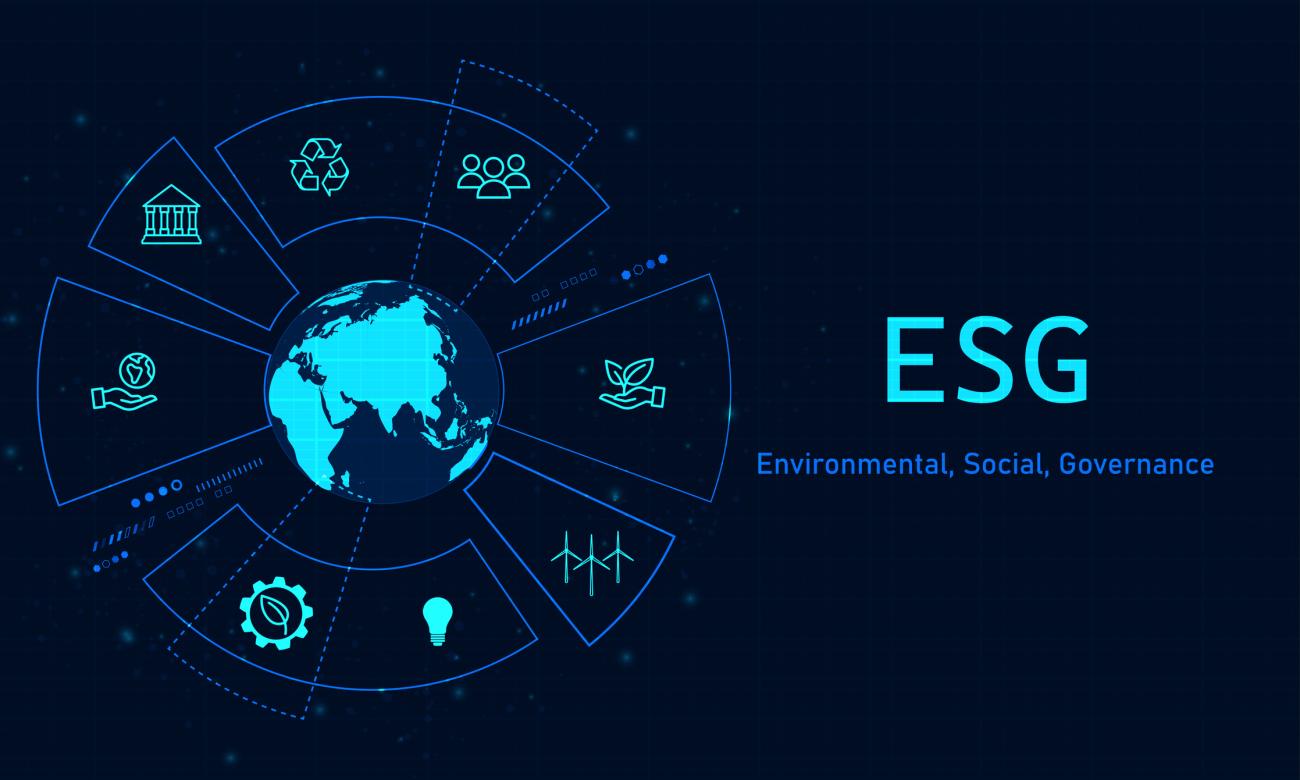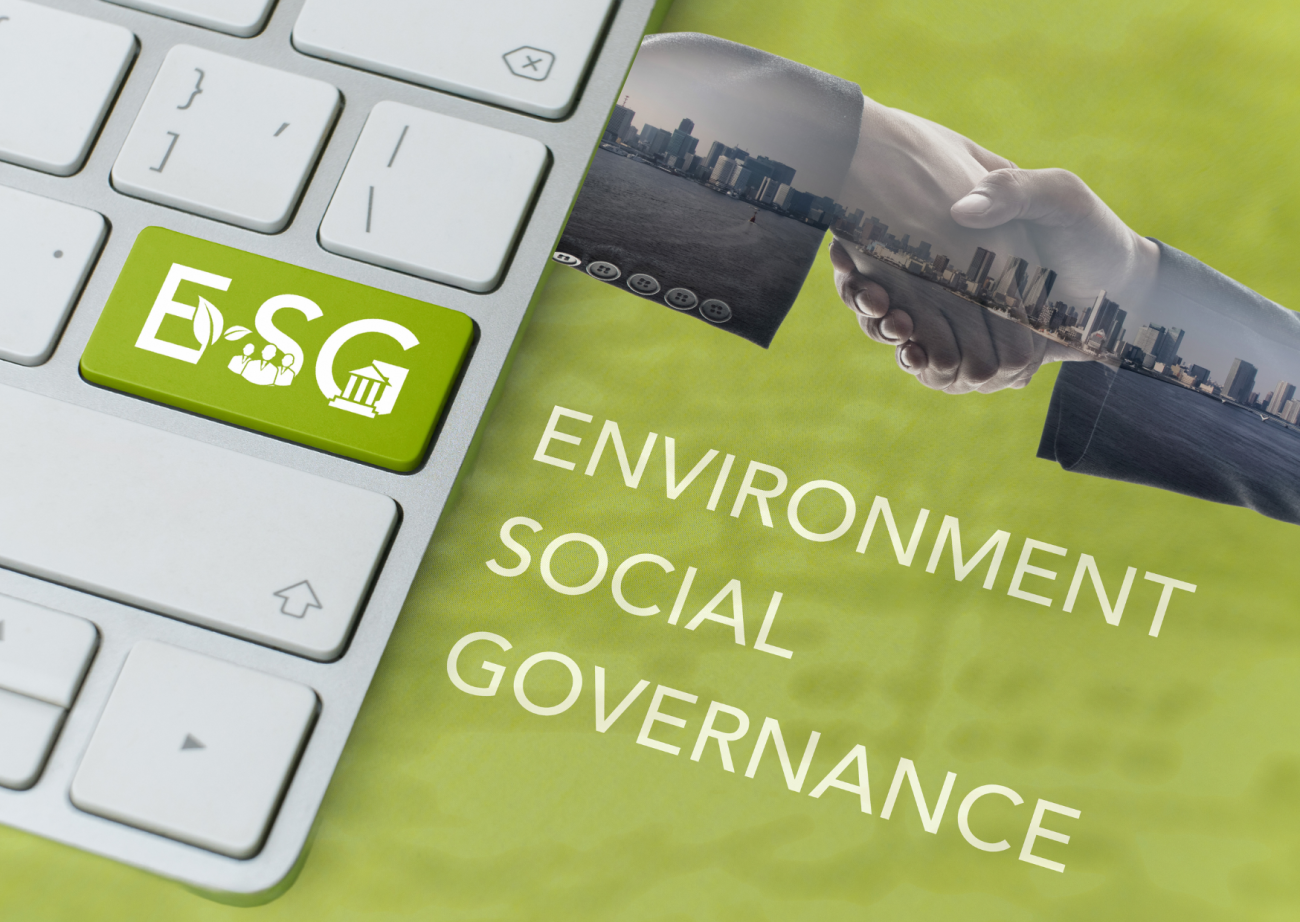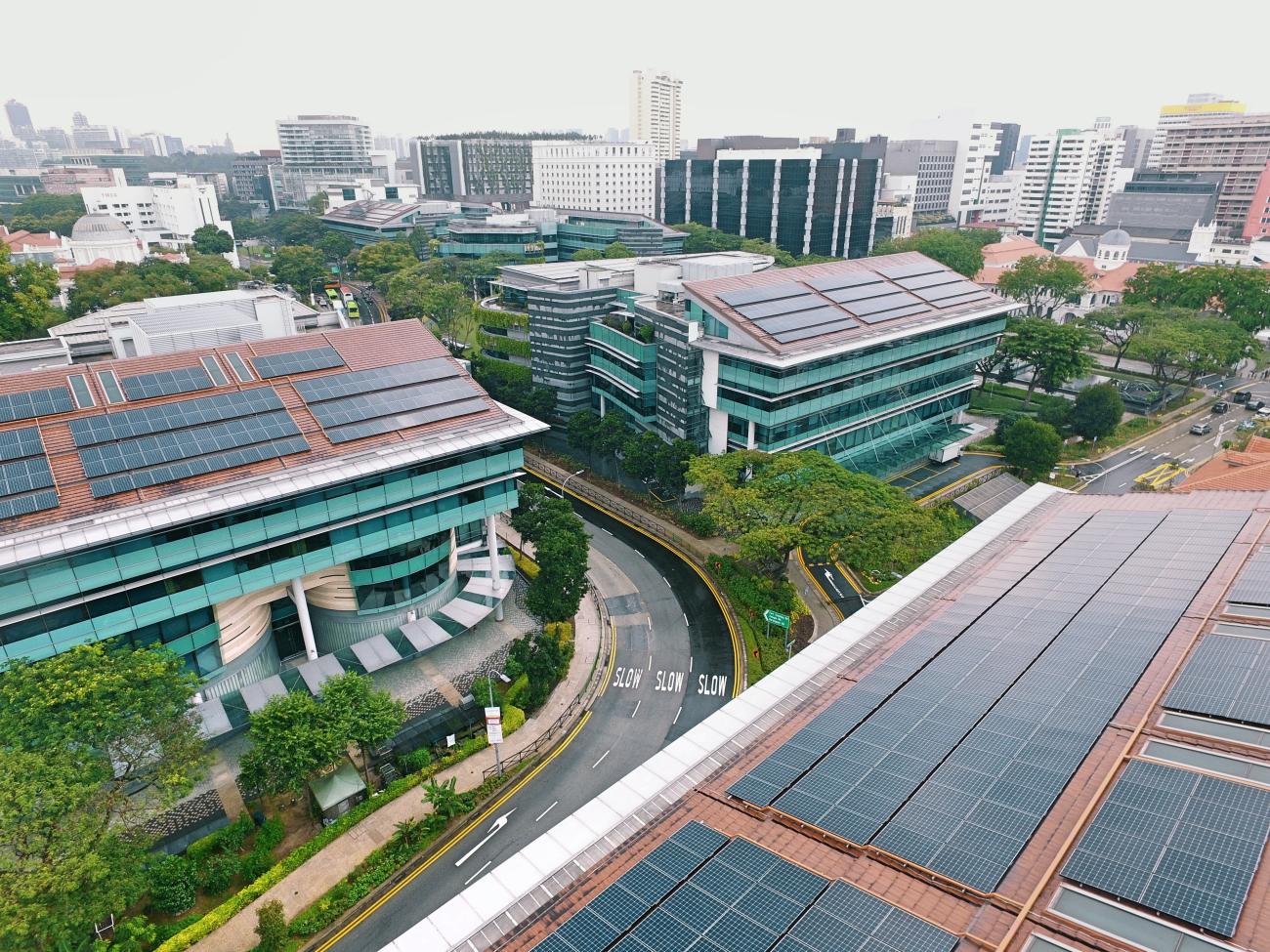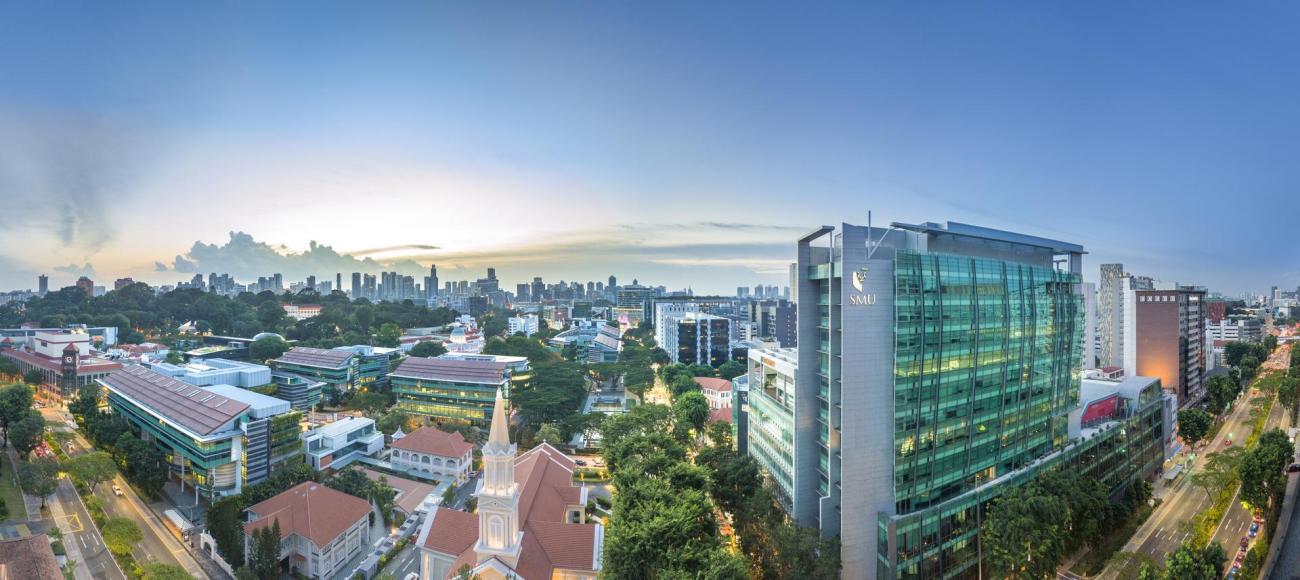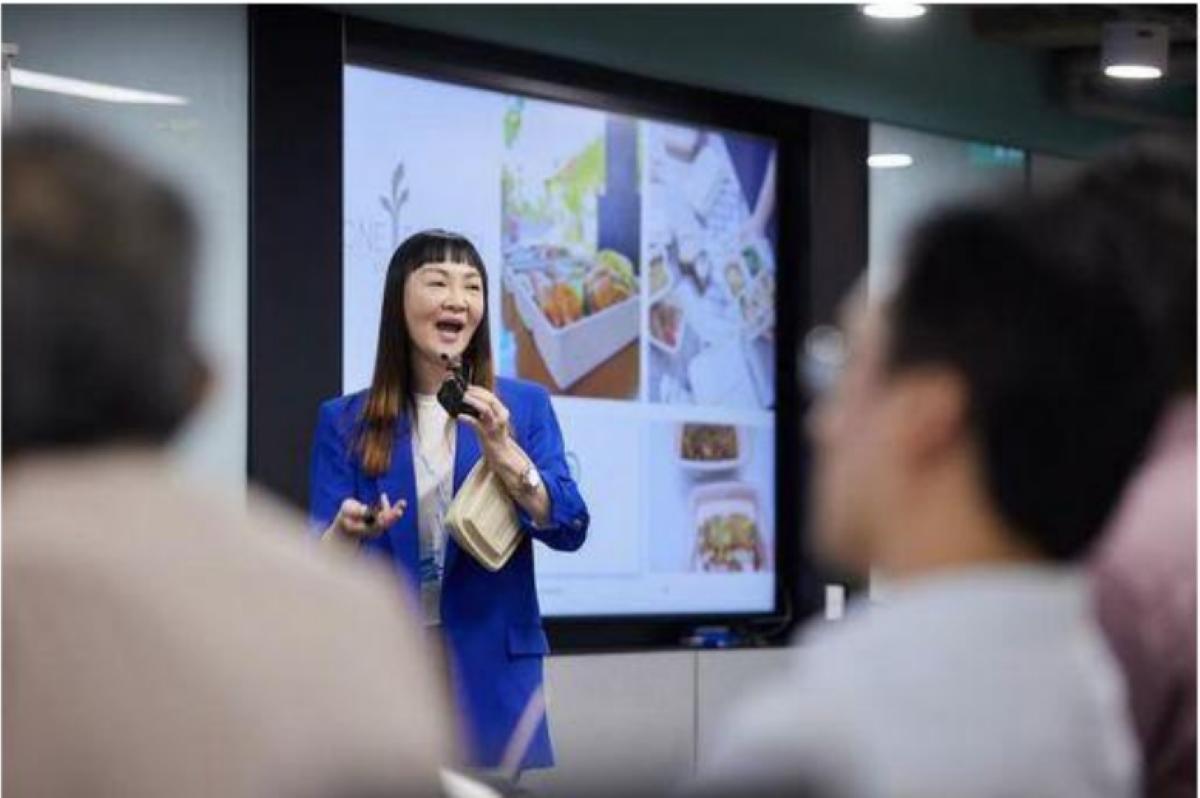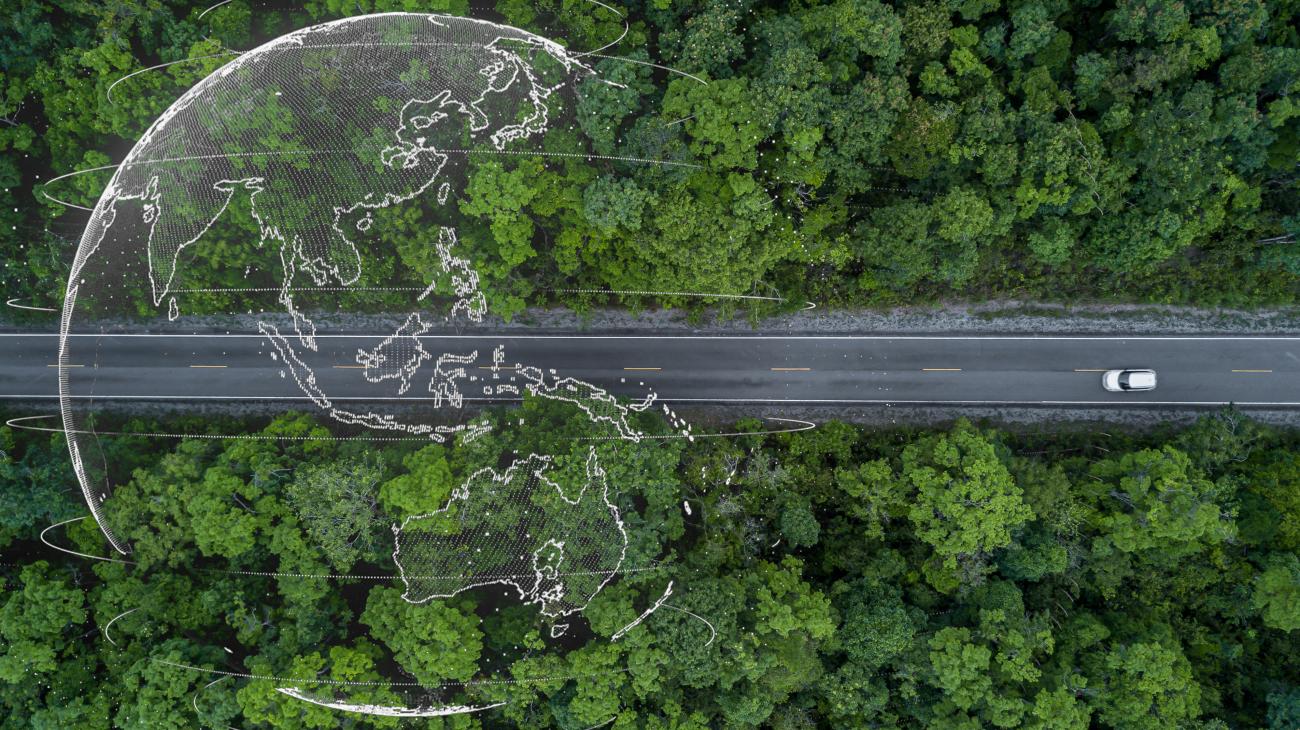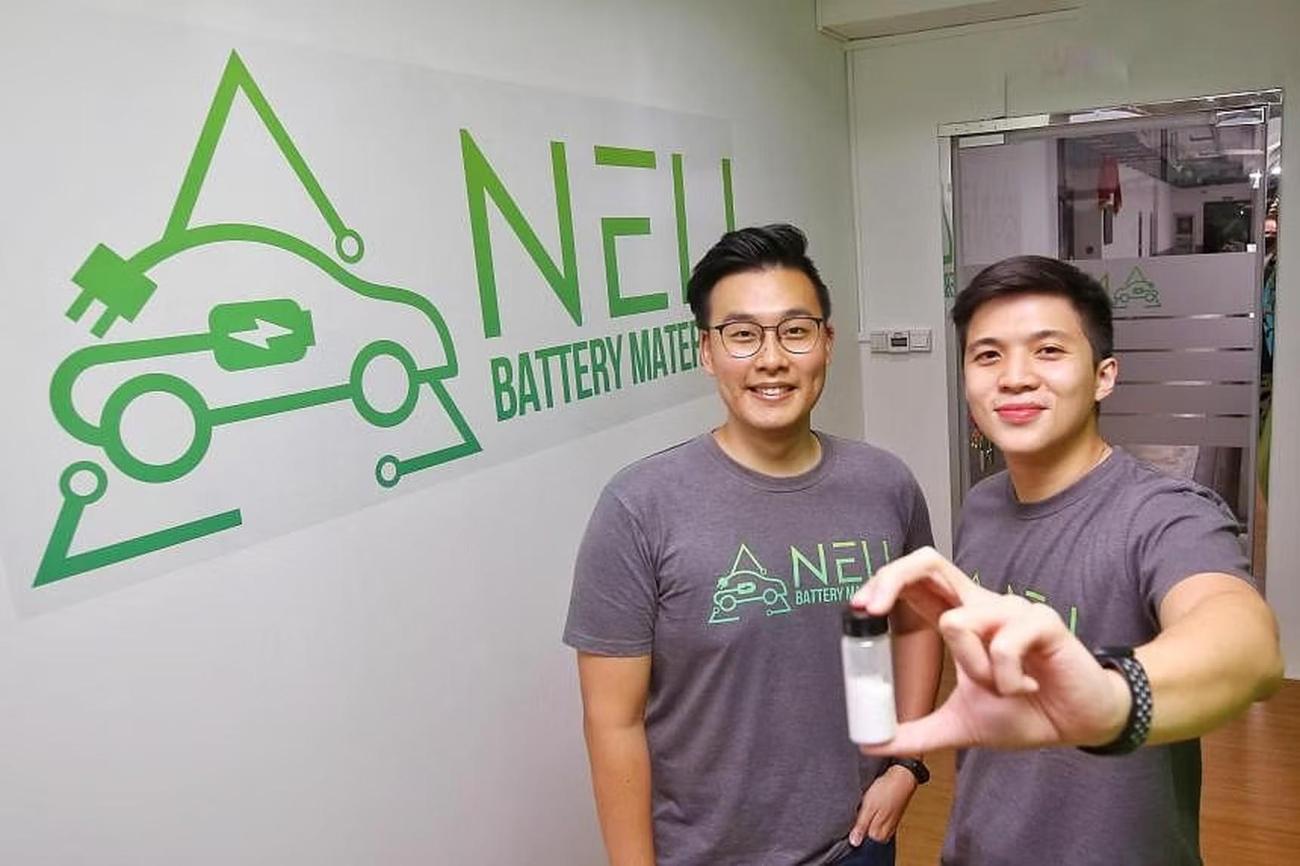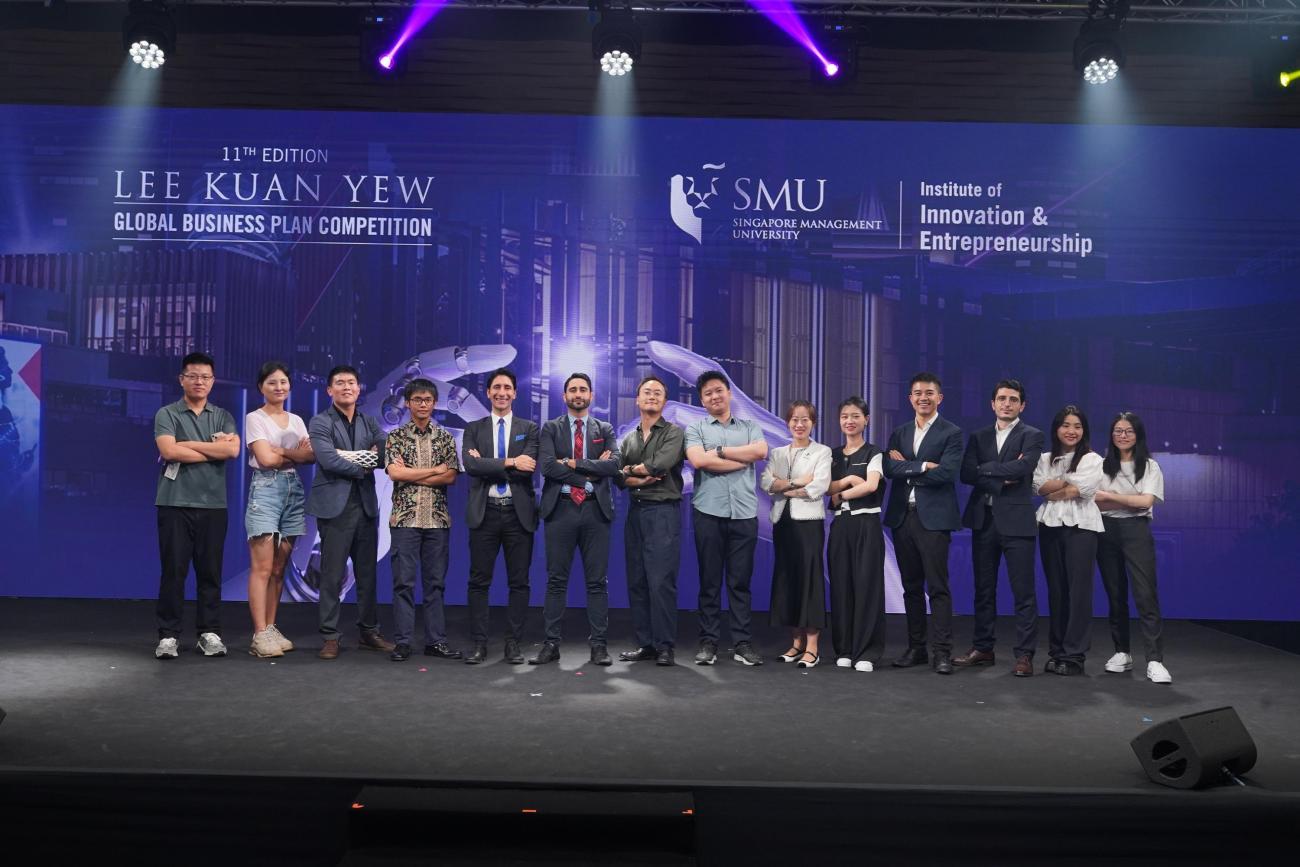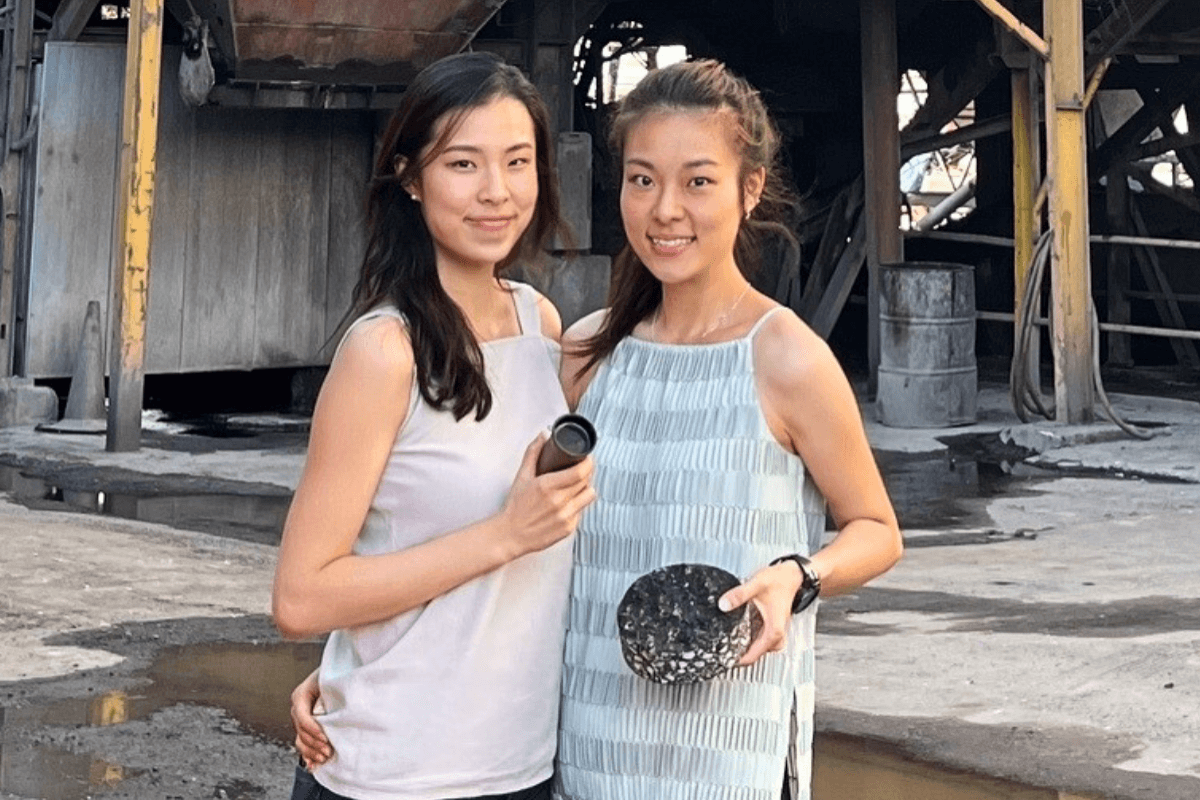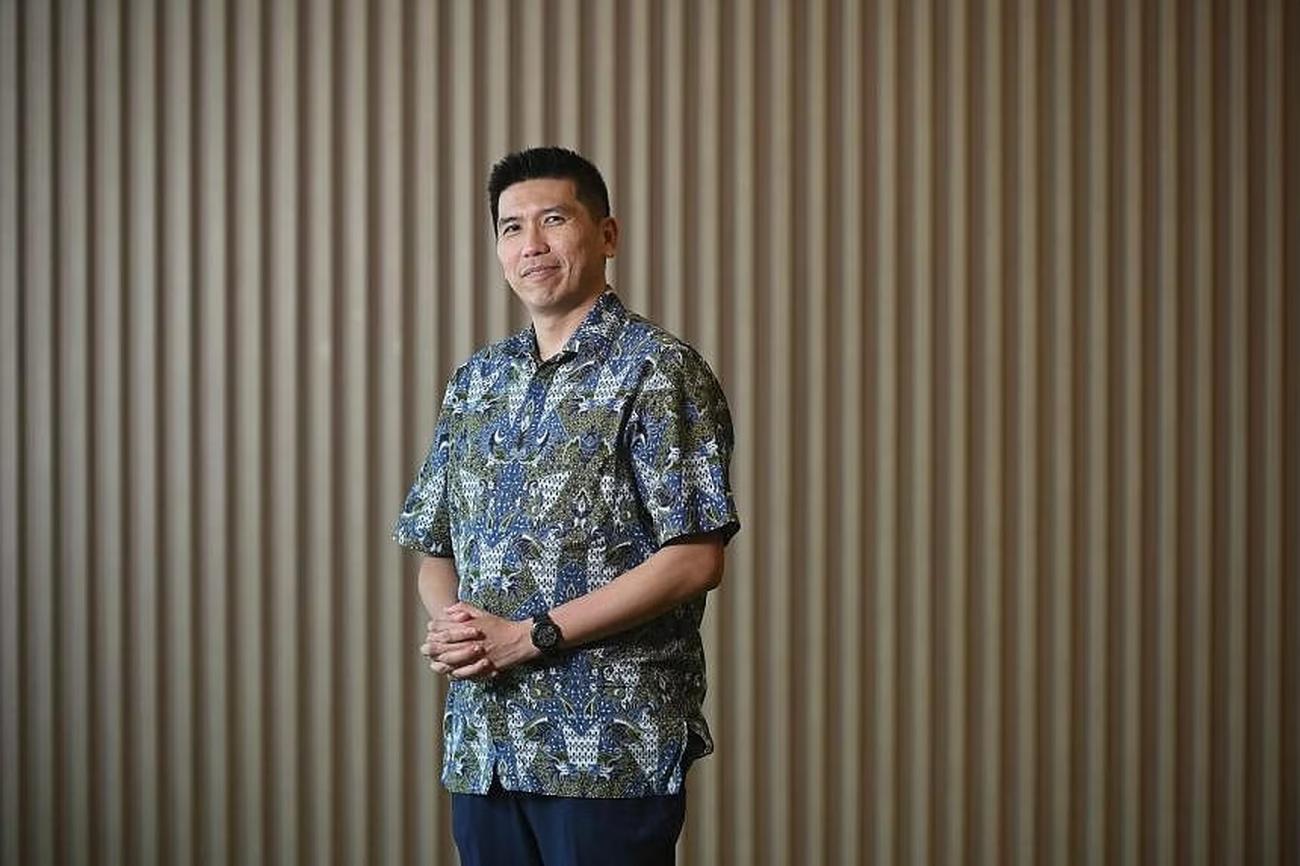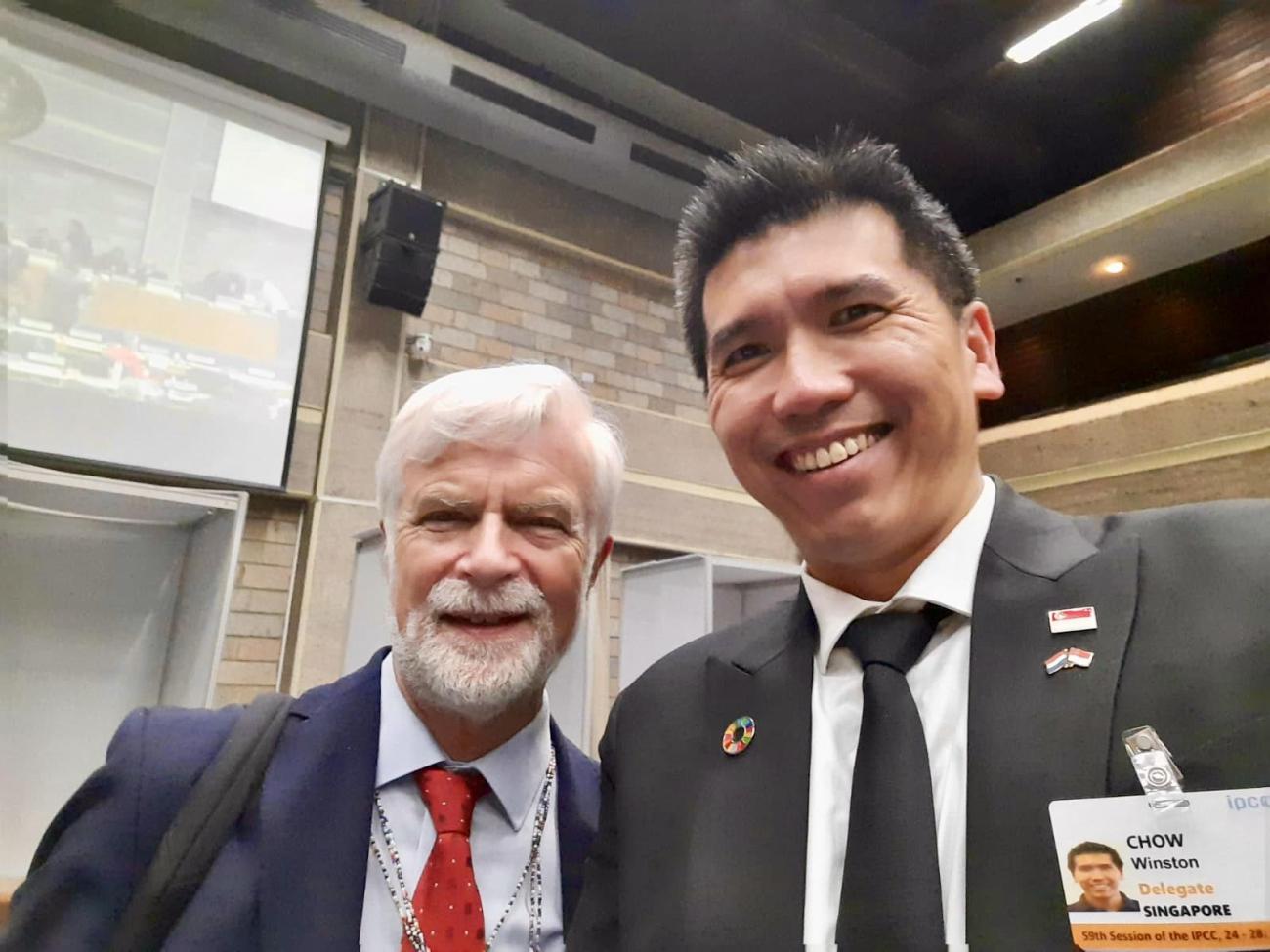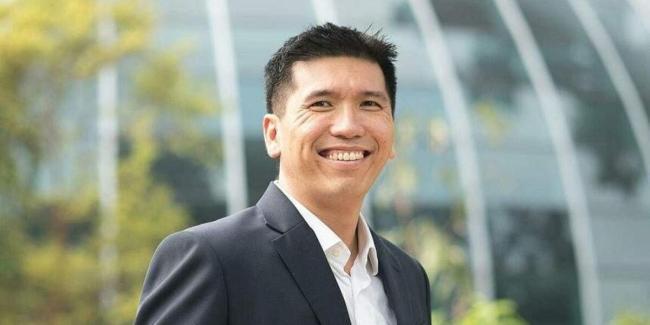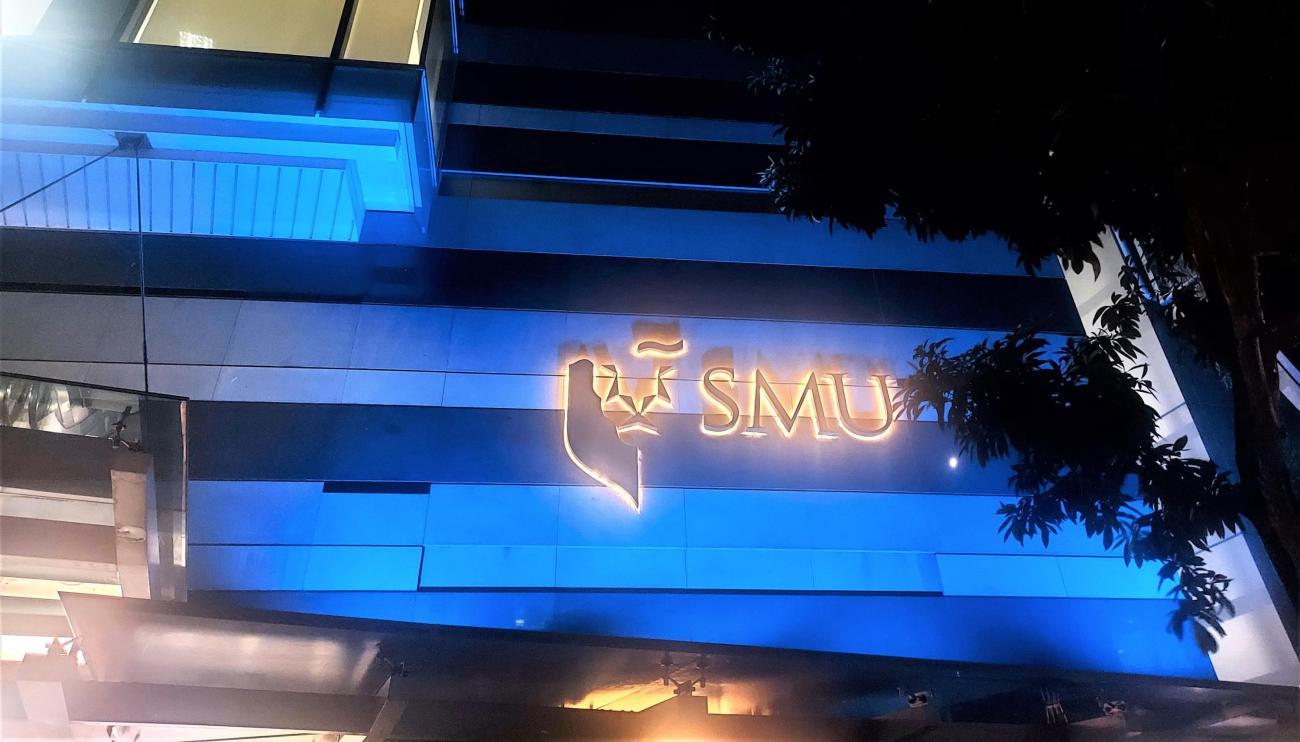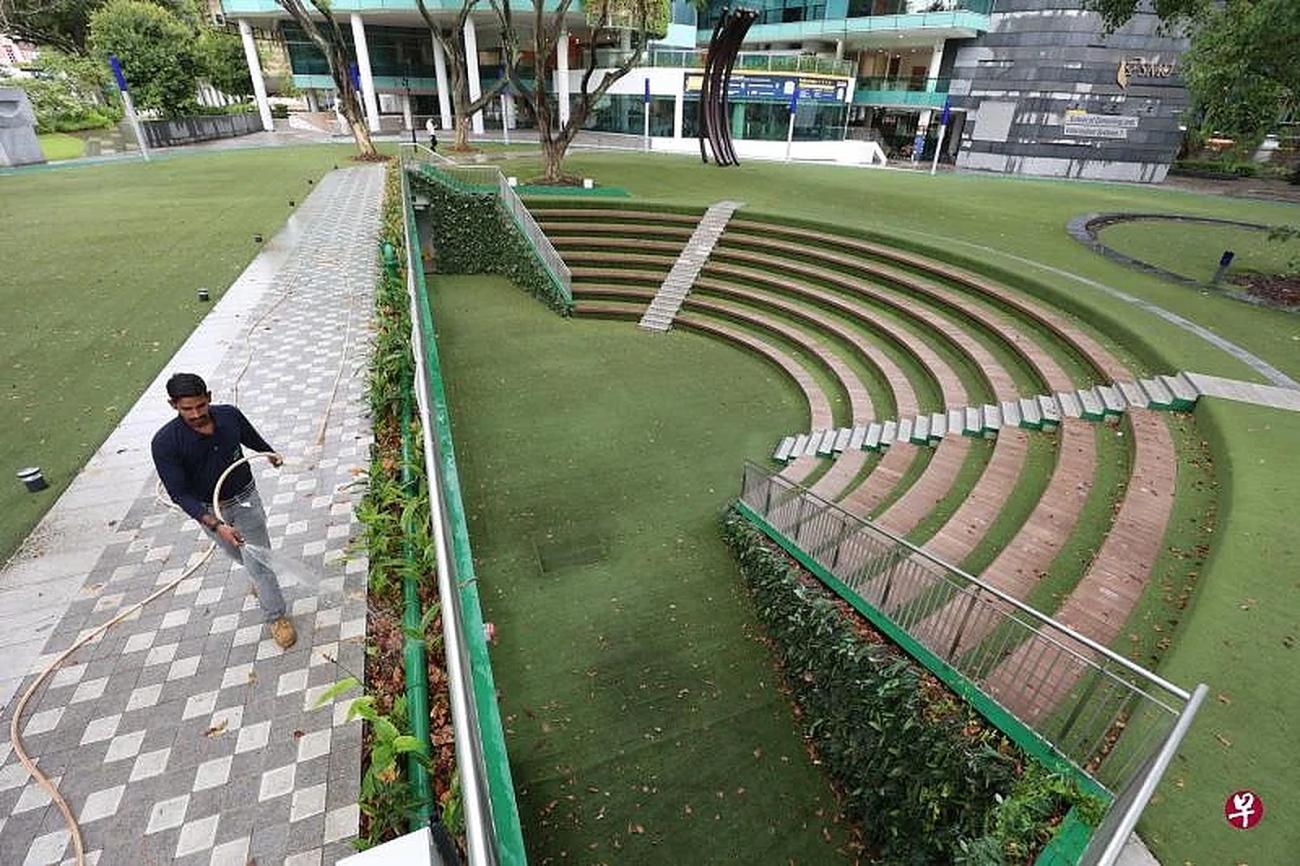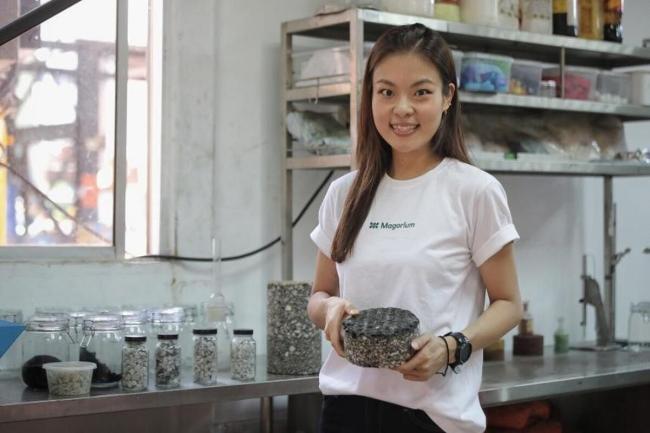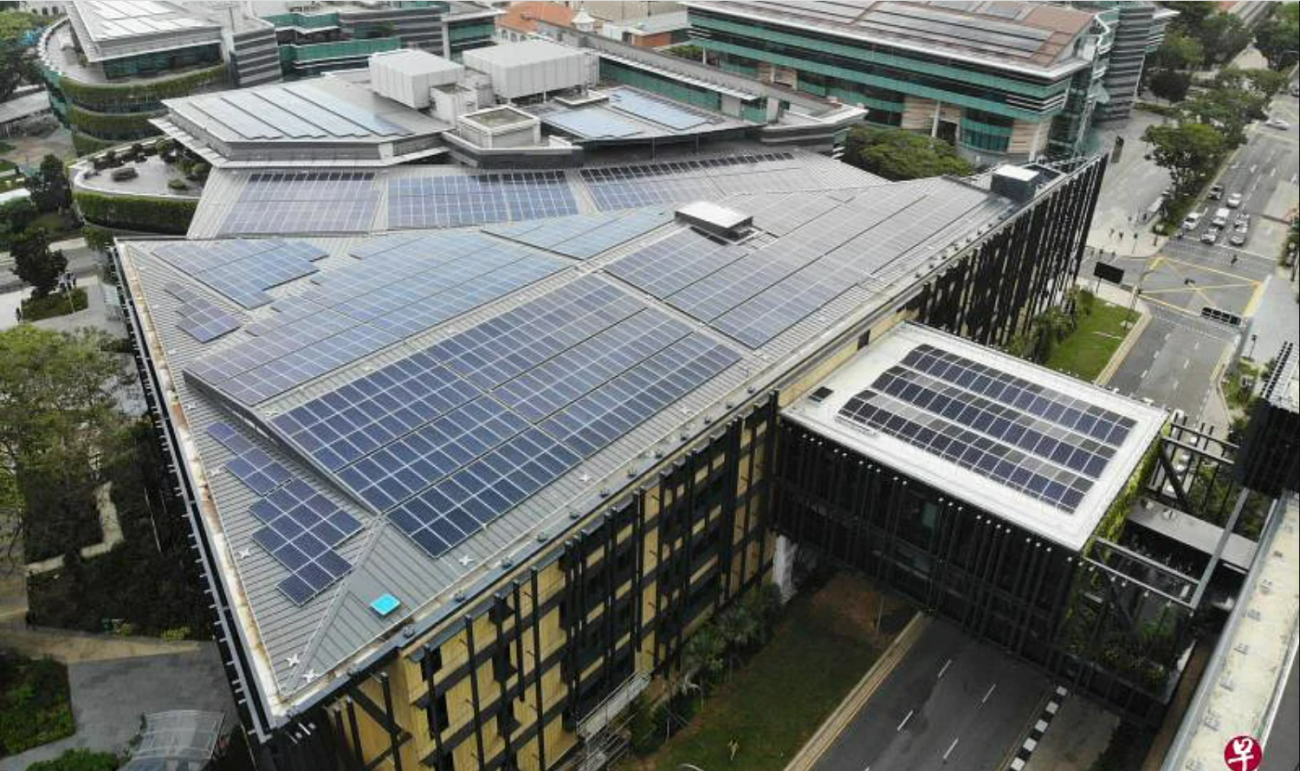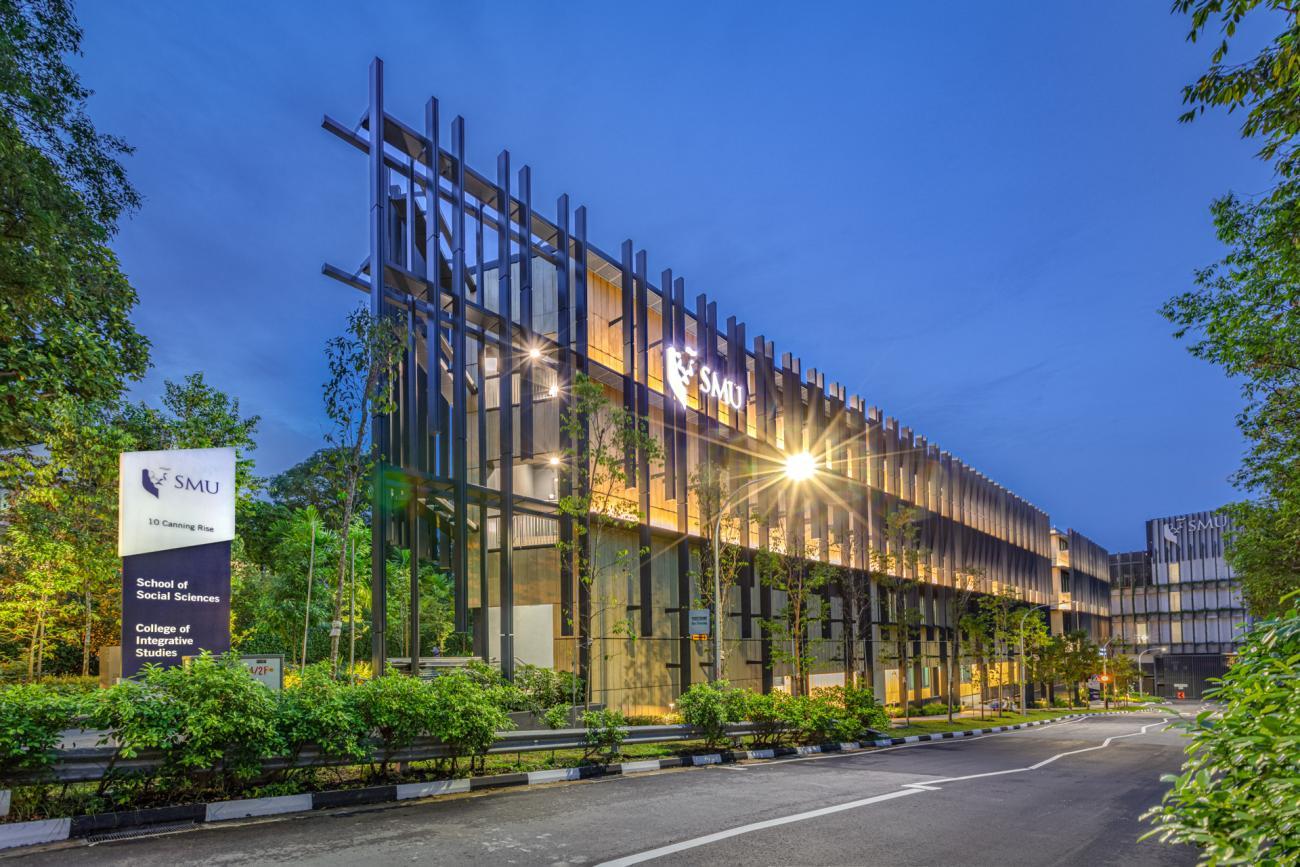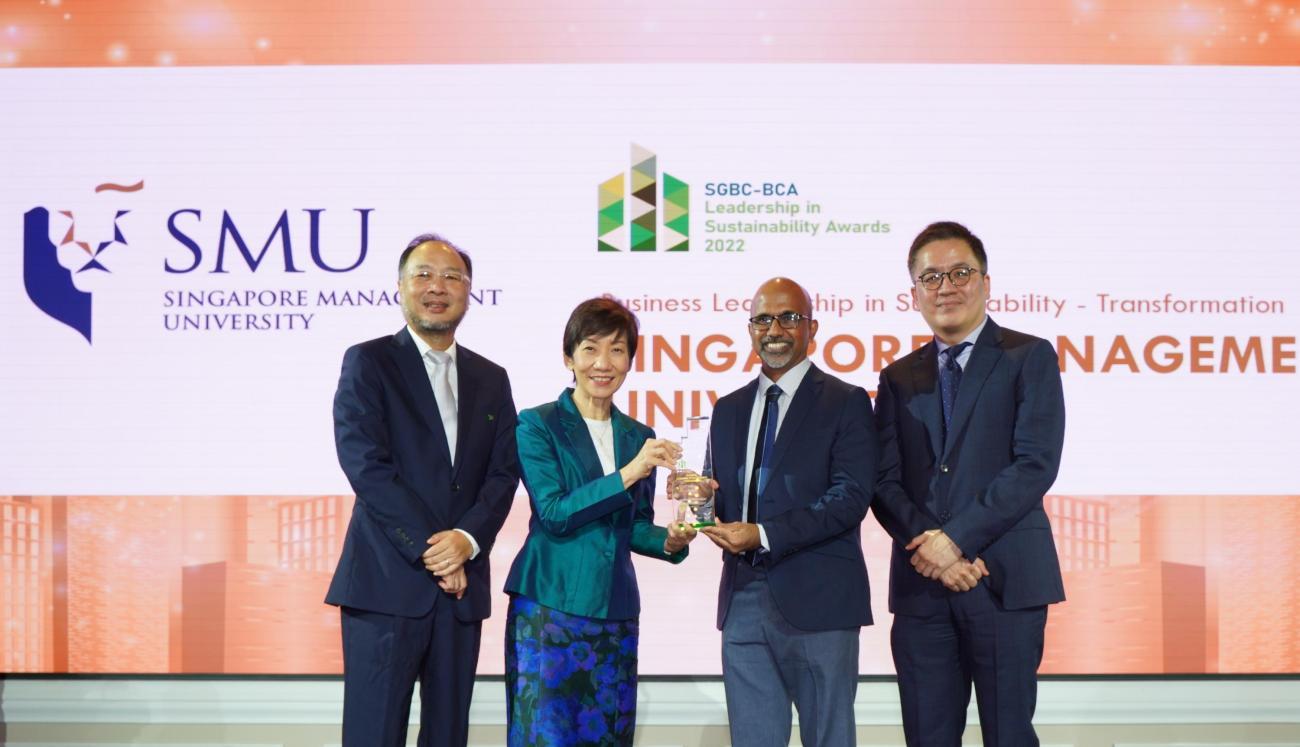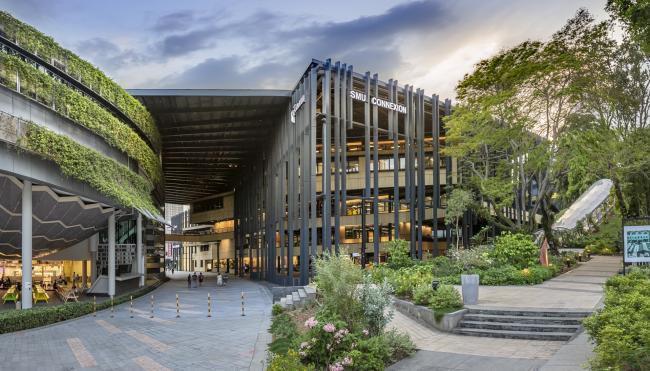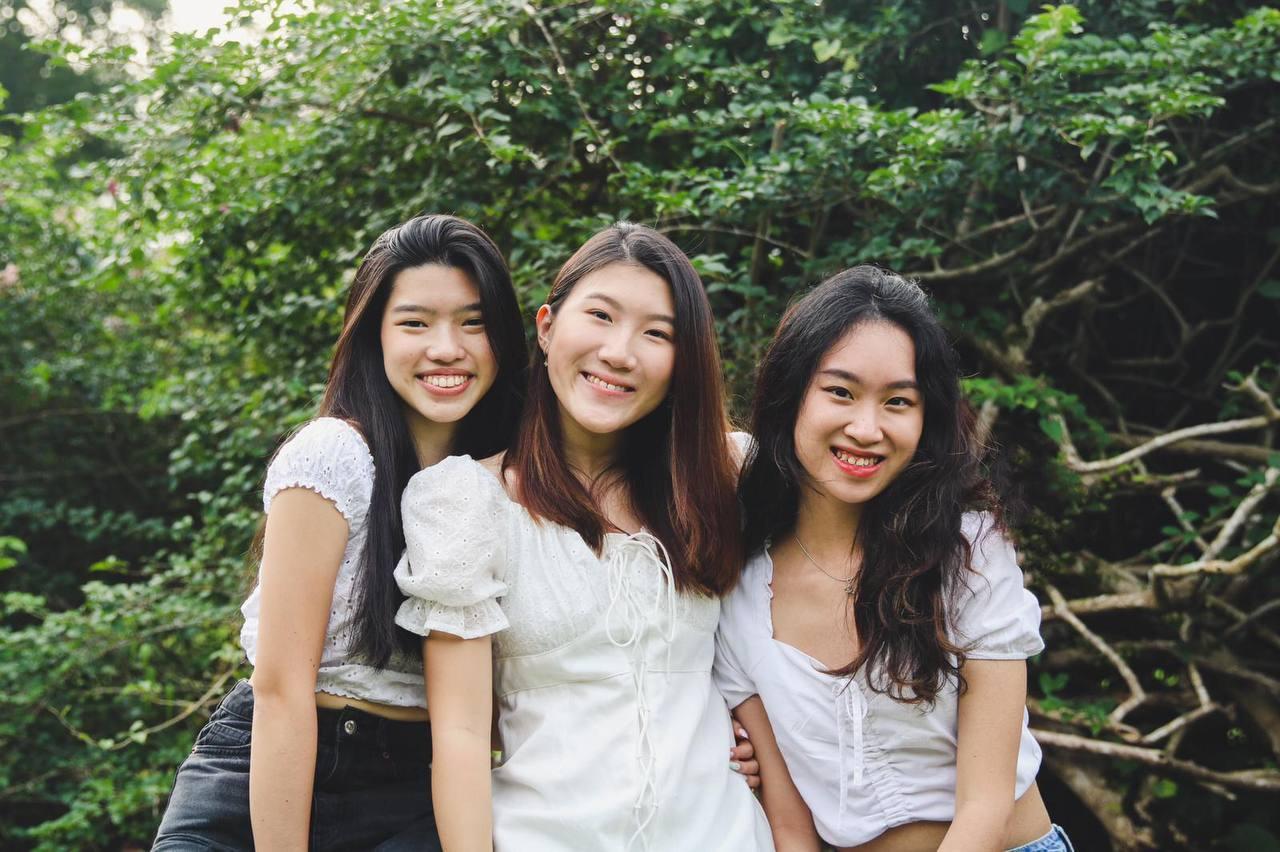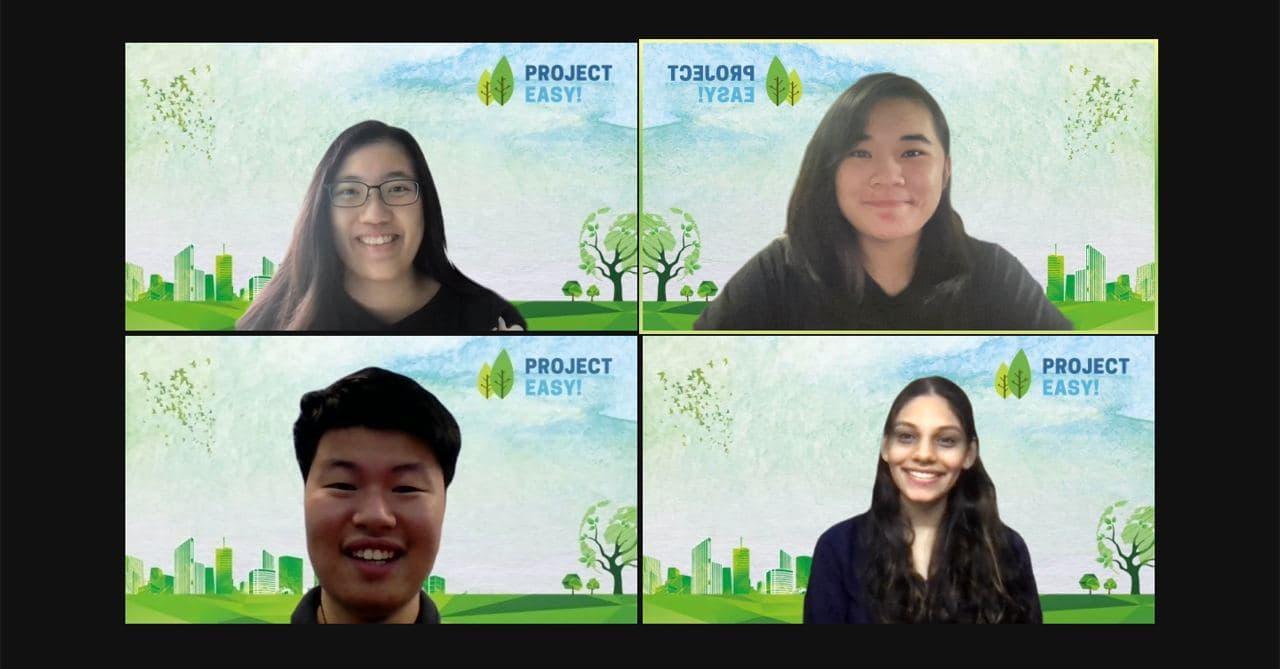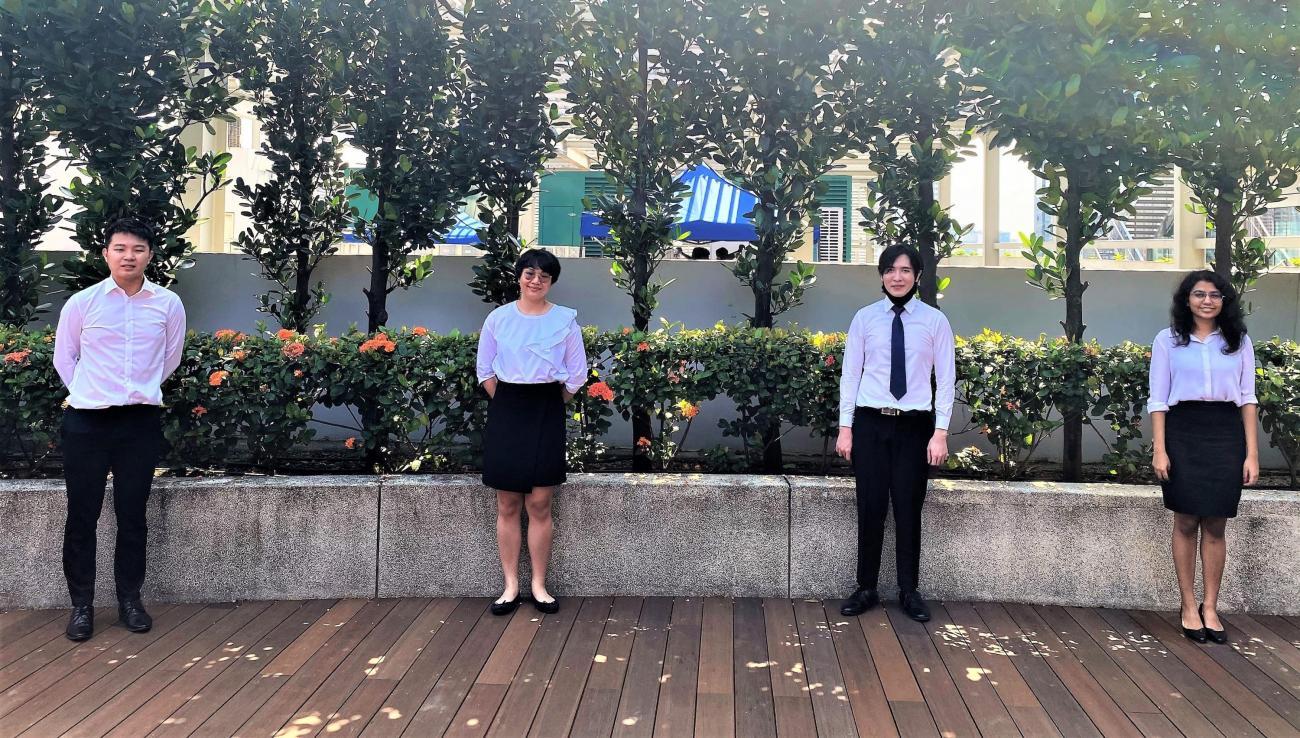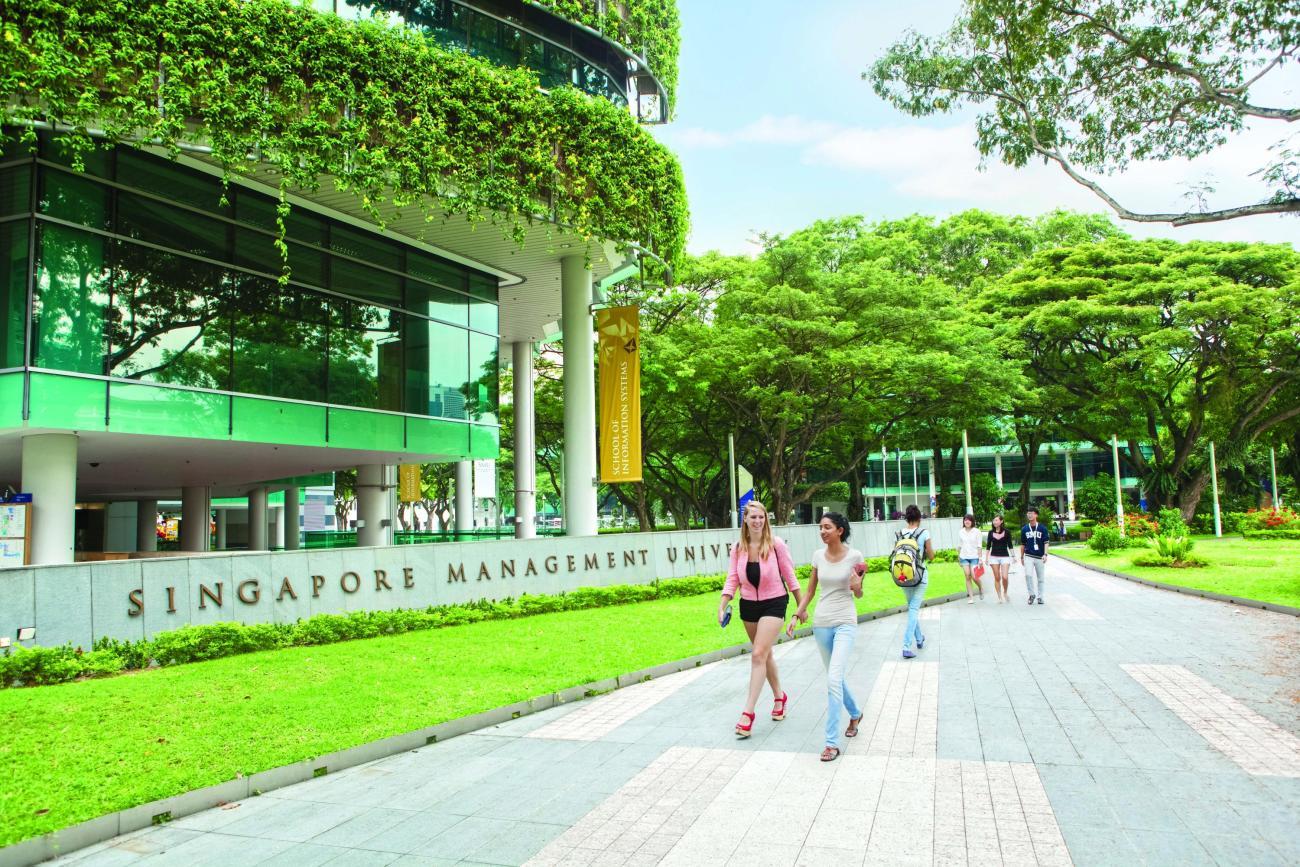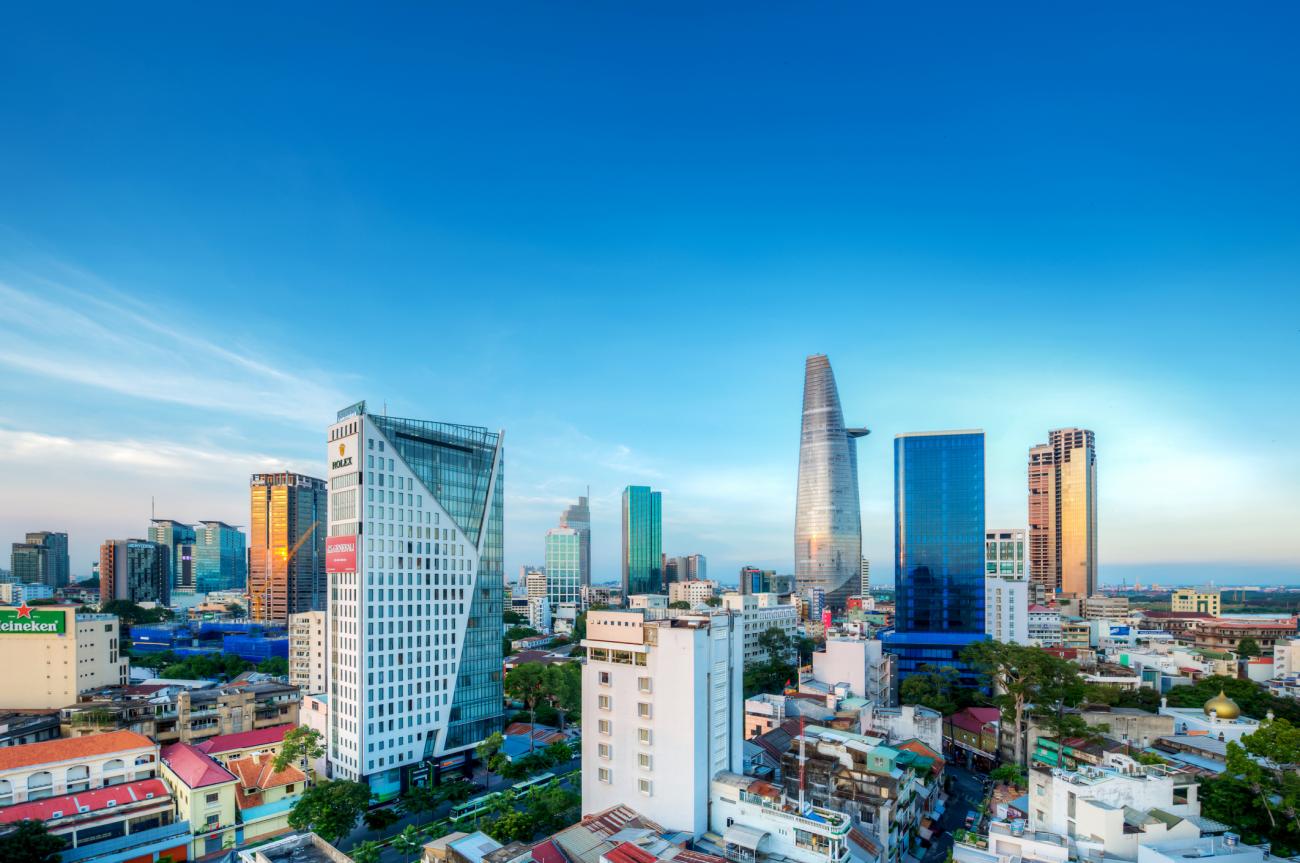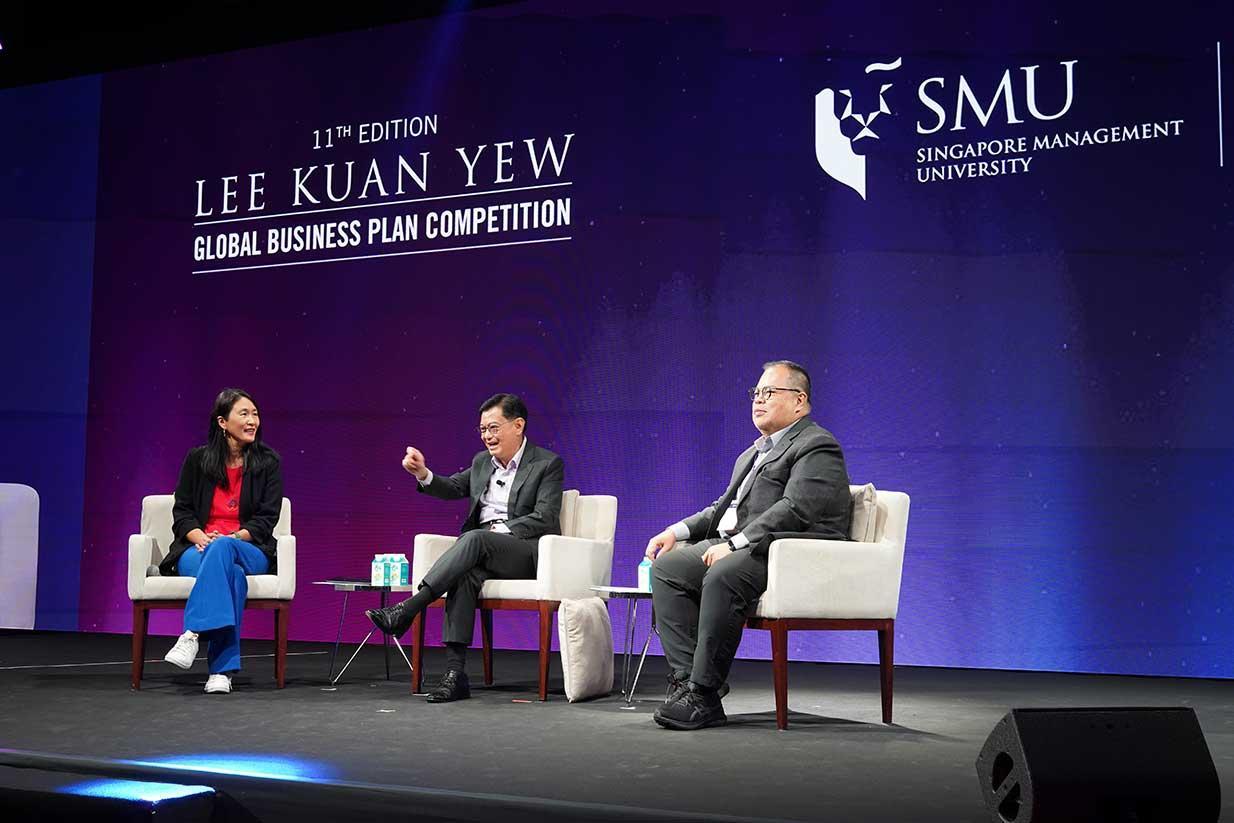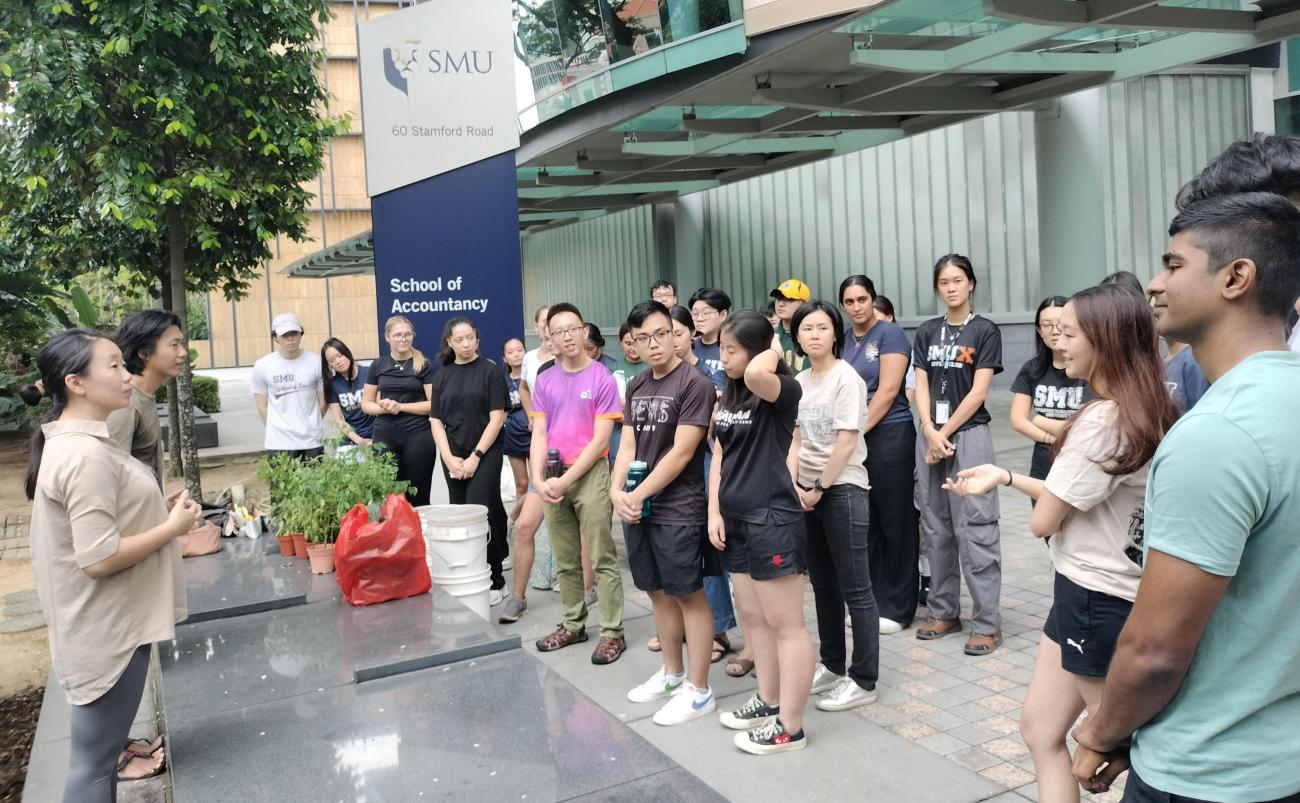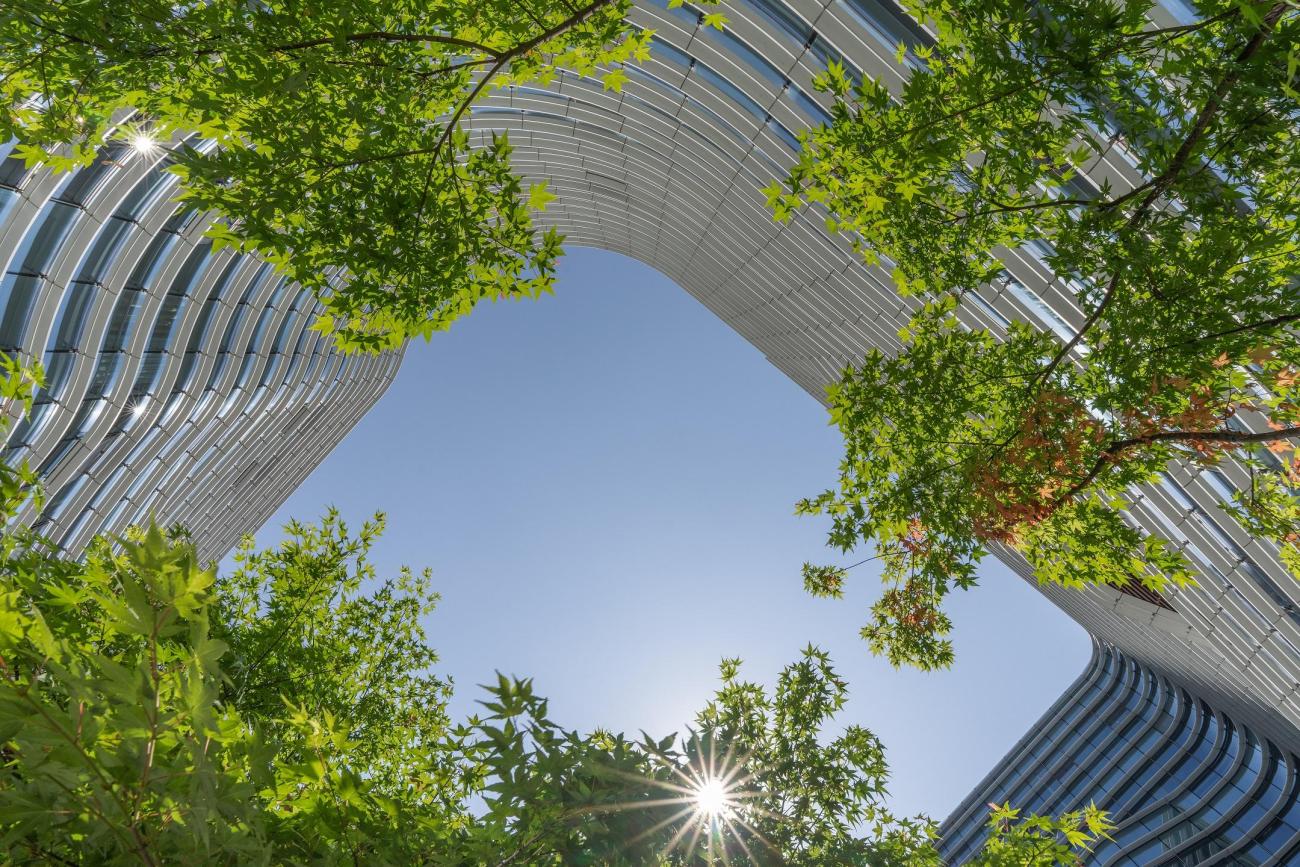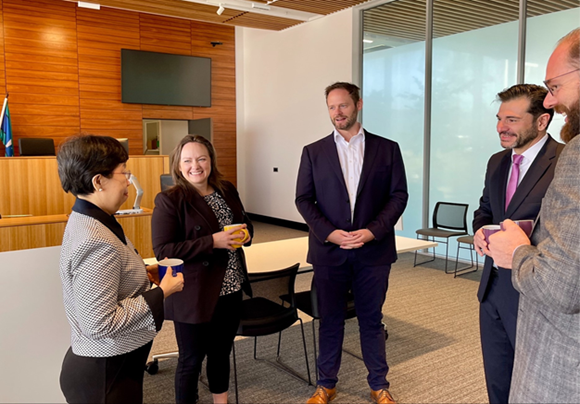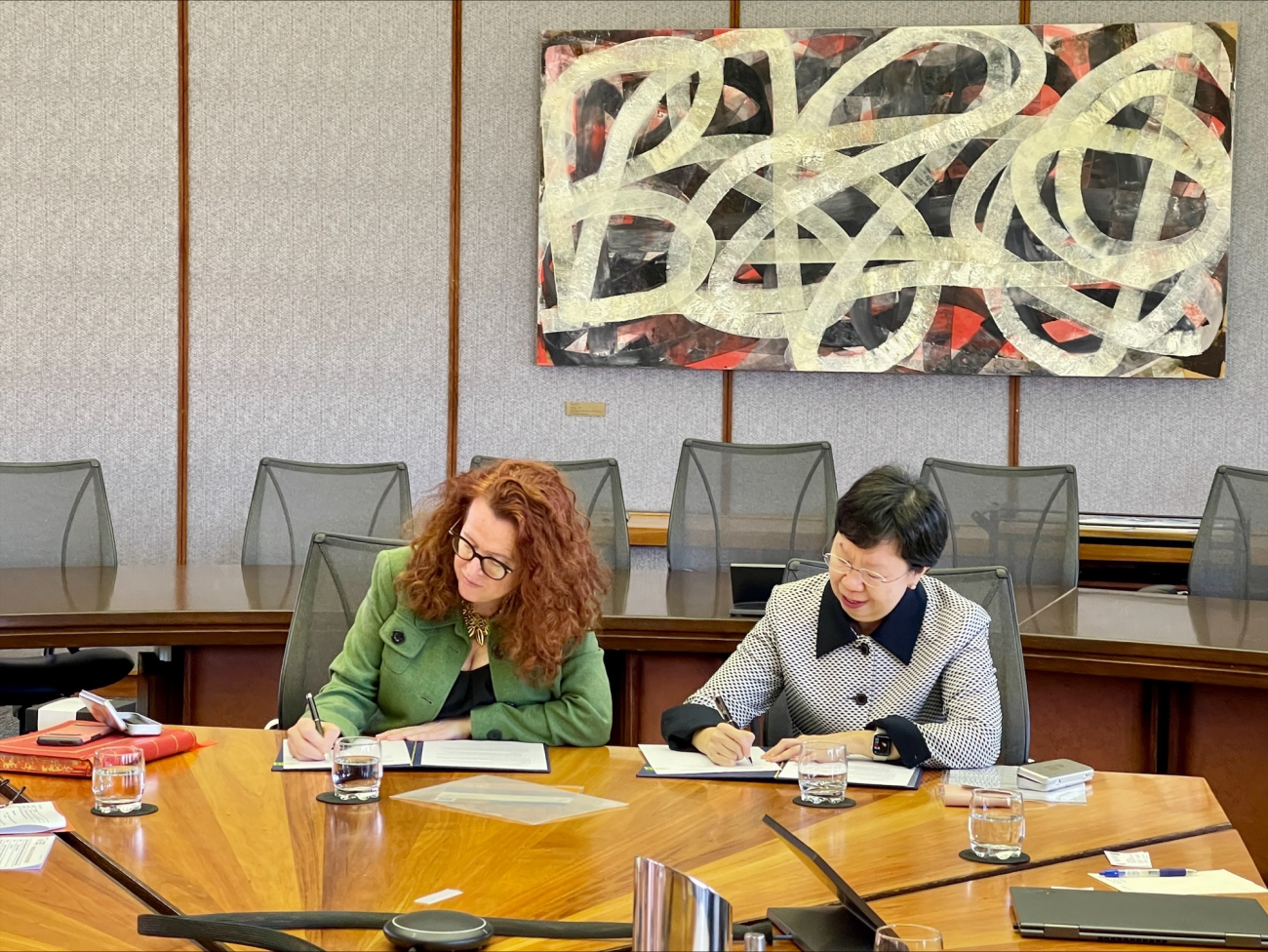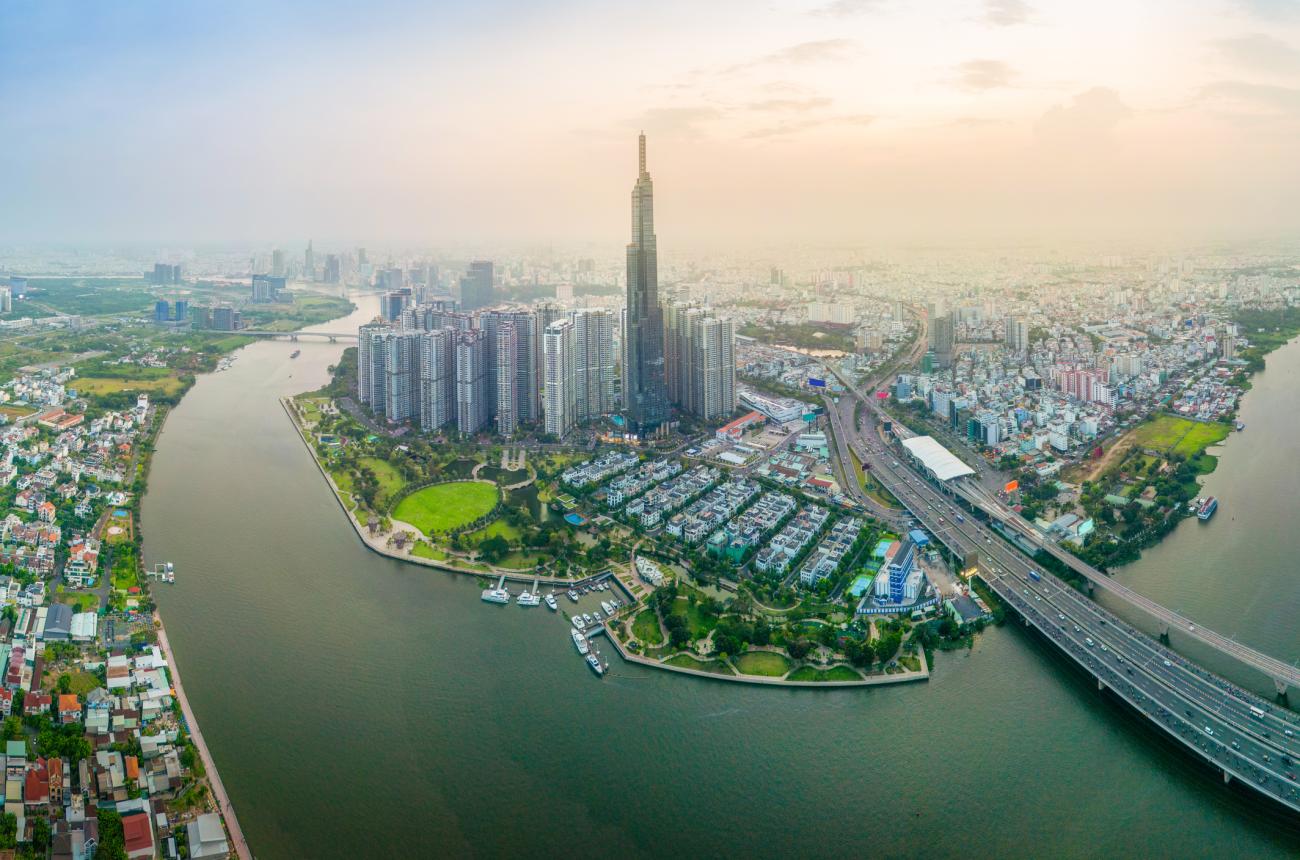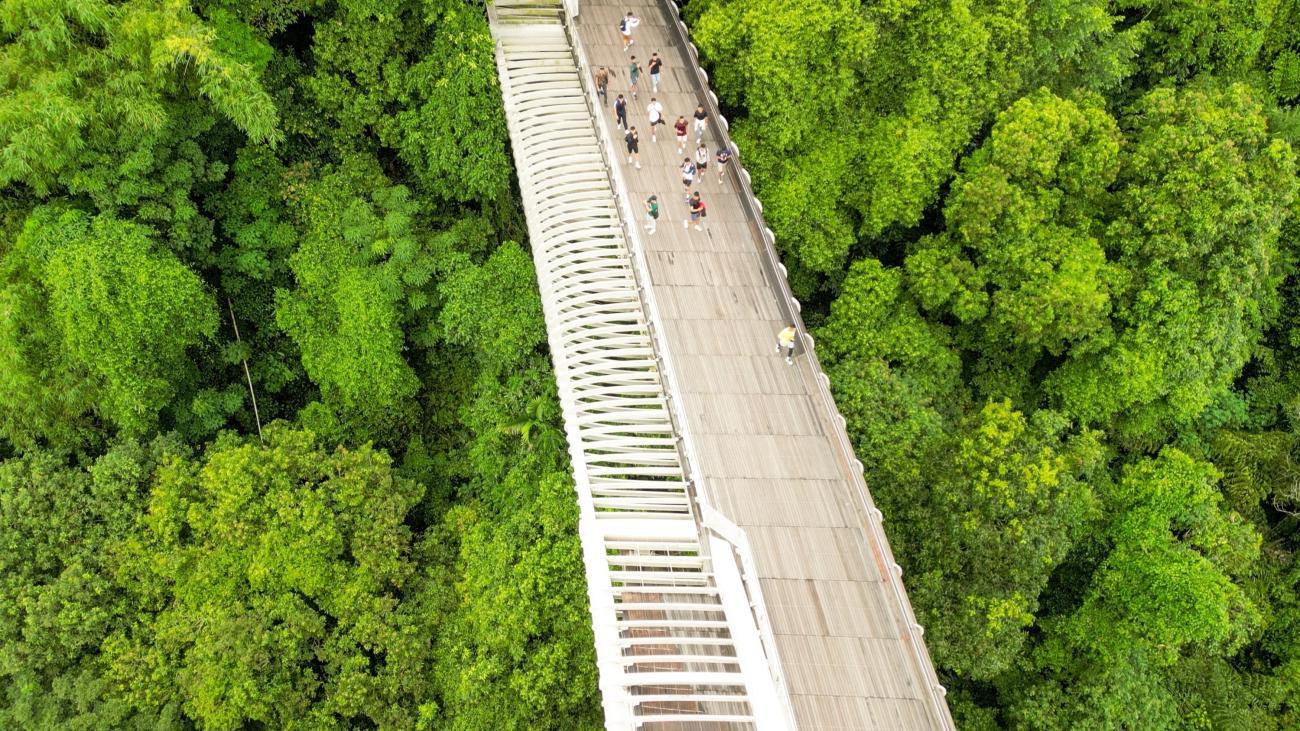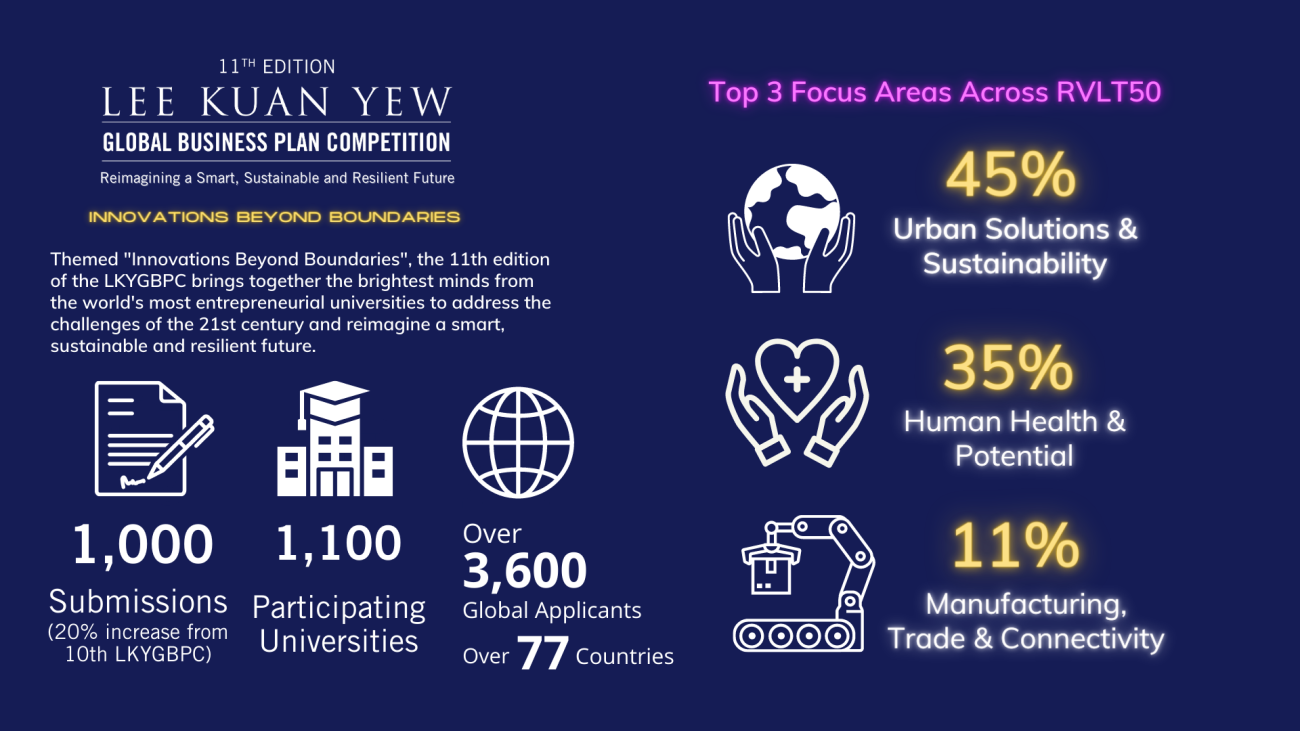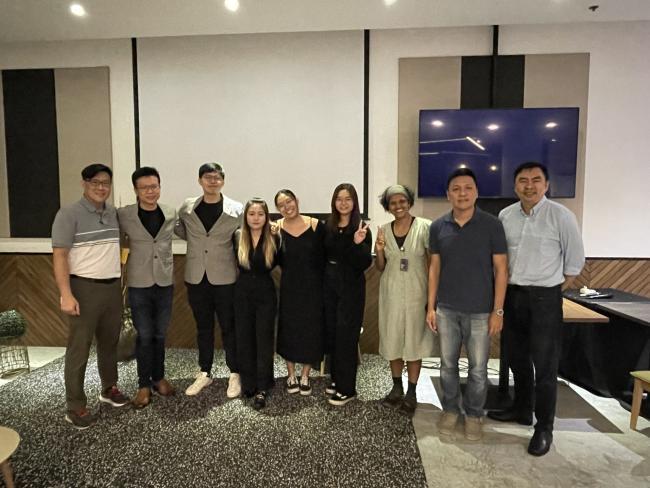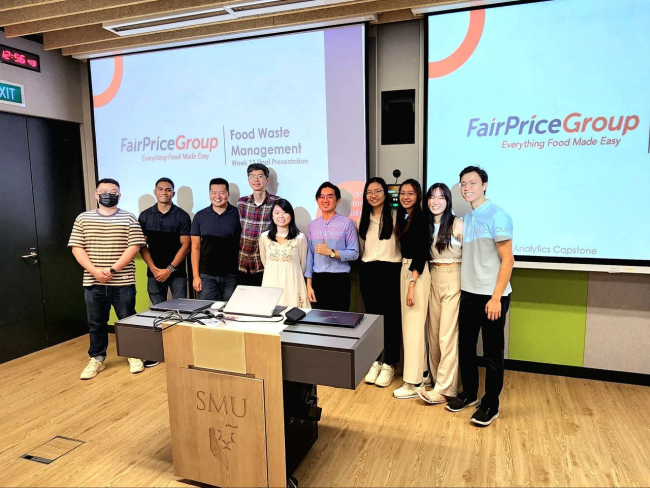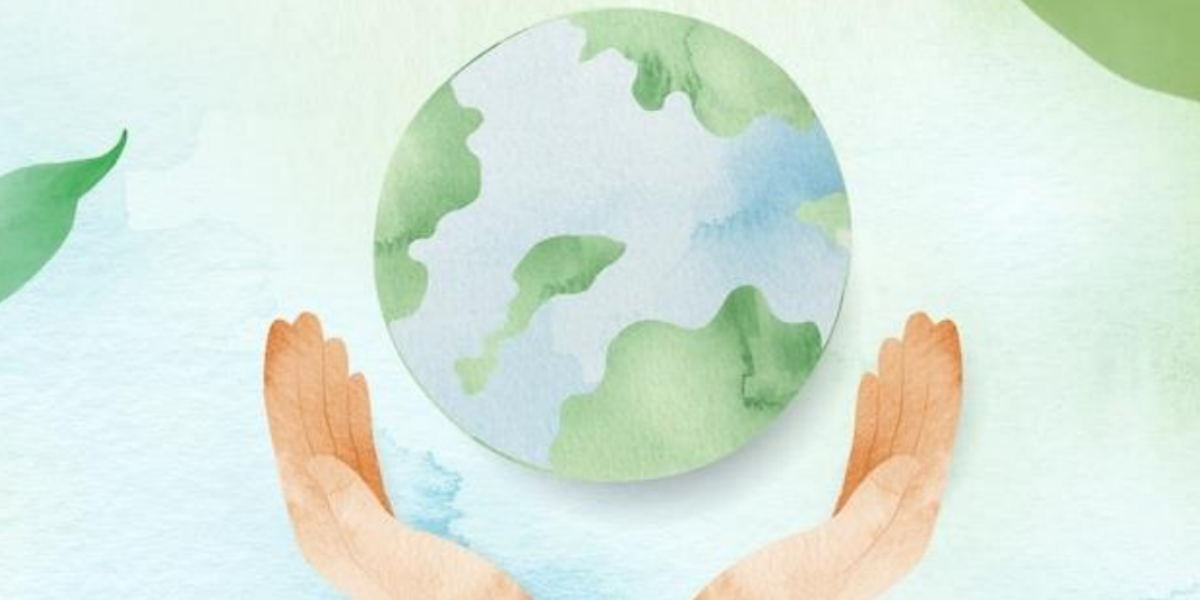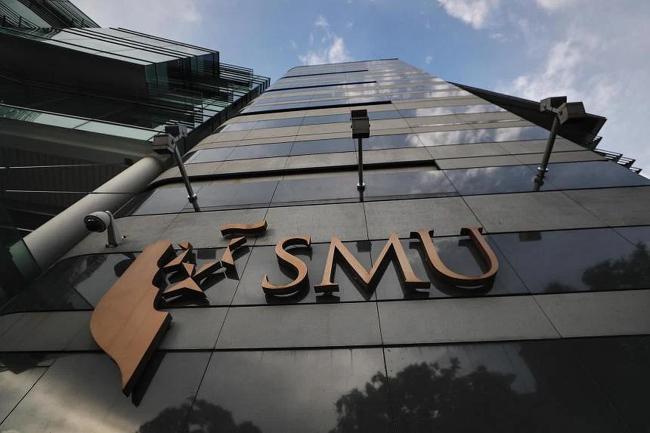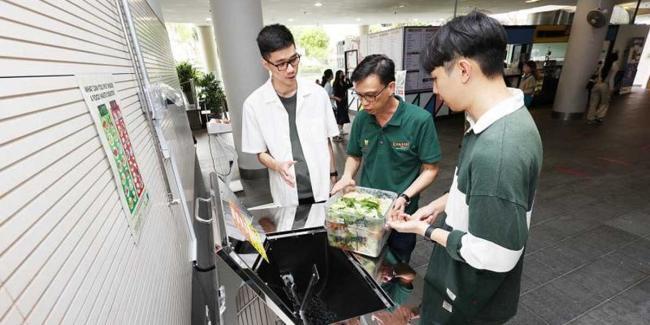Earth Day is celebrated on 22nd April every year, dedicated to awareness about various environmental challenges that face our planet. Since 2006, SMU has embarked on a journey towards being a thought leader and solution partner in managing environmental change and contributing to sustainable city living. We highlight some of our latest research, thought leadership and achievements towards building a greener planet through the stories here.
Research & Cases
People Power: Why Businesses Listen to Consumers When Making ESG Decisions
Younger people care more about climate change because they need to bear the consequences of more natural disasters or high temperatures caused by climate change. So that's why I am quite optimistic about the progress and development of consumers in the future.
Transforming Rice Farming to Combat Climate Change
Rice is considered both a villain and a victim of climate change. Rice, farmed conventionally, is not very sustainable as the flooding of rice fields creates anaerobic conditions in the soil, resulting in methane emissions. Methane from rice cultivation contributes to 12% of global annual emissions and has a high global warming potential. Moreover, increasing demand for rice drives deforestation as more land is cleared for rice cultivation – further exacerbating climate change.
How informal urban labour creates value from waste
Anything considered waste contains more value than just being something to discard into a landfill or incinerator. It’s important to think of out-of-the-box ideas to address waste problems in urban environments. Informal labour, like Malaysia and Singapore’s karang guni, have a significant role to play in transforming waste into something valuable. That Singapore's karang guni have become a rarer sight in recent years shows the need to support informal economy workers
From eggs to plate: Eco-Ark keeps alive the dream of sustainable fish farming
Imagine your dinner plate teeming with delicious barramundi, snapper, and grouper reared from the time they were hatched in a neat closed-loop system of fish farming. This is how the fish farm ‘Eco-Ark’ operates. It uses an innovative floating closed system to farm fish in the sea sustainably and boost Singapore’s food security and self-sufficiency.
Addressing Sustainability and ESG Issues through Accounting Research
As climate-related challenges increasingly affect business operations, professionals skilled in sustainability are becoming essential for informed decision-making across all levels. To meet this emerging demand for accounting professionals well-versed in green practices, the SMU School of Accountancy (SOA), through its research, integrates both theoretical and practical sustainability know-hows into its curriculum.
Investing in Tomorrow's Cities: How to Make Climate Adaptation (Truly) Rewarding
Asian cities like Singapore, Bangkok, Manila and Ho Chi Minh face very real risks of huge economic losses should their climate adaptation measures be inadequate. Singapore faces up to 20.2% gross domestic product (GDP) loss in a two-degree warmer scenario, a warning of how adversely megacities will be affected.
Sunshine after the rain
Reinvention is on the cards for Singapore-based multinational luxury hotel chain Banyan Tree Group as it ramps up its ambitions after a financially challenging time. During the pandemic, the Group suffered almost two years of zero occupancy. As travel returned to pre-pandemic levels, the Group’s co-founders Claire Chiang and her husband Ho Kwon Ping were upbeat, as the latter half of 2022 had shown clear signs of a travel rebound.
SMU launches Urban Institute focused on the study of Asian cities
Singapore, 17 January 2024 (Wednesday) - As Asian cities urbanise at an unprecedented rate, urban policy-makers face the increasingly complex and pressing challenge of balancing urban growth with resilience and sustainability. With migration and the rapid flow of ideas online, old and new city-making practices have become uncomfortably entwined, resulting in contestation for space, resources, and municipal services.
SMU granted US$500,000 by Citi Foundation to pilot solutions for food security
Singapore Management University’s (SMU) Lien Centre for Social Innovation (LCSI) has been awarded a US$500,000 grant by Citi Foundation in its first-ever Global Innovation Challenge, to address food insecurity across lower income households in Singapore. SMU also holds the privilege of being the sole grantee from Singapore among 50 community organisations that Citi Foundation named in its worldwide initiative of US$25 million to strengthen food security and the financial health of low-income families and communities.
Say ‘cultivated meat’ in Singapore, not ‘lab-grown’ and certainly not ‘cell-based’
Singapore, 25 September 2023 (Monday) – A study by researchers from SMU, which was recently published in the Journal of Environment Psychology, found that ‘cultivated meat’ was the most preferred term and the one that was most significantly related to positive attitudes towards cultivated meat in Singapore – the world’s first country to approve its sale.
SMU researchers partner Europe’s leading precision-fermentation company on three-country study on consumer acceptance of lab-brewed eggs
Europe & Singapore, 19 September 2023 (Tuesday) – Formo, Europe’s leading precision-fermentation company, has partnered with the Singapore Management University (SMU) to examine consumer demand for a new class of products - precision-fermentation egg consumers products.
Driving the decarbonisation wave in the maritime industry
Maritime trade, the backbone of the global economy, grew between 1990 and 2020, with maritime transport accounting for 75 percent of global freight. More than 80 percent of globally transported goods were delivered by ships, which accounted for only one-fifth of the energy used, in comparison with other modes of transportation. But this efficiency came at a huge cost to the environment.
Leading law schools in Australia, Hong Kong & Singapore join hands to form Research Alliance on Law & Sustainability to drive research & teaching in the Asia-Pacific region
SMU Yong Pung How School of Law (YPHSL); Sydney Law School, University of Sydney (USyd); and Faculty of Law, The University of Hong Kong (HKU), today announced the formation of the Asia-Pacific Research Alliance on Law and Sustainability, a first of its kind in the Asia-Pacific region, with an aim to drive law-focused research and teaching initiatives on achieving sustainability for this part of the world.
Parks and green spaces increase the social well-being of older adults
Singapore, 20 March 2023 (Monday) – The availability of neighbourhood amenities, including parks, greenspaces, or exercise spaces within a 10-minute walk from home, is found to be associated with higher social well-being scores among Singapore’s older adults, according to a new study by the SMU Centre for Research on Successful Ageing (ROSA).
Study by SMU researchers reveals positive relationship between people’s psychological well-being and their willingness to consume cultivated meat; and the factors that can motivate this willingness
Singapore, 8 March 2023 (Wednesday) – Researchers from SMU have released a study that reveals a positive relationship between people’s psychological well-being and their willingness to consume cultivated meat, providing the first ever empirical evidence to support this correlation.
Policymakers in Singapore should act to overcome climate adaptation shortcomings, new paper finds
Singapore, 28 February 2023 (Tuesday) – Far-reaching interventions are needed to overcome existing shortcomings in Singapore’s approach to climate adaptation projects, according to a new paper from the Singapore Green Finance Centre, an initiative of Imperial College Business School and Singapore Management University.
No easy way to communicate risks of climate change, new research finds
Singapore, 2 February 2023 (Thursday) – There is no easy way to engage with the general public to communicate the risks of climate change, according to a new study. Contrary to the adage of ‘seeing is believing’, individuals who saw what the future impacts of climate change may look like were not positively motivated to make behavioural changes. This was particularly true for climate sceptics and individuals who already live more climate-friendly lives.
Why Singaporeans have a taste for lab-grown meat
Researchers from the SMU compared what motivates people from Singapore and the US accept lab-grown meat. Their study, “A cross-country investigation of social image motivation and acceptance of lab-grown meat in Singapore and the United States”, published in the peer-reviewed Appetite journal, also explored consumers’ motivations to present themselves positively in social contexts. Further, it assessed the persuasive power of celebrities and expert social media influencers to overcome a habit of nearly three million years.
Study: Over 40% of households that faced food insecurity pre-pandemic better off now
A study this year has found that more than 40 percent of households in Singapore that were struggling to put food on the table pre-pandemic are in a better situation now. Researchers from the SMU Lien Centre for Social Innovation studied the impact that the pandemic has had on households that were previously facing food insecurity.
SMU publishes first peer-reviewed study on consumer acceptance of lab-grown meat among Singapore consumers
Singapore, 14 March 2022 (Monday) – The Singapore Management University (SMU) has published a study, “A cross-country investigation of social image motivation and acceptance of lab-grown meat in Singapore and the United States” in the reputable peer-reviewed journal, Appetite.
The realities of green recovery in a drawn-out pandemic
The pandemic has made it clear that we need to be more adaptive. From the way our lifestyles are changing with the continuation of home-based work and learning, to long-term effects on the economy and expectations on accountability and personal autonomy, we must all learn how to adapt for us humans (and other living creatures) to survive into the future generations.
4 takeaways from COP26 that will impact business in Asia
The UN 26th Annual Climate Change Conference COP26 wrapped up in November with the adoption of the Glasgow Climate Pact. Negotiated by over 200 countries, the new pact to reduce global warming reaffirms the Paris Agreement to keep temperature increases below 1.5 degrees Celsius, which translates into tougher national pollution policies across every sector.
What lies beneath impact measurement in the world of business
“Green economy” and “green finance” are common buzzwords these days as the world faces a deluge of environmental crises. But what exactly is a green economy, and how do we navigate the web of ESG impact measurement?
How to Avoid Greenwashing in Impact Investing
Rising environmental problems and concurrent increase in public awareness have influenced the uptake of responsible investments in sustainable organisations. Referred to as impact investing, it generates a financial return, more specifically when accompanied by a disclosed intention to draw and measure social and environmental benefits.
What Is Green Finance, and How the Singapore Green Finance Centre Will Fuel Its Growth
Historically, big business and capitalism have been regarded as accelerators of climate change: From “the great smog of London” arising from the Industrial Revolution (powerfully depicted in Netflix series The Crown), to currently unsustainable livestock practices that—according to the United Nations—contribute 14.5 per cent of all greenhouse gas emissions from human activity.
Thought Leadership
Clicking 'add to cart' may spark joy for now. Don't expect it to last
In a commentary, SMU Assoc Provost (Undergraduate Education) and Assoc Prof of Marketing Michelle Lee discussed why people often purchase more than they need. She explained that the immediate gratification people expect from a product often leads to misguided purchase decisions, and highlighted how businesses fuel consumerism and offered advice on mindful, intentional consumption to avoid creating clutter, regret, and environmental harm.
Aiming globally for sustainable impact
Academia plays an important role in driving decarbonisation, by guiding innovation around the globe with the rigour of science and research-backed evidence. This was one of the key themes discussed at the seventh annual Global Research Alliance for Sustainable Finance and Investment (GRASFI) conference, hosted by SMU and the Singapore Green Finance Centre (SGFC) from 2 to 4 September 2024.
Raising the Ambition: How Transition Finance Can Propel Businesses Forward
Green finance is no longer viewed as CSR by banks and investors, but it continues to be underutilised by businesses. Many businesses face challenges transitioning to low-emissions operations. Many are not getting financing to transition from ‘brown’ to ‘green’. Today's significant investments in AI and crypto contrast sharply with the insufficient funding for climate initiatives, crucial for long-term economic resilience and societal benefits like longevity and improved quality of life.
Dentons Rodyk’s annual thought leadership event unites experts to explore innovative finance and legal solutions for climate action
What is the role of law and finance in climate change? In the words of Dentons Rodyk’s Global Vice-Chair and ASEAN CEO Mr Gerald Singham, "While the law provides the necessary frameworks for implementing climate policies, finance effectively mobilises resources to drive these initiatives and mitigate the devastating impacts of the impending climate crisis." He was speaking at the opening of the annual Dentons Rodyk Dialogue held at SMU Yong Pung How School of Law.
Towards climate resilience: SMU Sustainability Forum 2024
SMU’s Sustainability Forum 2024 sparked a powerful call to action, gathering over 200 participants, including students, faculty, and leading industry voices, to shape the future of climate resilience. Themed “Our Journey Towards Climate Resilience,” this second annual forum captured the momentum and urgency of sustainability efforts through compelling discussions, dynamic presentations, and vibrant collaborations,
SMU Sustainability Forum 2024
On 17 September 2024, the SMU Sustainability Forum brought together some 200 participants, including students, faculty, and industry leaders, to address pressing environmental challenges and explore collaborative pathways for building climate resilience. Now in its second year, the Forum has become a key platform for meaningful dialogue and action.
Guiding global innovation to foster a credible transition for sustainable impact
Academics and industry can work with the government to improve regulation and skills around sustainable finance, said Deputy Prime Minister Heng Swee Keat. He made this point in his keynote speech at the seventh annual Global Research Alliance for Sustainable Finance and Investment (GRASFI) conference on 2 September, hosted by SMU and Singapore Green Finance Centre (SGFC).
Why is Singapore's household recycling rate stubbornly low?
In a video commentary, SMU Assoc Prof of Sustainability Communication Sonny Rosenthal discussed why Singapore's domestic recycling rate stands at about 12 per cent, far below the government's target of 30 per cent by 2030, despite the presence of national recycling initiatives, and what could raise the recycling rate. He opined that a balance between hard and soft policy instruments is necessary to achieve the ideal outcome in waste reduction and recycling efforts.
Unleashing the power of community to nurture innovations in sustainability
The SMU plans to work with partners on a sustainability-related accelerator next year to help high-potential technopreneurs scale and expand across the region. In addition, SMU is exploring an interdisciplinary training programme to place professionals and postgraduates with STEM backgrounds in sectors related to sustainability and liveability.
Time to take a hard look at curbing consumerism
In a commentary, SMU Assoc Provost (Undergraduate Education) and Assoc Prof of Marketing (Education) Michelle Lee, who teaches a course in sustainable consumption, discussed the need to curb consumerism and gave advice on how people can curb their consumption. She concluded that instead of waiting on companies to innovate and offer more sustainable alternatives, we should take matters into our own hands and simply curb our consumption.
Understanding sustainable finance in Asia
The Singapore Green Finance Centre hosted the Impact & Sustainable Finance Faculty Consortium Convening 2024 at the SMU from June 26 to 28. The Consortium is a community of faculty members from universities around the world who teach and research in the space of impact investing and sustainable finance. The invitation-only event attracted over 100 international participants
Paving the way for liveable, sustainable cities
Urban cities face myriad challenges: surging populations, ageing demographics, the looming threat of climate change. Research-based insights are crucial in helping leaders make informed decisions especially with regards to city planning and policymaking. However, given the scale of these issues and how connected all urban cities are, no one city can achieve this in isolation.
Healthier cities by design
Urban design can affect the health of both human beings and the planet. Compact cities with a well-developed system of public transportation system are healthier, compared with cities designed around the use of motor vehicles or those which are irregularly designed.
Green Horizons: Navigating Asia's Path to Sustainability and Resilience
A market-based mechanism needs a place to trade, a place that people can trust. In order to get that trust, we need to make sure that you can trace where the credit came from. Did it come from planting mangroves? Did it come from providing increased energy efficiency?
Can the market save nature? – Tackling the “glaring research gap” between dollars and data in biodiversity finance for a better future
Climate change impacts life and livelihoods. Economic sectors that generate around US$44 trillion annually depend on a strong ecosystem, and biodiversity loss can create financial challenges for governments, industries, and people who depend on agriculture, fisheries, and tourism for survival. Nature-related risks will impact fiscal and financial stability, affecting governments, central banks, and finance ministries.
Reinventing the sweet taste of nostalgia, sustainably
When Eric Lee took over his family’s pastry business by buying over the company’s shares from his uncle in 1995, it was not in good shape. Its branding was weak, and it suffered from a lack of diversification at a time when consumers were switching to buying Western pastries en masse.
Climate change is ‘unforgiving’: Invest in climate adaptation opportunities to gain stakeholder trust
As the world runs out of time to cut emissions significantly to limit the catastrophic impact of climate change, and as extreme weather becomes the new normal, business leaders must invest in climate adaptation to sustain stakeholder trust. This is the message from Winston Chow, Associate Professor of Urban Climate and Lee Kong Chian Research Fellow at SMU.
The Challenges of Going Green for Data Centres
Data centres are critical infrastructure that forms the backbone of the modern digital economy. Providing secure, reliable, and efficient storage, plus processing and disseminating large volumes of data, many digital businesses rely on data centres to run their operations. By and large, data centres require vast amounts of energy to power server racks, cooling systems, and other components. Data centres are often associated with high carbon emissions, evoking much discussion within the spheres of sustainability and green energy.
Inaugural International Conference on ESG and Climate Governance
Singapore, 6 June 2023 (Tuesday) – The inaugural International Conference on ESG and Climate Governance, bringing together academic experts, practitioners and board directors, will take place in Singapore, between 26 and 28 June 2023. The conference is a global collaboration between the Centre for Climate Engagement and Climate Governance Initiative, based at the University of Cambridge and SMU's Sim Kee Boon Institute for Financial Economics...
Sharing Singapore’s vision on developing sustainable urban agriculture at global conference in Morocco
Speaking at the 10th International Micro-irrigation Conference (IMC) earlier this year in Dakhla, Morocco, was SMU’s Assoc Prof of Strategic Management Tan Wee Liang. Themed “Micro-irrigation in the Era of Technology Innovation and Digital Transformation”, the 10th edition of the conference was organised by ANAFIDE, the Moroccan National ICID Committee with the collaboration of the Council of the Moroccan Community Living Abroad...
Becoming 'climate-smart' – lessons from Constance
In a commentary, SMU Professor of Organisational Behaviour & Human Resources (Education) Thomas Menkhoff shared about his visit to Constance (German: Konstanze), the commonalities between Constance and Singapore, and the lessons Singapore can learn from Constance to become climate smart.
Cooling Singapore 2.0: A step towards becoming a climate resilient and regenerative city
At the World Cities Summit 2022, Associate Professor Winston Chow presented on the topic of “Enabling Climate-Resilient Development in Cities & the Singapore Green Plan 2030” as part of the “Science of Regenerative Cities” panel at the Science of Cities Symposium held on 31 July 2022. The panel featured Leonard Ng from Ramboll Studio Dreiseitl (Asia Pacific), Seah Chee Huang from DP Architects Pte Ltd and Veera Sekaran from Greenology Pte Ltd.
Getting used to lab-grown food options might be necessary for Singapore's food security: SMU president
The use of alternative food sources such as laboratory-grown products might be necessary so that Singapore may not be vulnerable to supply chain disruptions that have been happening during the Covid-19 pandemic, said SMU President Professor Lily Kong. She said that people must get used to this idea of alternative food, just as they did when Singapore first decided to purify wastewater and turn it into drinking water as one of the means to address water security.
Conservation in an Urban City: Corporate Perspectives
More than just protecting trees, conservation is about managing disruptive human activities and avoiding the depletion of natural resources. Corporations are the key contributors to energy consumption, consuming 78% of the world’s energy and produce over 60% of all greenhouse gas emissions. Therefore, it is important that corporations, as main drivers of urbanisation are able to mitigate the effects of climate change through their actions.
The greening of data centres
In a commentary, SMU Associate Professor of Finance and Lee Kong Chian Fellow Liang Hao, who is also a management committee member at the Singapore Green Finance Centre, and SMU students Anwesha Agarwal and Caleb Low Wei Sheng discussed the two key factors driving demand for data centres (DCs) and why there is a need to balance the ever-increasing demand for DCs with operating them in a sustainable manner.
Commentary: Coastal cities like Singapore face outsized risks – and opportunities – in a warming world
In a commentary, SMU Associate Professor of Science, Technology and Society Winston Chow explained the outsized risks and opportunities for coastal cities like Singapore in a warming world.
Five key points in the IPCC report on climate change impacts and adaptation
The latest report from the UN’s Intergovernmental Panel on Climate Change (IPCC) looks at the impacts, adaptation and vulnerabilities associated with the climate crisis, and we are three of the 270 scientists and researchers who wrote it. The document reports stark new findings on the way current global warming of 1.1℃ is impacting natural and human systems, and on how our ability to respond will be increasingly limited with every additional increment of warming.
Dentons Rodyk Dialogue 2021 - Sustainability and Innovation for a More Resilient Future
The Dentons Rodyk Dialogue 2021 was held on 27 October this year. Organised in partnership with Singapore Management University (SMU)’s Centre for Commercial Law in Asia (CCLA), the hybrid event took place at SMU to a limited audience, along with over 750 live viewers tuning in virtually from more than 20 countries.
Boosting sustainability in a pandemic
It has been six years since 196 countries signed the Paris Agreement to mitigate the effects of man-made climate change, and two since Greta Thunberg delivered her powerful speech at the UN Climate Change Action Summit. There’s no denying that worldwide sustainability efforts are imperative for maintaining a livable planet, but facts have shown that it is more an elusive dream than an attainable reality.
Building A Sustainable World – The Role Business Families Can Play
Sustainability and environmental, social and governance (ESG) are not new in the commercial world. These initiatives may have been motivated by profit seeking objectives in the past, however both the Covid pandemic and the climate crisis have triggered companies to take a serious look at ESG investing today. Sustainability has become the new cornerstone of the next era of our human civilisation, way of life and business.
We’re in a climate casino. Here’s how to fight against the odds
In a commentary, SMU Associate Professor of Science, Technology and Society Winston Chow, and a lead author in the Intergovernmental Panel on Climate Change's (IPCC) Sixth Assessment Report on Climate Impacts, Adaptation and Vulnerability, discussed how extreme weather events point to an increasingly dangerous roulette game we play.
Commentary: Latest climate change report is the most important by far. Here's why
In a commentary, SMU Associate Professor of Science, Technology and Society Winston Chow – who is also a lead author for two urban chapters in the Intergovernmental Panel on Climate Change (IPCC)’s Working Group II (WGI) assessment report due in February 2022 and a contributing author to the WG I report – explained why the recently released IPCC climate science report communicates the consequences of climate inaction better than previous ones.
Corporate Sustainability – For love or beyond?
The term ‘Corporate Sustainability’ has increasingly become a business buzzword in recent years. Just what is it, and why is it important? While corporate growth and profitability are important, corporate sustainability recognises the need to pursue long-term growth that is achieved in harmony with people, the society and the environment.
Achievements
Shaping the future of Climate Science
As climate change accelerates, so does the urgency for adaptation and resilience-building. At the forefront of this global effort is Dr Theresa Wong, who joined SMU SMU in July 2024 as Head of Science for the Intergovernmental Panel on Climate Change (IPCC) Working Group II Technical Support Unit (TSU).
He wants to eliminate plastics in cleaning sector to help planet
SMU alumnus Jeremy Lee founded the clean technology start-up SimplyGood in 2021. He discussed his efforts to reduce plastic waste in the cleaning industry and his investment strategies.
Two accounting professors earn recognition for ESG research
SMU accounting professors have achieved global recognition for their impactful research on Environmental, Social, and Governance (ESG) practices. Their work highlights the critical role of robust ESG frameworks in driving corporate accountability and sustainable growth. These accolades underscore SMU’s leadership in advancing meaningful research that addresses today’s most pressing societal and corporate challenges.
Advancing Sustainability: SMU accounting professors earn prestigious recognition for ESG research
SMU is proud to celebrate the recognition of our faculty members, Prof Liandong Zhang and Assoc Prof Yun Lou, whose research on ESG ratings received Honourable Mention at the 2024 Moskowitz Prize, the premier global award in sustainable finance research. Their study stands out for its rigorous empirical methods and transformative potential to reshape real-world business and investment practices.
SMU wins two international awards for leading sustainability and next-gen learning
SMU’s efforts toward sustainability received notable recognition with two 2024 International Green Gown Awards for 'Sustainability Institution of the Year' and 'Next Generational Learning and Skills'. The University was also Highly Commended in the 2030 Climate Action category for taking bold steps in reducing its carbon footprint on campus through innovative construction technologies and methodologies.
SMU recognised at the 2024 International Green Gown Awards for its Sustainability Blueprint and SMU-X pedagogy
Singapore, 21 October 2024 (Monday) – SMU is delighted to have won two 2024 International Green Gown Awards – ‘Sustainability Institution of the Year’ and ‘Next Generational Learning and Skills’. These accolades not only highlight SMU's unwavering commitment to sustainability but also recognise its innovative efforts in integrating sustainable practices into education and community engagement.
Meet the start-up founder who’s turning food waste into reusable containers
In 2019, while pursuing a Master of Science in Innovation at SMU, alumna Karen Cheah was tasked with launching a hypothetical start-up to address a global issue. Curious about why countries could not better manage garbage, she turned her idea into reality by founding Alterpacks, which creates robust, reusable, and biodegradable food containers made entirely from food waste.
From Waste to Plate: Building a Sustainable Food Business to Transform the Food System
In every manufacturing process, some waste by-products are inevitable. To conserve resources and reduce carbon footprint for a sustainable future, it has become increasingly pertinent to find effective methods to reduce this waste. Enters Fogo Fungi, which aims to solve two existing issues in sustainability – food production and food waste.
An unwavering commitment to a greener tomorrow
Since its inception, SMU has remained committed to sustainability. In the SMU 2025 strategy – unveiled in 2020 – the University highlighted the importance of Sustainable Living and committed to it as a priority area in which to create impact and bring about positive change. To this end, the SMU Sustainability Blueprint has played an important part in guiding all SMU’s actions towards environmental stewardship.
Start-ups create innovative solutions in sustainability and healthcare
The winners of the biennial Lee Kuan Yew Global Business Plan Competition organised by SMU were announced on Thursday (14 September). This year’s competition attracted 1,000 entries from 1,100 universities in 77 countries, with projects relating to healthcare and environmental sustainability.
Identifying Sustainable Innovations and Technopreneurs of Tomorrow: SMU Unveils Winners of 11th Lee Kuan Yew Global Business Plan Competition, one of Asia’s largest university-led start-up challenges
SINGAPORE, 14 September 2023 – MEDEA Biopharma from Technical University of Munich (Germany) and PlasticFri from Karlsruhe Institute of Technology (Germany) were today declared Grand Final winners of the 11th Lee Kuan Yew Global Business Plan Competition (LKYGBPC). Organised by the SMU Institute of Innovation and Entrepreneurship from 11 to 15 September 2023, the LKYGBPC is one of Asia’s largest university-led start-up challenges.
From Waste to Innovation: Magorium’s Vision for Sustainable Plastic Recycling
It’s no secret that the world is on the brink of an environmental crisis. As plastic-choked oceans and overflowing landfills bear witness to Singapore’s disposable culture, the imperative for recycling takes centre stage. Despite the city state’s drive to boost recycling, domestic recycling rates remain low. A National Environment Agency report reveals just 12 per cent of household waste is recycled. Plastic, a major offender, makes up 15 per cent of the overall waste generated here, yet only 6% of it finds its way to recycling.
Singaporean climate scientist reflects on his work at UN bureau
SMU Associate Professor of Urban Climate Winston Chow was recently elected as Co-Chair for Working Group II of the Intergovernmental Panel on Climate Change (IPCC)’s Seventh Assessment Report (AR7) Cycle Bureau. He will be working alongside fellow co-chair Bart van den Hurk from the Netherlands to lead a group of top climate scientists in updating the latest science on climate change impacts and adaptation.
SMU’s Urban Climate Professor Winston Chow is the first Singaporean to be elected as Co-Chair for Working Group II of the Intergovernmental Panel on Climate Change (IPCC)
Singapore, 28 July 2023 – Singapore Management University (SMU) College of Integrative Studies Associate Professor Winston Chow has been successfully elected as Co-Chair for Working Group II on Impacts, Adaptation and Vulnerability of the Intergovernmental Panel on Climate Change (IPCC)’s Seventh Assessment Report (AR7) Cycle Bureau.
S'porean nominated to bureau of UN's top climate science body
For the first time, Singapore has nominated one of its climate scientists, SMU Associate Professor of Urban Climate Winston Chow, to the bureau of the Intergovernmental Panel on Climate Change (IPCC) to serve as a co-chair for the United Nations’ top climate science body. Assoc Prof Chow is nominated to the IPCC Bureau as a developing country co-chair, where he will contribute to Working Group II focusing on the impact of climate change on the planet, and possible adaptation measures, for the upcoming seventh assessment report cycle (AR7), which will commence in July.
SMU's water conservation efforts: One step closer to becoming a ‘greener’ university
As Singapore’s city skyline turned into a sea of blue to mark World Water Day on 22 March 2023, so did SMU’s city campus, as it joined in the initiative that marks Singapore’s commitment to water sustainability. World Water Day is designated by the United Nations (UN) as a reminder that water is a critical resource that should be cherished and protected. Globally, two billion people – more than a quarter of the world’s population – do not have access to safe drinking water...
The Big Read: Across the value chain, S'pore firms hop on the green bandwagon as budding ecosystem takes shape
SMU alumna Karen Cheah shared that her pitch about a sustainable food packaging solution when she was pursuing her masters programme in innovation at SMU in 2019 “generated significant interest” among some venture capitalists who were listening to her presentation. While they did not invest in her solution, which was part of a class project, they told her that it had the potential to solve the global problem of single-use plastic packaging. She immediately embarked on her business idea in the same year and founded the start-up Alterpacks.
SMU formulates sustainability blueprint that includes effective water resource management
The annual World Water Day, which falls on March 22, is an occasion that reminds everyone of the importance of water conservation. SMU, which launched its Sustainability Blueprint in September 2022, focuses on sustainable water management as one of its goals in building a Greener University. It harvests water through two underground water tanks and from air-conditioning, and has implemented a smart water management system.
Start-up Magorium targets $6m seed funding to build greener roads with plastic waste
Home-grown deep tech start-up Magorium, which was part of SMU’s Business Innovation Generator incubation programme, is targeting to raise at least $6 million in seed funding by early 2023, as it scales up its technology to plant a bigger market presence. The company is in talks with potential investors and said this funding is likely to last the company for about one to two years. It also plans to grow its headcount from five currently to 40 by 2025. Founded in 2019 by SMU alumna Ms Oh Chu Xian, Magorium’s technology converts plastic waste into an innovative material, called NEWBitumen that is used to build roads.
Construction costing $100m, Solar panels cover the roof of SMU's green building which is now in operation
SMU officially launched a new seven-storey multi-use building that added over 12,700 square metres of teaching, learning, research and faculty space to its footprint on Oct 28. From architectural design to construction materials, and building technology, the project – which was constructed at a cost of approximately S$100 million – was developed based on the theme of environmentally-friendly architectural design.
SMU adds another sustainable building to its city campus
Singapore, 28 October 2022 (Friday) – Singapore Management University (SMU) today officially launched a new seven-storey multi-use building that adds over 12,700 square metres of teaching, learning, research and faculty space to its footprint. The ceremony was officiated by Guest-of-Honour Mr Heng Swee Keat, Deputy Prime Minister and Coordinating Minister for Economic Policies, in the presence of 250 guests and SMU faculty, staff, students and alumni.
SMU wins two awards for leadership in Sustainability
SMU has bagged the Business Leadership in Sustainability Award and the Building Project Leadership in Sustainability Award at the SGBC-BCA Leadership in Sustainability Awards. The biennial Awards, co-organised by the Singapore Green Building Council (SGBC) and the Building and Construction Authority (BCA), aim to recognise professionals, organisations and building projects for their contributions and significant achievements in the development of a green and sustainable built environment.
20 winners lauded for contributions to develop green and sustainable environment
Co-organised by the Singapore Green Building Council (SGBC) and the Building Construction Authority (BCA), the third edition of the SGBC-BCA Leadership in Sustainability Awards lauded 20 recipients across four categories of awards for their achievements in developing a green and sustainable built environment. Eight organisations including SMU received the Business Leadership in Sustainability Award for their efforts in integrating sustainability into their business operations, products and solutions.
Sustaining the Earth by giving new life to single-use packaging
The COVID-19 pandemic created an exponential rise in online shopping globally and locally. Rachel Han (Lee Kong Chian School of Business and School of Social Sciences, Year 1), together with a friend (Rachel Lee, King’s College London) she met in a Telegram community during the circuit breaker observed huge amounts of packaging waste generated by the e-commerce boom.
Making Sense of Water Usage Through the Internet-of-Things
The Internet-of-Things (IOT) has been driving radical technological advancements and transforming the traditional way of life into high tech lifestyles. From January till April, an SMU-X module, “Internet-of-Things: Technology and Applications” equipped students with state-of-the-art in Internet-of-Things technologies to enable them to conceptualise practical IoT systems to realise useful applications.
Promoting Social Sustainability and Changemaking with the Zero Waste Bootcamp
Social sustainability is a concept that typically takes into consideration the impact of certain projects and interventions on communities, people, and society, that could be both directly and indirectly impacted. In its efforts to drive awareness of social sustainability, the Singapore Management University’s (SMU’s) Lien Centre for Social Innovation (LCSI) participated in the annual Zero Waste Bootcamp (ZWB) organised by Secondsguru, a Singapore-based social enterprise that focuses on creating environmental awareness.
SMU-X’s student consultancy club, Growth-X awarded $10,000 to implement ideas on improving recycling habits in the community
To empower and support passionate youths to implement their innovative ideas to resolve municipal issues within their community, the Municipal Services Office (MSO) organised the “Love Our ‘Hood Youth Challenge” to transform their creative ideas into effective solutions that will create a better living environment for the community.
SMU students emerge 2nd runners-up in Young SDG Leaders Awards with business proposal to reduce carbon emission for City Developments Limited
Jointly organised by City Developments Limited (CDL) and Global Compact Network Singapore (GCNS), the annual CDL-GCNS Young SDG Leaders Awards case competition offers young people a platform to champion sustainable development and SDG integration into business for positive change.
SMU Startups Emerge As Game Changers With Plastic Recycling Initiatives
Two startups from Singapore Management University’s (SMU) Business Innovations Generator (BIG) incubation programme emerged as winners at the HSBC Swing for the Game Changers 2021 competition.
SMU is the Only Singaporean University to Win Best Teaching Case at the Financial Times’ Inaugural Responsible Business Education Awards
Singapore, 24 January 2022 (Monday) – The Singapore Management University’s (SMU) teaching case on sustainability scored a win at the Financial Times (FT) Responsible Business Education Awards 2022. SMU is the only Singaporean university to be acknowledged at this category of the Awards, which recognises the best teaching cases published in the past three years with sustainability and climate change as key learning objectives.
Outreach & Education
Empowering Vietnam’s Green Future: SMU Launched Free Sustainability and Green Finance Course
Vietnam, 4 March 2025 – Vietnam's green economy is projected to grow by $300 billion by 2050, driven by the nation's goal to achieve net-zero emissions. In support of this significant momentum, SMU launched an online course tailored for Vietnamese professionals and businesses navigating this transition.
Shaping Tomorrow's Cities: Lee Kuan Yew Global Business Plan Competition Launches Global Hunt for Sustainable Urban Innovations
Singapore, 14 January 2025 – Applications are now open for the Lee Kuan Yew Global Business Plan Competition (LKYGBPC), one of Asia’s most exciting university-led start-up challenges, SMU Institute of Innovation and Entrepreneurship (IIE) announced. The biennial competition is focused on Urban Solutions and Sustainability, challenging the brightest young founders to revolutionise cities with cutting-edge solutions for a sustainable future.
A hands-on approach to Sustainability Law
On an overcast Tuesday afternoon, SMU undergraduates from a Law elective course were seen working hard on their group project… growing native edible plants. But why? The activity was, in fact, part of the ‘Introduction to Sustainability Law’ course, aimed at building students’ nature connectedness and sustainability competencies.
SMU and DBS partner to launch ‘Sustainable Finance in Action’ to equip leaders with tools to tackle Asia’s Green Finance challenges
Singapore, 26 November 2024 – To address Asia's urgent demand for green finance expertise, SMU, in partnership with DBS, has launched Sustainable Finance in Action. The intensive four-day programme aims to equip senior executives with an in-depth understanding of sustainable finance concepts and be able to apply these learnings in their respective professions.
Advancing digital transformation and sustainability together
After a decade of collaboration, SMU and the Australian National University (ANU) have signed a memorandum of understanding (MOU) that elevates their long-standing relationship to a strategic partnership. The MOU formalises an agreement that aims to deepen cooperation in the key areas of digital transformation, sustainable living, and Asia-focused growth.
SMU and ANU Mark a Decade of Collaboration with a New Strategic Partnership Focused on Digital Transformation, Sustainable Living, and the Growth of Asia
SMU and the Australian National University (ANU) have elevated their long-standing relationship to a strategic partnership, signaling a new era of collaboration between these two leading city universities in the Asia-Pacific. The agreement, formalised through a Memorandum of Understanding (MOU), aims to deepen cooperation in the key areas of digital transformation, sustainable living, and Asia-focused growth.
SMU expands international partnerships and empowers business leaders with sustainable practices through masterclass
On 4 July 2024, a delegation from SMU and the SMU Overseas Centre in Ho Chi Minh City visited the British University in Vietnam (BUV) in Hanoi. This visit marked a significant milestone in the comprehensive partnership signed between the two institutions, focusing on a Postgraduate Programme Pathway (Direct Admission) in various disciplines, including Accounting, Business, and Computing and Information Systems.
SMU and VIETSTAR aim to strengthen ASEAN’s Executive Sustainability Talent
Singapore, 24 May 2024 (Friday) – SMU has partnered VIETSTAR Training & Consulting JSC (Vietnam) on a new ASEAN Executive Sustainability Programme to provide energy industry leaders and managers with the opportunity to enhance their sustainable leadership capabilities. Sustainable development has become the focus of all development policies and an inevitable global trend.
SMU’s Singapore Green Finance Centre launches new courses to grow in-demand sustainability management skills for financial services professionals
Singapore, 17 April 2024 (Wednesday) – The Singapore Green Finance Centre (SGFC) of SMU has announced the launch of four new courses, in support of the new Sustainable Finance Jobs Transformation Map unveiled by the Monetary Authority of Singapore (MAS) and Institute of Banking and Finance today. Three of the courses are aimed at upskilling financial services professionals in high-priority roles related to sustainability and risk.
Developing a Green Edge: SMU Prepares Accounting Students for the Green Economy
The accounting profession is in constant evolution to adapt to changing business needs. As executives and professionals grapple with global challenges, such as climate change, it becomes increasingly clear that all sectors of an enterprise must be steeped in sustainable practices. A sustainable focus in accounting gives young professionals the edge they need to weather the winds of change successfully.
Urban solutions and sustainability dominate the 11th Lee Kuan Yew Global Business Plan Competition Revolutionary Finalists
SINGAPORE, 12 July 2023 (Wednesday) – Singapore Management University's (SMU) Institute of Innovation and Entrepreneurship (IIE) today announced the Revolutionary 50 (RVLT50) finalists who will present their world-changing innovations to a judging panel during the Lee Kuan Yew Global Business Plan Competition (LKYGBPC) Finals Week, from 11 to 15 September 2023 in Singapore.
Reducing water wastage at a polytechnic with a smart monitoring tool
Digitalisation does not just improve efficiency but can also boost sustainability by reducing water wastage for a large institution. This was demonstrated in the winning project for the DELL Technologies Academy Cloud Native Experience Award, given out on 4 May 2023 to the best project in the SMU-X course for the Information Systems (IS) Project Experience Programme.
Singapore Management University and FairPrice Group partner to reduce food waste
As part of the University's SMU-X initiative, students from SMU’s School of Accountancy and Lee Kong Chian School of Business worked together with FairPrice Group (FPG) to come up with a Food Waste Management Monitoring Dashboard to better visualise and analyse data to help with food waste management at the supermarket chain.
SMU Launches New Summer Programme on Sustainability
SMU, through its Centre for Global Education and Opportunities (GEO), has introduced a new summer programme titled Sustainable Futures. Sustainable Futures aims to equip future leaders with a deep and holistic understanding of sustainability issues impacting business and society. Dr. Navin Rajagobal, Senior Director of the Academic Services and Operations Group at SMU said: “We are excited to be pushing the boundaries of learning with this initiative, where SMU is the first university in Singapore to introduce a summer programme focusing on sustainability...
SMU seeks to prepare students for green jobs of the future
All incoming undergraduates at the SMU from 2023 will get a foundational understanding of sustainability issues. The move will be expanded in 2024 to require all undergraduates to complete at least one course in the field. This is part of an effort to prepare students for jobs that do not exist yet, but could enter the growing field. This effort has become the business of higher education institutions everywhere. What these future jobs will look like or require is unclear, but SMU is not leaving the development of necessary skills to chance...
Through interesting games, SMU organises green campaign on social media to encourage students to reduce food wastage
With the goal to address the issue of food wastage, Project Midori originally started off by leveraging on technology solutions to publicise information on leftover food on the campus to the SMU community. Since 2020, the student-led initiative expanded its scope, and focused on advocacy work to encourage the SMU Community to reduce food waste through interesting and fun challenges.
Promoting Social Sustainability and Changemaking with the Zero Waste Bootcamp
Social sustainability is a concept that typically takes into consideration the impact of certain projects and interventions on communities, people, and society, that could be both directly and indirectly impacted. In its efforts to drive awareness of social sustainability, the SMU Lien Centre for Social Innovation (LCSI) participated in the annual Zero Waste Bootcamp (ZWB) organised by Secondsguru, a Singapore-based social enterprise that focuses on creating environmental awareness.
From Waste to Innovation: Magorium’s Vision for Sustainable Plastic Recycling
Oh Shu Xian, an alumna from the SMU School of Social Sciences, helped found Magorium – a start-up that converts used plastic into a new material called NEWBitumen. The new material is then used to build greener roads. Shu Xian shares her journey with the company so far and her thoughts on Magorium being chosen as a finalist in the Lee Kuan Yew Global Business Plan Competition (LKYGBPC), organised by SMU Institute of Innovation and Entrepreneurship (IIE).
